
Very few people can talk without using filler words or phrases, which would sound a little unnatural, like a speech that’s been rehearsed from a script. Lexically, pause fillers are words, phrases, or sounds without meaning, despite being so commonplace in the vernacular of probably every language.
Let’s have a brief look at their function in speech before proceeding to discuss some of the most common Afrikaans filler words.

Filler words are commonplace in the vernacular of probably every language.
 Table of Contents
Table of Contents
- The Purpose of Filler Words in Afrikaans
- 11 Types of Useful Afrikaans Filler Words and How to Use Them Correctly
- Learn Afrikaans Filler Words with Ease on AfrikaansPod101.com!
1. The Purpose of Filler Words in Afrikaans
One of the most common and useful functions of filler words is to let the other person know that you haven’t finished talking. Imagine if, every time you paused to find the right word or the best way to phrase your next thought, you were interrupted because the other person thought you were done!
So yes, while filler words may have little semantic value, they definitely serve a linguistic purpose and should not be thought of as extraneous or superfluous—unless someone has developed the habit of overusing them.
The most common Afrikaans filler words resemble those in English, as you’ll see. Some of them are called “hesitation forms,” but they all have several purposes.
Here are some other common uses for conversation filler words in Afrikaans:
| Function | Example |
| They serve as speech fillers when one needs to think before commenting or gather their thoughts. | Reg, so, um…ek sal maar begin. “Right, so, um…I’ll just begin.” |
| They can also indicate feelings such as discomfort, shyness, unease, or amazement. In addition, they can even include sounds like clearing the throat, coughing, or inhaling and exhaling loudly. | Ek…uh…wil net sé…um…dat…uh…ek van jou hou. “I…uh…just want to say…um…that…uh…I like you.” |
They’re used when:
|
“And…uh…it’s important to understand this point.” So…um…daardie geld wat jy my skuld…” |
| They’re also used when a listener wants to indicate that they’re paying attention, or that they empathize/sympathize with the speaker. | Sjoe! Ja-nee ek sien wat jy bedoel. “Whew! Yes, yes, I see what you mean.” |
| They sometimes indicate that a person is lying and seeking confirmation from the listener. However, this doesn’t mean that most people who inject their speech with fillers such as “you know” or “Know what I mean?” are liars. These fillers could also just be speech habits and may be used without thought. | So…jy weet…ek het net…soos in…verby die winkel geloop toe die venster sommer van self gebreek het! “So…you know…I was just…like…walking past the shop when the window just broke by itself!” |
| They often serve as interjections to enhance the meaning of what’s being said. | Sjoe, maar haar rok was mooi! “Wow, but her dress was stunning!” |
| They’re sometimes eloquent emotional utterances unique to a language, which, at least to native speakers, simply don’t need an explanation. | Ai tog! Die trein is alweer laat! “Oh no! The train is late again!” |

Sjoe, maar haar rok was mooi! (“Wow, her dress was stunning!”)
One study showed that women use more fillers than men do. But this is only so until the age of 23, after which the gender difference disappears. The researchers also found that conscientious people tend to use more filler words than other people do.
What are the most unusual filler words in your native language? Tell us about them in the comments!
- → Want more useful phrases to impress your Afrikaans-speaking friends? See our lists of Essential Idioms That Will Make You Sound Like a Native Speaker and the Top 10 Phrases to Amaze Native Speakers.
2. 11 Types of Useful Afrikaans Filler Words and How to Use Them Correctly
In this list of Afrikaans filler words, you’ll see that some of them have distinct meanings while others are simply used as conversation filler words in Afrikaans.
#1
| Afrikaans | Literal Translation | English Equivalent |
| Uhm / Ah / Uuuuh | – | “Um” / “Ah” / “Uuuuh” |
These are basically hesitation sounds that are also found in English, and they’re used the same way as their English equivalents. They often reflect delays in response or speech and occur because the speaker:
❖ needs the listener to truly understand and/or hear what they’re saying, or ❖ is feeling uncomfortable, embarrassed, self-conscious, uncertain, or overwhelmed. | ||
| Ek dink jou horlosie is dalk…uhm…in die badkamer? Ek weet nie eintlik nie. “I think your watch is perhaps…um…in the bathroom? I don’t really know.” Ah, dankie vir die kompliment! “Ah, thanks for the compliment!” Laat ek aan ‘n ander voorbeeld dink. Uuuuhm… “Let me think of a different example. Uuuuhm…” | ||

Laat ek aan ‘n ander voorbeeld dink. Uuuuhm… (“Let me think of a different example. Uuuuhm…”)
#2
| Afrikaans | Literal Translation | English Equivalent |
| Ag | – | “Oh” / “Aw” / “Ah” |
| Similar in sound to the German “ach,” this is one of the most versatile and popular fillers in Afrikaans that native speakers pepper their speech with. It can depict different emotional states. Ag is often used with ja (“yes”) and nee (“no”), depending on the context.
❖ It’s also popularly paired with the filler tog or toggie to indicate low- to medium-level frustration. This is close to the Yiddish “Oy vey” in meaning and doesn’t have an English equivalent. ❖ It can also denote strong emotions, such as the speaker’s frustration and annoyance with something, or their despondency, disappointment, or resignation. It could also indicate the empathy or sympathy of a listener. ❖ We prolong either the “a” or the guttural “g” when we want to express that we find something utterly cute, cuddly, and/or adorable. In this sense, it’s similar to the English “Aaaaw.” | ||
| Ag, sit sommer die tasse daar neer. “Ah, just put the bags over there.”
Ag toggie! Hierdie bottel is te moeilik om oop te maak! “Bah! This bottle is too difficult to open!”
Ag, moenie jou daaraan steur nie. “Oh, don’t let it bother you.” Ag nee man, dis sommer nonsens. Lit. “Oh no, man, that’s just nonsense.” Ag, wat kan mens doen. Niks. “Ah, what can one do? Nothing.” Ag jaaaa, daar was nooit regtig twyfel oor die wedstryd se uitkoms nie. Approx: “Ah yes, the outcome of the match was never really in doubt.” Kyk hierdie gemmer katjie. Aaag, hoe oulik! “Look at this ginger kitten. Aaaw, how cute!” | ||

Ag, sit sommer die tasse daar neer. (“Ah, just put the bags over there.”)
#3
| Afrikaans | Literal Translation | English Equivalent |
| Ja-nee / Ja-ja, okay / Jaaaa | “Yes-no” / “Yes-yes, okay” / “Yeah” | “Indeed” / “I hear you” / “Right” |
These expressions are among the most common Afrikaans filler words and are usually used to indicate agreement with what is being said, but there are exceptions to the rule. Because they are fillers, their exact connotations are not definite and they can therefore be adapted to other uses, depending on how the speaker chooses to employ them. Below is a description of their most common, conventional usage.
❖ Ja-ja – This filler usually indicates unambiguous affirmation or agreement. Occasionally, it can be used to express annoyance/boredom with what is being said and might be used to move the conversation along. ❖ Okay – This is used in exactly the same way as the English word “okay”. ❖ Jaaa – This extended ja serves the same purpose as ja-nee and ja-ja, indicating that the person is listening with interest and is in agreement with the speaker. However, it can also be used to express a kind of “told you so” attitude, discernible when the speaker raises their voice on the last “a”. | ||
Ja-nee, daar is g’n twyfel nie. Hy is die skuldige. “Yes, there is no doubt. He is the culprit.” Ja-nee, jy praat die waarheid, suster! “Yes, you are speaking the truth, sister!” Ja-ja, jy’t dit reeds gesȇ. Wat nog? “Yes, yes, you’ve already said that. What else?” Okay, ek sien nou wat jy bedoel het. “Okay, I see now what you meant.” Jaaa, jy wou mos. Approx. “See, that’s what you get.” | ||

Ja-nee, jy praat die waarheid, suster! (“Yes, you are speaking the truth, sister!”)
#4
| Afrikaans | Literal Translation | English Equivalent |
| Jy weet / In elkgeval / Ek bedoel | – | “You know” / “Anyway” / “I mean” |
While these words might appear to be quite specific when it comes to their meaning, they’re really no more specific than any other conversation filler words in Afrikaans. Because of their non-specificity, they’re quite versatile; therefore, any conventions I mention are descriptive rather than prescriptive—they point to a common usage, not a rule. These particular Afrikaans filler words are often used at the beginning of a sentence, especially when one is introducing a new topic, wanting to change the topic, or wanting to expand upon something that is currently being discussed.
| ||
Introducing a new topic Jy weet, ek het nou net ‘n wonderlike idee gehad. “You know, I’ve just had a wonderful idea.” Changing the topic In elkgeval, kom ons praat liewer oor jou. “Anyway, let’s rather talk about you.” Expanding on the topic Ek bedoel, hy was reeds daar. Hoekom kon hy nie die pakkie vir my gaan haal nie? “I mean, he was already there. Why couldn’t he fetch the package for me?” | ||
#5
| Afrikaans | Literal Translation | English Equivalent |
| Rerig?! / Werklik / Sjoe / Wow | – | “Really?!” / “Truly” or “Really” / “Whew” or “Phew” / “Wow” |
These are filler words in Afrikaans that we use in two ways—either as a response to indicate reactions like amazement and disbelief or to indicate strong agreement with what is being said. They’re often used on their own to mean that we almost can’t believe what we’re hearing.
❖ Wow, as one of the conversation filler words in Afrikaans, serves the same semantic purpose as in English. They’re also used as interjections in speech to emphasize what is being said. | ||
Rerig?! Jy’t die lotto gewen? “Really?! You won the lotto?” Werklik, hy was darem baie ongeskik met my. “Truly, he was very rude towards me.” Sjoe, maar dis warm! “Phew, but it’s hot!” Wow, kyk daai groot vis! “Wow, look at that big fish!” | ||

Wow, kyk daai groot vis! (“Wow, look at that big fish!”)
#6
| Afrikaans | Literal Translation | English Equivalent |
| So / Reg | – | “So” / “Right” |
These two Afrikaans filler words usually precede a statement, and might be used prior to making an announcement (or after). For instance, one could say it while waiting for the members of a meeting to be seated. | ||
Reg…dit lyk my almal is nou hier. Kom ons begin. “Right…it looks like everyone is here. Let’s begin.” So, wat het jy vandag gedoen? “So, what did you do today?” | ||
#7
| Afrikaans | Literal Translation | English Equivalent |
| Wel / Hmm | – | “Well” / “Hmm” |
Much like their English equivalents, these Afrikaans conversation fillers often precede a statement of disagreement. | ||
Wel, ek weet nie of ek saamstem nie. “Well…I don’t know if I agree.” Hmm. Dink jy rerig hy kon so-iets doen? “Hmm…do you really think he could do something like that?” | ||

Wel, ek weet nie of ek saamstem nie. (“Well…I don’t know if I agree.”)
#8
| Afrikaans | Literal Translation | English Equivalent |
| Jis / Demmit / Vervlaks | – | “Geez” / “Dammit” / “Darn it” |
These Afrikaans exclamations are as close to swearing/cursing as you can get without actually doing so. An interesting fact is that swearing can reduce pain. That’s not to say that you should swear often, because then it actually loses its ability to reduce pain! Perhaps, using exclamations like these would be a useful compromise for those who can’t abide with swearing. | ||
Jis, ek is nou so kwaad! “Geez, I’m so angry now!” Demmit, ek kan nie hierdie bottel oopmaak nie! “Dammit, I can’t open this bottle!” Vervlaks! Ek het my masker by die huis vergeet! “Darn it! I forgot my mask at home!” | ||
#9
| Afrikaans | Literal Translation | English Equivalent |
| Né / Ja, né / Kan jy dit glo? | – | “Right” / “Agreed” / “Can you believe it?” |
These Afrikaans filler words are used to request confirmation of agreement from the listener, or to confirm agreement with the speaker. They’re often placed as tags at the beginning or end of a sentence, but can also be used on their own.
❖ Ja, né is used in response to something that the listener agrees with and is quite emphatic. ❖ Kan jy dit glo? (“Can you believe it?” / “Unbelievable!”) Despite the fact that it’s phrased as a question, it is rhetorical and used more like a statement than a question. A person might shake their head in disbelief when using this remark. | ||
A: Die water is koud, né? A: “The water is cold, right?” B: Dit is koud, ja. B: “It is cold, yes.” A: Ai, die land se administrasie is in flenters. A: “Oi, our country’s administration is in shambles.” B: Ja, né. B: “Agreed.” A: Het jy gehoor van daardie man wat gister deur die kinderbende beroof is? A: “Did you hear about that man who was mugged by a gang of children yesterday?” B: Ja, ek het. Kan jy dit glo? B: “Yes, I did. Can you believe it?” | ||
#10
| Afrikaans | Literal Translation | English Equivalent |
| Ag tog / Ai tog | – | “Oh dear” / “Oh shame” / “Oh my goodness” |
Of all the expressions in this list of Afrikaans filler words, I think the function of expressions using tog is the most difficult to pin down. The word tog has so many semantic variants, it would be pointless to try and list them all here. Fortunately, if you would like to investigate this rather unique Afrikaans filler word further, there are resources out there that can help.
| ||
Ag tog, ek het vergeet om die kliënt te bel! +”Oh dear, I forgot to call the client!” Ai tog, daardie buurman se hond blaf al weer die hele dag lank! “Oh my goodness, that neighbor’s dog has been barking all day again!” Two of the three interjections I’m going to discuss next also contain –tog. However, they’re grouped together because of their similarity in meaning. | ||

Ag tog, ek het vergeet om die kliënt te bel! (“Oh dear, I forgot to call the client!”)
#11
| Afrikaans | Literal Translation | English Equivalent |
| Foeitog / Shame / Siestog | – | “Oh dear” / “Oh shame” / “Oh my goodness” |
These three words mean more or less the same thing and are used interchangeably. Ag is often added, especially when the object under discussion is particularly small and/or vulnerable.
❖ The interjection “shame” is used similarly to British English, such as, “Oh (what a) shame”, which expresses a mix of pity and sympathy. It also denotes affection. | ||
Foeitog, die arme kind het nog nie ontbyt gehad nie! “Oh shame, the poor child hasn’t had breakfast yet!” Foeitog, gee die arme man nog ‘n kans, asseblief! “For pity’s sake, give the poor man another chance, please!” Ag siestog! Is die hondjie nie te oulik nie vir woorde nie?! “Oh my goodness! Isn’t the puppy too cute for words?!” Shame, hy sukkel om sy gesondheid te herwin na hy COVID gehad het. Approx. “Poor man, he’s battling to regain his health after contracting COVID.” | ||
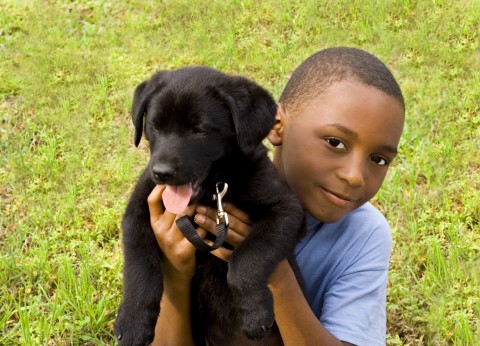
Ag siestog! Is die hondjie nie te oulik nie vir woorde nie?! (“Oh goodness! Isn’t the puppy too cute for words?!”)
I’m sure you’ll find these common Afrikaans filler words very useful. They’ll help you to hold a conversation in Afrikaans and make your speech sound a lot more natural!
3. Learn Afrikaans Filler Words with Ease on AfrikaansPod101.com!
Which of these Afrikaans filler words do you think you’re most likely to use? Are any of them similar to filler words in your own language?
At AfrikaansPod101.com, we can help you understand Afrikaans easily with our fun and practical learning materials, such as recorded videos and free vocabulary lists. With our help, you’ll be able to use the phrases correctly and speak like a native in no time.
Also, decipher Afrikaans phrases yourself with the multiple tools we make available to you upon subscription, such as the Afrikaans Key Phrase List and the Afrikaans Core 100 Word List. And make sure to keep your Afrikaans online dictionary closeby for easy translation!
If Afrikaans vernacular is important to you, then take a look at the following blog posts:
- The Best Afrikaans Internet Slang and How to Use it!
- How to Say “Hello” in Afrikaans Like a Native Speaker!
- How to Say ‘Thank You’ in Afrikaans
Still hesitating? Don’t! Subscribe now. You’ll be very happy you did!
About the author: Christa Davel is a bilingual (Afrikaans and English) freelance writer and journalist, and is currently based in Cape Town, South Africa. She’s been writing for InnovativeLanguage.com since 2017.

The 30 Best Afrikaans Love Phrases for All Occasions!

L’amour, die Liebe, die liefde, любовь (lyubov’)…all of these mean “love.”
Love is a universal language spoken mostly with the heart, but what a wonderful thing to express in any language!
Therefore, it makes sense that when people study to acquire a new language, one of the first things they learn (not long after hello and goodbye) is “I love you.” For some, being able to communicate with someone they love is their reason for learning the language in the first place!
If you’re wondering how to say “I love you,” in Afrikaans, then you’ve come to the right place. I’ve compiled for you a collection of Afrikaans love phrases you can use to express your feelings in no uncertain terms. Better still? It’s all framed in the context of a short, romantic story. Enjoy!
But before we continue—what is “love” in your native language? Tell us in the comments, please!
 Table of Contents
Table of Contents
- Pick-up Lines and the First Flush of Love
- Love Phrases for Long-Term Relationships
- Must-Know Love Quotes and Phrases
- Learn Afrikaans Phrases to Charm the Love of Your Life at AfrikaansPod101!

Liefde verander alles! / “Love changes everything!”
1. Pick-up Lines and the First Flush of Love
The hero of our story is named Jeffrey, and when Jeffrey moved to South Africa he was quite lonely at first. Therefore, he asked his Afrikaans friend Willem to take him to a good social venue where he might meet some nice single ladies.
But…he wondered how he would approach these local Afrikaans ladies to begin with. Online, he’d tried searching for things like ‘Afrikaans love phrases,’ but there were a lot of options and they didn’t really look like good pick-up lines. He was glad that Willem would be coming along to act as his ‘wingman.’
A. Keeping it Simple
The two of them were sitting at the bar when Jeffrey noticed a very attractive Afrikaans woman chatting with her friends. She shyly glanced his way every now and then, and he thought she looked approachable, but he still wondered what he should say to her. What would be a good Afrikaans pick-up line? He knew these could sometimes be cheesy and annoying, no matter which language you speak! Also, he wasn’t sure if there was a specific way to address an Afrikaans woman or not.

Wat sal ‘n goeie “pick-up line” in Afrikaans wees? / “What would be a good Afrikaans pick-up line?”
Eventually, he asked Willem for advice, saying, “I checked online but I didn’t know which line to choose. Can you help?”
Willem explained with a smile that there were many colorful (albeit rather lewd) Afrikaans pick-up lines online, and it was definitely not advisable to use any of those. Most Afrikaans ladies like to be courted in a more romantic, old-school kind of way—they prefer a gentleman’s approach.
“Keep it simple, be polite, and be straightforward,” Willem advised him.
Jeffrey asked for some examples of lines he could use and Willem thought for a bit, searching for the best lines of those he knew. Here are some polite but casual pick-up lines that Willem considered:
| Hello. My naam is Jeffrey. Mag ek vir jou ‘n drankie koop? Hello. My naam is Jeffrey. Gee jy om as ek by jou aansluit vir ‘n drankie? | “Hello. My name is Jeffrey. May I buy you a drink?” “Hello. My name is Jeffrey. Do you mind if I join you for a drink?” |
| One might be tempted to think that the above lines are quite formal, but what makes them casual is the pronoun used. In Afrikaans, if you were going to be formal, you would use the pronoun u instead of jy or jou. Let’s have a look at the same pick-up lines, but using the formal pronoun u.
This is a very formal way of talking and would seem out of place in a bar. For more information about this and other pronouns in Afrikaans, have a look at this article. | |
| Because they are in a bar and the setting is pretty informal, a slightly more flirtatious approach might also be suitable. No person is immune to sincere compliments! However, it would be best to read the situation and say what feels natural, because pick-up lines can be very cheesy, as I mentioned earlier. | |
| Haai daar. Jy’s wraggies baie mooi. | “Hi there. You are really beautiful.” |
| Dame, ek dink jy’s baie mooi en ek wil graag vir jou ‘n drankie koop. | “Lady, I think you’re very attractive and I’d like to buy you a drink.” |
| Gee jy om as ek hier sit? Jy’t my voete onder my uitgeslaan… | “Do you mind if I sit here? You’ve knocked me off my feet…” |
| Jammer as ek pla, maar ek wil net vir jou sê – jy slaan my asem weg! | “Sorry if I’m bothering you, but I just want to tell you—you take my breath away!” |
| Jy maak my knieë lam. Gee jy om as ek hier sit voor ek omval? | Literally: “You make me weak in the knees. Would you mind if I sit here before I fall?” |
| Wraggies, jy lyk bekoorlik. Mag ek vir jou a drankie koop? | “Really, you look enchanting. May I buy you a drink?” |

Jy slaan my asem weg! / “You take my breath away!”
Willem decided to stick to the polite but simple, straightforward approach, and suggested to Jeffrey that he say:
Hello. My naam is Jeffrey. Mag ek vir jou ‘n drankie koop? (“Hello. My name is Jeffrey. May I buy you a drink?”)
After practicing this line a few times, Jeffrey made his approach and delivered it to the beautiful woman at the bar. She did not seem offended, which was a good start, at least.
Jeffrey found out that her name was Charlize. He bought them more drinks and they chatted for almost an hour until she took a break to ‘powder her nose.’ He took the opportunity to hurry back to Willem and told him that it was going really well. He also wanted to know how he could tell Charlize that he really liked her and wanted to get to know her better. In his head, Willem quickly ran through all the Afrikaans love phrases that he could think of:
| Ek weet ons het nou net ontmoet, maar ek is reeds mal / gek oor jou. | “I know we’ve only just met, but I’m already mad about you.” |
| Jy’s regtig cool! Ek hou van jou!1 | “You are really cool! I like you!” |
| Hey, dit was nou lekker om met jou te gesels. Ek wil jou graag weer sien. Kan ek jou selnommer kry, asseblief? | “Hey, it was nice to chat with you. I would really like to see you again. Could I have your cell number, please?” |
| Ek dink jy is great en ek het jou geselskap baie geniet vanaand. Ek wil jou graag weer sien.1 | “I think you are great and I enjoyed our conversation a lot tonight. I’d like to see you again.” |
1) Both Afrikaans and English are spoken by a large portion of the population in South Africa. This means that even older folks mix the languages vernacularly. This “cross-contamination” is considered normal, and it’s usually suitable in casual, informal situations.
They were all good options, but in the end, Willem decided on a different one. He whispered it into Jeffrey’s ear and told him that this line was sure to win Charlize over. Jeffrey practiced it a few times, then went over to her again. When he delivered his line, she burst into laughter and blushed.
“Wait! What does My hart pomp tjoklit vir jou mean?” he asked her nervously. This was, of course, the line he had quoted.
She laughed again and told him that it means: “My heart is pumping chocolate for you.” When she saw how embarrassed he was, she assured him that it was quite a common, cute expression in Afrikaans. She just hadn’t expected it from him. Actually, it was quite sweet, she said, giving him a light kiss on the cheek to make him feel better.
Jeffrey glared at Willem, who grinned from ear to ear and gave him an encouraging thumbs-up.

Ek wil jou graag weer sien. Kan ek jou selnommer kry, asseblief? / “I would really like to see you again. Could I have your cell number, please?”
By the end of the night, Jeffrey and Charlize were quite comfortable with each other and she liked him enough to give him her number. They went on a few dates after that and Jeffrey’s feelings for her deepened. He went to Willem again to ask him for advice on how to tell Charlize that he wanted to take the relationship to the next level…
B. Taking it to the Next Level
Despite the fact that he and Charlize had been together for some months, Jeffrey had not yet learned how to say “I love you,” in Afrikaans. He was a naturally cautious fellow, but now he was ready to commit to a more serious relationship with this pretty, wonderful woman.

My lewe is soveel beter vandat ek jou ontmoet het. / “My life has been so much better since I met you.”
Once again, he turned to the web for insight. This time, he actually found some pretty good answers, but he still decided that he’d best ask Willem for ideas anyway.
When Willem heard that Jeffrey was getting serious about Charlize, he was happy for his friend and searched through his inner library of romantic expressions in Afrikaans to find just the right one for his friend to use. It was not an easy choice, because there are many, as you can see below:
| Sal jy my meisie wees? Note: This “asking out” question most often serves as a formality to seal a relationship. It denotes commitment, exclusivity, and the status of being a couple. Usually, it’s preceded by the Afrikaans love phrases in this column. However, in many modern relationships, especially among the younger generation, this step is skipped. After a few romantic dates and declarations of mutually passionate feelings, it’s assumed that you’re together as a couple. | “Will you be my girlfriend?” |
| Ek het romantiese gevoelens vir jou. | “I’ve got romantic feelings for you.” |
| Ek is verlief op jou. | “I am in love with you.” |
| Jy’t my hart heeltemal verower. (The word jy’t is a contraction of jy [“you”] and het [“have”]). | “You’ve conquered my heart completely.” |
| My lewe is soveel beter vandat ek jou ontmoet het. | “My life has been so much better since I met you.” |
| Jy is die godin van my hart. | “You are the goddess of my heart.” |
| Jy is kosbaar vir my en ek gee om vir jou. | “You are precious to me and I care about you.” |
| Jy is die enigste vis in die see vir my. | “You are the only fish in the sea for me.” |
| But what if the roles were reversed? Are there specific Afrikaans love phrases for her when it comes to asking someone to take it to the next level? The answer is “Yes!” Charlize would be able to say most of the phrases above in the exact same way, except for the gender-specific ones, of course. Let’s have a quick look at a few alternative phrases that Charlize could use. | |
| Sal jy my kêrel wees? | “Will you be my boyfriend?” |
| Jy is die ridder van my hart. | “You are the knight of my heart.” |
| Jy is my held. | “You are my hero.” |
| You’ve probably noticed that we haven’t yet looked at how to say “I love you,” in Afrikaans! It’s simply: Ek het jou lief. / Ek is lief vir jou. | |
The expression that Willem eventually suggested to Jeffrey was a combination of two of the expressions above. He suggested that Jeffrey say: Jy’t my hart heeltemal verower. Sal jy my meisie wees? (“You have conquered my heart completely. Will you be my girlfriend?”)

Ek is lief vir jou. / “I love you.”
Jeffrey took Charlize out on a romantic date and, just after their first glass of wine, he asked her the question. Charlize went quiet and Jeffrey wondered, for a moment, if Willem had tricked him again. But it turned out that Charlize was choking back happy tears. When she felt okay to speak again, she softly told Jeffrey that she felt the same way about him. Below are some Afrikaans love phrases for her that she could choose from as a reply.
| In Afrikaans, like in English, if you want to repeat a sentence or phrase back to someone, all you have to do is add the word ook (“too” / “also”) to what they said. | |
| Ek het gevoelens vir jou. (“I have feelings for you.”) | Ek het ook gevoelens vir jou. (“I also have feelings for you.”) |
| Ek is verlief op jou. (“I am in love with you.”) | Ek is ook verlief op jou. (“I am also in love with you.”) |
| Jy is die enigste vis in die see vir my. (“You are the only fish in the sea for me.”) | Jy is ook die enigste vis in die see vir my. (“You are also the only fish in the sea for me.”) |
Now that you know how to reciprocate what someone has said to you in Afrikaans, can you figure out how Charlize replied to Jeffrey after he said, Jy’t my hart heeltemal verower? It should be quite easy.
If you guessed that Charlize added ook to her sentence, then you were correct: Jy’t ook my hart heeltemal verower. Ek sal jou meisie wees. (“You have also conquered my heart. I will be your girlfriend.”)

Verwerping is soms baie moeilik om te hanteer. / “Rejection is sometimes very difficult to handle.”
C. Rejection
Sadly, things don’t always work out the way we hope they will when we ask someone to take it to the next level. Sometimes we discover that they don’t feel the same way, or that they’re not ready for an exclusive commitment yet. Happily, Jeffrey did not have to experience this, but what if Charlize had said no? How would she have phrased her rejection?
In Afrikaans, we make use of double negatives in order to negate an expression. To learn more about the grammar behind this, have a look at this article. What it means, in short, is that you add two negating words to the sentence, not unlike you would do in some English slang. For example:
| |
| Sal jy my meisie wees? (“Will you be my girlfriend?”) | Jammer, ek wil nie. Ek hou baie van jou maar ek is nie gereed vir ‘n vaste verhouding nie. (“Sorry, I don’t want to. I like you a lot but I am not ready for a steady relationship.”) |
| Ek is verlief op jou. (“I am in love with you.”) | Jammer, ek is nie verlief op jou nie. (“Sorry, I am not in love with you.”) |
| Ek het gevoelens vir jou. (“I have feelings for you.”) | Jammer, ek het nie dieselfde gevoelens vir jou nie. Maar kan ons vriende wees? (“Sorry, I don’t have the same feelings for you. But can we be friends?”) |
| Or, you could give a generic negative reply: Jammer, maar ek voel nie dieselfde oor jou nie. (“Sorry, but I don’t feel the same way about you.”) Tip: If you’re the one doing the let-down, then remember to do so gently and with respect and kindness. Rejection can be very hard to take, especially in matters of the heart. It would be best to stick with the Golden Rule—do to others as you would have them do to you! | |

Jy beteken die wêreld vir my. / “You mean the world to me.”
2. Love Phrases for Long-Term Relationships
If you, like Jeffrey, have experienced luck in love, then it’s time to learn some additional love phrases in Afrikaans you can use to strengthen and progress your relationship.
A. Phrases that help to keep a relationship strong:
Now that Charlize had agreed to be Jeffrey’s girlfriend, they were entering into a phase of the relationship where Jeffrey no longer had to woo her—but there was still work to be done.
I don’t know if you agree with me here, but I think that if we want a relationship to work, we have to put some effort into it. Fortunately, Jeffrey was the kind of person who did like to put effort into his relationship. Part of this included studying Afrikaans in his spare time. Naturally, he spent a lot of his study time researching romantic expressions in Afrikaans!
He found that Charlize was a very kind and considerate girlfriend and often did nice things for him, so one of the first things he learned to say was:
- Baie dankie. Ek waardeer alles wat jy vir my doen. (“Thanks a lot. I appreciate everything you do for me.”)
Sometimes he also wanted to tell her that he appreciated her for who she was, and not just for the things she did. So he learned to say:
- Jy beteken die wêreld vir my. (“You mean the world to me.”)
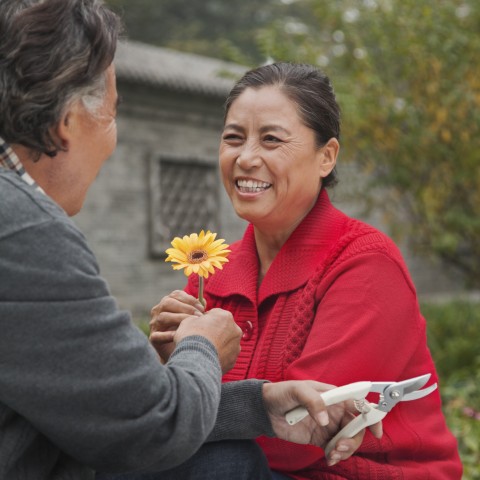
Baie dankie. Ek waardeer alles wat jy vir my doen. / “Thank you. I appreciate everything you do for me.”
And then, of course, there were those occasions when, no matter how considerate he was in general, he did something that required an apology. So he learned to say:
- Ek het ‘n fout gemaak; ek is jammer. (“I made a mistake; I’m sorry.”)
Charlize, it turned out, was also a very wise person, and he began to find that he really valued her input when it came to making decisions. He also cared about what she wanted, and for this reason, he learned how to say:
- Wat dink jy hiervan? (“What do you think about this?”)
- Wat is jou opinie? (“What is your opinion?”)
- Wat verkies jy? (“What do you prefer?”)
And then, of course, Jeffrey often used those two absolutely essential words in Afrikaans culture:
- Asseblief. (“Please.”)
- Dankie. (“Thank you.”)
This article explains exactly how to use these terms correctly in Afrikaans!
Charlize was also very good at using expressions like these and, despite the ups and downs that all relationships go through, they found that their relationship grew from strength to strength.

Sal jy my vrou wees, asseblief? / “Will you be my wife, please?”
B. Popping the Question
Two years after their first meeting, Jeffrey decided he was ready to pop the question! He had been studying Afrikaans almost daily, so he was pretty sure he knew how to ask Charlize to marry him, but he checked his books anyway. This was not the kind of thing you wanted to make a mistake with. He found some great expressions:
| Sal jy my vrou wees, asseblief? | “Will you please be my wife?” |
| Sal jy met my trou, asseblief? | “Will you please marry me?” |
| Ek wil my lewe saam met jou deurbring. | “I want to spend my life with you.” |
| Ek wil saam met jou oud word. | “I want to grow old with you.” |
| The following two expressions are not actually marriage proposals, but they would definitely make any marriage proposal that much more meaningful and beautiful. | |
| Ek het jou lief bo alles en almal. | “I love you above everything and everyone.” |
| ‘n Lewe sonder jou is vir my ondenkbaar. | “A life without you is unimaginable for me.” |
| As uncommon as it is in Afrikaans culture, it’s not unheard of that the woman might pop the question. So, if Charlize had wanted to be the one proposing, are there similar Afrikaans love phrases for her that she could have chosen from? The fact is that all of the above phrases can be used by both men and women, except for the first one. If she had been the one proposing, Charlize would have said: | |
| Sal jy my man wees, asseblief? | “Will you please be my husband?” |
One night, Jeffrey took Charlize out on a romantic adventure that included a day of fun, outdoor activities together, dinner at a fancy restaurant, and eventually a romantic stroll on a beautiful, moonlit beach. While they were walking along quietly on the wet sand, he suddenly stopped in front of her, dropped to one knee, and held up a small box that contained a gorgeous engagement ring. (Afrikaans girls tend to like old-style marriage proposals, remember!)

Ware liefde hou vir ewig. / “True love lasts forever.”
Combining two of the phrases he had learned, he said earnestly: “Charlize, ek wil saam met jou oud word. Sal jy met my trou, asseblief?” (“Charlize, I want to grow old with you. Please, will you marry me?”)
Of course, Charlize said ja (“yes”)!
C. Terms of Endearment
Another way of saying “I love you,” in Afrikaans, without actually using those words, is to use terms of endearment. During their engagement, Charlize and Jeffrey grew even closer and Charlize often used Afrikaans terms of endearment when talking to him. Jeffrey soon found himself beginning to emulate her.
In English, people use terms of endearment like “darling,” “baby,” or “honey.” Afrikaans people use these too, but they are spun in a uniquely Afrikaans way. It’s not easy to find a direct English translation for some of these; hence the literal translations that I have added. You’ll see that they have a very distinct character!
- my liefling (“my darling”) Lit. “my loveling”
- my skattebol (“my darling”) Lit. “my treasure ball”
- my skatlam (“my darling”) Lit. “my treasure lamb”
- my skat (“my treasure”)
- my liefste (“my beloved”)
- my enigste (“my only”)
- my lief (“my love”)
Other expressions Charlize sometimes used were:
- my lam (“my darling”) Lit. “my lamb”
- my ander helfte (“my other half”)
| Charlize and Jeffrey were still young and in a relatively new relationship, so they wouldn’t have used the following terms of endearment (except perhaps in a jocular way). However, for older people who have been in a relationship for a while and who have a strong sense of familiarity with each other, these are very common: | |
| ou ding / my ou ding | Lit. “old thing” / “my old thing” |
| my ou man / my ou vrou | “my old man” (also husband) / “my old woman” (also wife) |
| The use of ou in these phrases denotes both age and a sense of fond familiarity. A similar convention occurs in English when a speaker affectionately refers to their aging pet dog as, “my old doggie,” for instance. In this case, “old” carries connotations similar to those that the word ou does in Afrikaans when used as part of a term of endearment. However, make sure you’re using it in an appropriate context, meaning only with people you know very well. Please note that, in Afrikaans, man can mean “man” or “husband” and vrou can mean “woman” or “wife,” depending on the context. If the speakers are married, then the words connote the latter meaning. | |
Charlize and Jeffrey used these terms of endearment so often that they barely used each other’s names anymore. Everyone who knew them felt it was only right that they get married—they were so perfect for each other. Their wedding was something that everyone looked forward to.

Ek het die skoot hoog deur! / Approximate: “Love hit me hard!”
3. Must-Know Love Quotes and Phrases
Many times, the words of a poet, songwriter, or novelist can perfectly capture how we’re feeling. Below are some Afrikaans love quotes translated in English, each one written from the heart and sure to capture that of your lover…
A. The Power of Beautiful Words
In a relationship, we often share with our partner lyrics from songs we like or lines from our favorite poems. One of Charlize’s favorite poems was called Erens is jy (“Somewhere you are”), from the anthology Eerste Gedigte (“First Poems”), and it was written by her favorite Afrikaans poet Antjie Krog. Charlize’s favorite lines from the poem were:
| … as ek die dag my hand in joune sitsal ek my padkaarte bêre met die wete:my reis op soek na jou is nou verby. | “… the day I put my hand in yoursI will put away my maps with the knowledge:my journey in search of you is now over.” |
On the day of the wedding, Jeffrey stood in front of everyone and delivered his vows in Afrikaans with no mistakes at all. He knew that if he spoke his vows to Charlize in Afrikaans, they would be far more meaningful for her. After delivering his vows, he surprised everyone by clearing his throat nervously and then, in beautiful Afrikaans, recited a rendition of the poem his wife loved so much:
Ek sit, hierdie dag, my hand in joune
en bêre my padkaarte met die wete:
my reis op soek na jou is nou verby.
“I put, this day, my hand in yours
and stash away my roadmaps with the knowledge:
my journey in search of you is now over.”

Sonder jou liefde is die graaf te swaar vir my en val die geil reëns van die berge sonder doel. – D.J. Opperman.
“Without your love, the shovel is too heavy for me, and the abundant rain of the mountains falls without purpose.”
Charlize was deeply moved by his beautiful gesture and Jeffrey had to help her wipe away the tears there at the altar. Once she’d collected herself, the dominee (“pastor” / “minister”) married them and they kissed to raucous applause.
Oh, and—all of this was 25 years ago. They are still happily married.
B. Quotations that Inspire Love
If you wish to impress the Afrikaans person you love in the way that Jeffrey impressed Charlize, perhaps you’ll benefit from looking at these wonderful quotes from famous Afrikaans poets and singers.
| sonder jou liefde is die graaf te swaar vir my en val die geil reëns van die berge sonder doel. ~ D.J. Opperman | “without your love the shovel is too heavy for me and the abundant rain of the mountains fallswithout purpose.” |
| Ek stuur vir jou ʼn berggansveermits dese wil ek vir jou sêhoe diep my liefde vir jou lê ~ Boerneef 2 | “I send to you a wild goose featherwith which I want to tell youhow deep my love lies for you” |
| vye word suur, maar die liefde, die liefde is soeter as vye ~ Breyten Breytenbach | “figs turn sour, but love, love is sweeter than figs” |
| ek wil vir jou ʼn gewelhuisie bouin die boland van my hart……maar ek wil vir jou my lewe geein die wit afdophuisie van my hart… ~ André Letoit aka Koos Kombuis | Approximate: “I want to build for you a gabled housein the pastures of my heart……but I want to give you my lifein the white, dilapidated house of my heart…” |
| Die liefde is ʼn dubbeldoor—iets te wen en iets verloor. ~ Koos Du Plessis | Approximate: “Love is a contradiction—something to win and something to lose.” |
| Die liefde in my Die liefde in my Dis altyd jy, net altyd jy, die een gedagte bly my by soos skadu’s onder bome bly, net altyd jy, net altyd jy. Langs baie weë gaan my smart, blind is my oë en verward is alle dinge in my hart. Maar dit sal een en enkeld bly, en aards en diep sy laafnis kry, al staan dit winter, kaal in my, die liefde in my, die liefde in my. ~ NP van Wyk Louw | “The love in me, It’s always you, always only you, this one thought stays with me as shadows live under trees always only you, always only you. Along many roads my sorrow goes,blind are my eyes and confused are all things in my heart. But this one thing remains, which is nourished from deep within, even when it’s winter, naked in me, the love in me, the love in me.” |

Ek kan my nie ‘n lewe indink sonder jou nie. / “I can’t imagine a life without you.”
Which of these Afrikaans phrases resonates with you the most, and why? Let us know in the comments!
4. Learn Afrikaans Phrases to Charm the Love of Your Life at AfrikaansPod101!
At AfrikaansPod101, we can help you understand Afrikaans easily with our hundreds of recorded videos, themed vocabulary lists, and variety of learning and study tools. With our help, you’ll be able to use the phrases correctly and speak like a native in no time!
Also, you can start deciphering Afrikaans phrases yourself with the multiple tools we make available to you upon subscription, such as the Afrikaans Key Phrase List and the Afrikaans Core 100 Word List. You should also make sure to keep your Afrikaans online dictionary closeby for easy translation!
If Afrikaans vernacular is important to you, then take a look at the following pages on our website:
- The Best Afrikaans Internet Slang and How to Use it!
- How to Say “Hello” in Afrikaans Like a Native Speaker!
- How to Say I Love You in Afrikaans
Still hesitating? Don’t! Subscribe now, and you’ll be very happy you did!
About the author: Kurt Donald is an experienced writer and copy editor, and is currently based in Cape Town, South Africa.

All About How to Form the Negative in Afrikaans

Negation is, very simply put, the so-called “negative form” in a language. We use it when we want to express the opposite of a positive or affirmative statement. What is the negative form in Afrikaans? Let’s dig in!
One of the most fascinating features of the Afrikaans language is its use of the double negative, which means that two negatives resolve into one negative. For instance, in English one would say, “He cannot speak Afrikaans,” and only use the word ‘not’ once. However, to express the negative in Afrikaans, we usually have to use the negating word twice:
Sy kan nie Afrikaans praat nie.
Literally: “She cannot Afrikaans speak not.”

The negating word in the example above is nie and, as you will have gathered, nie means “not.” It sounds like “knee” in English, but a bit shorter and sharper on the ‘ee’ (like the ‘i’ in it). Nie is equivalent to the German nicht and the Dutch niet, but it’s used differently, of course.
No one really knows where this practice of using the double negative originated. Some say it may have its roots in the French language, and others suggest that it may have been borrowed from the San languages of Southern Africa. Negating with a double negative can also be found in Middle English, such as in Chaucer’s work, who sometimes used a triple negative!
Double negation still appears in regional and ethnical dialects such as Southern American English, African American vernacular English, and various British regional dialects, according to Wikipedia. Think: “You don’t know nothing,” or “He didn’t go nowhere today.” Whatever the source may be, the double negative is not extensively employed and, especially in the dialects, its use is frowned upon by the purists.

Double negation also occurs in other Germanic languages, such as can be found in villages in the center of the Netherlands and in Low Franconian dialects in West-Flanders—and even then, it’s used differently. The way the negative form in Afrikaans is expressed remains unique.
While using the Afrikaans double negative may seem strange at first, once you grow accustomed to it, it will start to feel quite natural. Learning how to use it isn’t difficult, either.
However, before we begin with that, let’s start with the exception to the rule of the double negative. This exception uses a form more similar to that of other languages and employs only one negation word.
 Table of Contents
Table of Contents
- The Rule of “One Knee”
- The Rule of “Two Knees”
- Changing Meaning – Placement of the First Nie
- Adding Color with Adverbs and Adjectives that Express Denial
- Converting Instructions and Requests to the Negative
- Formal vs. Informal Imperatives
- Negating Compound Sentences
- Answers to Exercises:
- How Can AfrikaansPod101 Help You Learn the Negative in Afrikaans?
1. The Rule of “One Knee”
It may be a bit convoluted, but the mnemonic “one knee” should serve to remind you of the simplicity of singularity. The one nie is used only in straightforward, relatively simple sentences.
- The single nie is used mostly in simple statement sentences, including those with reflexive or transitive verbs, adverbs, adjectives, and pronouns.
- It’s used mostly in present tense sentences. With other tenses, the single nie works only when certain hulpwerkwoorde van tyd (literally: “auxiliary verbs of time”) occur.
Let’s take a closer look at what this means.
A.1 In Simple Statement Sentences
To state the negative in Afrikaans using simple statement sentences, we put only ONE nie (knee!) after the verb, at the end of the sentence. That’s it! It looks like this:
– Short statement sentences:
- Hulle sien nie. – “They don’t see.”
- Die rekenaar werk nie. – “The computer doesn’t work.”
– Statement sentences with a transitive verb and a pronoun:
Sometimes you need to be more specific and would then use a pronoun. In such a case, the One Knee rule applies mostly to statement sentences with transitive verbs in which the object is indicated with a pronoun. Read here all about Afrikaans pronouns!
- Hulle waardeer haar nie. – “They don’t appreciate her.”
Literally: “They appreciate her not.”
- Sy eet dit nie. – “She doesn’t eat it.”
Literally: “She eats it not.”

– Statement sentences with an adjective and/or adverb:
Sometimes you need to be more descriptive in order to illuminate the subject or the action. Adding adjectives and/or adverbs won’t affect the One Knee rule.
- Die nuwe rekenaar werk ongelukkig nie. – “The new computer, unfortunately, doesn’t work.”
Literally: “The new computer works unfortunately not.”
A.2 Mostly in the Present Tense
As you may have noticed, these sentences are all in the simple present tense. In fact, this practice is not too dissimilar to negating the present tense verb in English by adding not.
- Hy sing. – “He is singing.” OR “He sings.”
- Hy sing nie. – “He is not singing.” OR “He doesn’t sing.”
Literally: “He sings not.”
Note: We don’t have a continuous tense in Afrikaans! Read all about Afrikaans tenses here.
In the Afrikaans past and future tenses, the One Knee rule applies only to very short, simple statement sentences with the following auxiliary verbs that indicate tense in Afrikaans. As mentioned, we call them hulpwerkwoorde van tyd.
Past Tense: Hy was nie. – “He wasn’t.”
Hy wou nie. – “He didn’t want to.”
Hy het nie. – “He didn’t.”
Future Tense: Hy sal nie OR Hy gaan nie. – “He won’t.”

2. The Rule of “Two Knees”
Although things may seem to be getting a bit more complicated, there’s no need to panic about the negative form in Afrikaans! You simply need to remember to find the first part of the verb (whether it’s a base or an auxiliary verb) in the sentence, put a nie after it, and then put another nie at the very end of the sentence.
As we saw in the previous example, to negate very simply, we could say: Hy sing nie. (Lit. “He sings not.”) However, if we need to be more specific and have to introduce a direct or indirect object, the negation always doubles.
- Hy sing (base verb) nie in Afrikaans (direct object) nie.
“He doesn’t sing in Afrikaans.”
- Hy sing (base verb) nie vir haar (indirect object) nie.
“He doesn’t sing for her.”

When we use auxiliary verbs that indicate the past or future tenses, the negation also usually doubles:
- Hy sal (auxiliary verb, future tense) nie sing nie.
“He will not sing.”
- Hy wou (auxiliary verb, past tense) nie sing nie.
“He didn’t want to sing.”
What About the Be-Verbs?
In the present and past tenses, the be-verb is usually the main verb; in the future tense, the be-verb is an auxiliary verb. However, they all take the double negation.
Take a look at these negatives in Afrikaans:
Be-Verb Negation
| PRESENT Tense Affirmative: is (“is,” “to be”) Die kat is oulik. “The cat is cute.” | PRESENT Tense Negation: is nie (“is not”) Die kakkerlak is nie o ulik nie. “The cockroach is not cute.” |
| PAST Tense Affirmative: was (“was”) Die deur was toe. “The door was closed.” | PAST Tense Negation: was nie (“was not”) Die deur was nie toe nie. “The door was not closed.” |
| FUTURE Tense Affirmative: sal wees / gaan wees (“will be,” “shall be”) Die weer sal warm wees. “The weather will be warm.” | FUTURE Tense Negation: sal nie wees nie (“will not be”) Die weer sal nie koud wees nie. “The weather will not be cold.” |

3. Changing Meaning – Placement of the First Nie
While the rule remains true that one should put the first nie after the first verb in the sentence, sentences can sometimes become quite long and complex.
In terms of negation, this means that:
a) the first nie can be placed in various positions after the first werkwoord (“verb”) or hulpwerkwoord van tyd. (Lit. “auxiliary verb of time”); and
b) where one places it can change the meaning of the sentence.
Consider the following sentence in the future tense:
- Sy gaan nie môre met haar nuwe bikini op die strand tan nie.
“She is not going to tan on the beach in her new bikini tomorrow.”
The entire sentence is negated because the nie is placed directly after what is, in Afrikaans, an auxiliary verb that indicates the future tense: gaan.
- Sy gaan môre nie met haar nuwe bikini op die strand tan nie. Sy sal iets anders dra.
“She is not going to tan on the beach in her new bikini tomorrow. She will wear something else.”
In this case, the nie directly precedes “haar nuwe bikini” (her new bikini) and therefore negates only that phrase.

- Sy gaan môre met haar nuwe bikini nie op die strand tan nie. Sy gaan elders tan.
“She is not going to tan on the beach in her new bikini tomorrow. She will tan somewhere else.”
In this case, the nie directly precedes op die strand (on the beach) and therefore negates only that phrase.
- Sy gaan môre met haar nuwe bikini op die strand nie tan nie. Sy gaan iets anders doen as tan.
“She is not going t tan on the beach in her new bikini tomorrow. She will do something other than tanning.”
In this case, the nie directly precedes the second verb “tan” (tan) and therefore negates only that action.
It should be clear from the above explanations that one must be sure to place the first nie after the first verb in the sentence, and directly before the phrase or word one wants to negate.
4. Adding Color with Adverbs and Adjectives that Express Denial
That said, negative sentences in Afrikaans do not always require for the word nie to be the first word of negation. Sometimes, to add a bit of color to your speech, you can use additional negation vocabulary in lieu of the first nie. This strengthens the tone of what you’re saying and makes it more specific and descriptive, like this:
| Sy praat nooit Afrikaans nie. “She never speaks Afrikaans. “Lit. “She never speaks Afrikaans not.” | Die lesse is gladnie lank nie. “The lessons are not long at all. “Lit. “The lessons are not at all long not.” |
These additional negation words are adverbs (bywoorde), adjectives (byvoeglike naamwoorde), and auxiliary verbs that express denial and, as you can see, they make the sentence a little more specific and descriptive. Just remember that you still need to add the nie at the end of the sentence!
Here are some examples of auxiliary verbs, adverbs, and adjectives that can be used for denial.
D.1 Woorde wat vir Ontkenning Gebruik Word / “Words that are Used for Denial”
| Affirmative | Negative |
| enige (“any”) / een (“one”) Daar is een oefening. “There is one exercise.” | geen (“no,” “none,” “not”) Daar is geen oefeninge nie. “There are no exercises.” |
| enigsins (“at all”) Is dit enigsins moeite vir jou? “Is it trouble for you at all?” | geensins (“by no means,” “in no way”) Dit is geensins moeite nie. “It is no trouble at all.” |
| êrens (“somewhere”) Dit is êrens. “It is somewhere.” | nêrens (“nowhere”) Ek kan dit nêrens vind nie. “I can’t find it anywhere.” |
| iemand (“someone”) Daar was iemand. “There was someone.” | niemand (“nobody,” “no one”) Daar was niemand nie. “There was no one.” |
| iets (“something”) Die bobbejaan het iets oorgekom. “Something happened to the baboon.” | niks (“nothing”) Die bobbejaan het niks oorgekom nie. “Nothing happened to the baboon.” |
| ooit (“ever”) Sal jy my ooit verraai? “Will you ever betray me?” | nooit (“never”) Ek sal jou nooit verraai nie! “I will never betray you!” |
| nog (“still”) Ek kan nog die geraas verdra. “I can still tolerate the noise.” | nie meer (“no longer”) Ek kan die geraas nie meer verdra nie! “I can’t stand that noise anymore!” |
| beslis (“indeed,” “definitely”) Dit is beslis ‘n probleem. “That is definitely a problem.” | gladnie (“not at all”) Dit is gladnie ‘n probleem nie. “That is not a problem at all.” |
| al (“yet”) Het hy al sy werk gedoen? “Has he done his work yet?” | nog nie (“not yet”) Hy het nog nie sy werk gedoen nie. “He has not yet done his work.” |
| tog (“and yet”) Daar was amper g’n reën nie; tog is die dam vol. “There’s been almost no rain, and yet the dam is full.” | tog nie (“and yet not”) Daar was baie reën; tog is the dam nie vol nie. “There was a lot of rain, and yet the dam is not full.” |
| heeltemal (“completely”) Ek is heeltemal verward. “I am utterly confused.” | nie heeltemal (“not completely”) Ek is nie heeltemal verward nie. “I am not completely confused.” |
| iets (“something”) Kan ek iets vir jou doen? “Can I do something for you?” | niks (“nothing”) Ek kan niks vir jou doen nie. “I can’t do anything/can do nothing for you.” |
| moet (“must,” “should”) Jy moet my later bel. “You must call me later.” | moenie (“don’t”) Jy moenie my later bel nie. “You mustn’t call me later.” Note: Similar to the English “don’t,” this is the contracted form of moet nie (“do not”). |
| sal (“will,” “shall”) Ek sal die boek later lees. “I will read the book later.” | sal nie (“will not”) Ek sal die boek nie later lees nie. “I will not read the book later.” |
| gaan (“will”) Ek gaan more studeer. “I will study tomorrow.” | gaan nie (“will not”) Ek gaan nie more studeer nie. “I will not study tomorrow.” |

5. Converting Instructions and Requests to the Negative
Giving instructions/commands and making requests are things that we often do, so it’s important to be able to convert these to their negative form.
E.1 Giving Instructions and Commands
Converting instructions to their negative form is not that difficult. Have a look at this instruction and its negative form:
Instruction: Sit daar! / “Sit there!”
Instruction – Negative Form: Moenie daar sit nie! / “Don’t sit there!” (Literally. “Don’t sit there not.”)
As you can see, we added the word moenie to the instruction and then added nie at the end of the sentence in order to convert it to the negative form. The word moenie (“don’t”) is a contraction of the words moet (do) and nie (not).
In Afrikaans, when you add moenie to the sentence, you must then move the verb (sit, in this case) to the end and follow that with the ubiquitous nie.
A few more examples:
| Instruction – Positive Form | Instruction – Negative Form |
| Staan op! “Stand up!” | Moenie opstaan nie! “Don’t stand up!” Lit. “Don’t up-stand not!” |
| Kom later terug! “Come back later!” Lit. Come later back! | Moenie later terugkom nie! “Don’t come back later!” Lit. “Don’t later back come not.” |
| Gaan weg! “Go away!” | Moenie weggaan nie! “Don’t go away!” Lit. “Don’t away-go not!” |
| Kyk daar! “Look there!” | Moenie daar kyk nie! “Don’t look there!” Lit. “Don’t there look not!” |

Did you notice that the verbs and adverbs got switched around in the negative? For example:
“Kyk daar“ became “Moenie daar kyk nie.”
Where the adverb usually follows the verb in Afrikaans affirmative expressions, the opposite is true of the negative. This is a rule you should take note of. This switching sometimes results in the formation of a compound verb. Consider this:
“Gaan weg!” becomes “Moenie weggaan nie!” and “Staan op!” becomes “Moenie opstaan nie!“
EXERCISE I
| Why not try to negate in Afrikaans yourself? Read the affirmative expressions, write your negative answers (using moenie) down somewhere, and check them against the list of answers at the end of this article. Don’t worry, you won’t have to combine any verbs and adverbs! Eet die kos! – “Eat the food!” Drink jou medisyne! – “Drink your medicine!” Sing hard! – “Sing loudly!” Praat vinnig! – “Speak quickly!” |
6. Formal vs. Informal Imperatives
While the rule is that you should add moenie to an instruction (also called an imperative) in order to make it negative, a formal, more polite imperative will get an asseblief (“please”). As soon as you do this, there is another set of rules that apply. Have a look at the following:
Informal imperative: Moenie opstaan nie! / “Don’t stand up!”
Formal imperative: Moet asseblief nie opstaan nie. / “Please don’t stand up.”
As you can see, when you add asseblief to the negative sentence, you need to:
- break the compound moenie into its component words moet and nie;
- put the asseblief (“please”) between the moet and the nie; and
- remember to add the final nie at the end!
Here are some more examples using the same informal instructions as in exercise E.1, but now converted to formal imperatives.
| Informal Imperative | Formal Imperative |
| Moenie later terug kom nie! “Don’t come back later!” | Moet asseblief nie later terugkom nie. “Please don’t come back later.” |
| Moenie daar kyk nie! “Don’t look there!” | Moet asseblief nie daar kyk nie. “Please don’t look there.” |
| Moenie weggaan nie! “Don’t go away!” | Moet asseblief nie weggaan nie! “Please don’t go away!” |
EXERCISE II
| Your turn again, if you’d like. Just as before, read the formal affirmative expressions and write the negative down somewhere. Then check them against the list of answers at the end of this article. Ry vinnig, asseblief. – “Drive fast, please.” Loop vinniger, asseblief. – “Walk faster, please.” Gooi die bal, asseblief. – “Throw the ball, please.” Tel die vuilgoed op, asseblief. – “Pick the rubbish up, please.” |
7. Negating Compound Sentences

Quick grammar note: A simple sentence is one in which there is only a subject and a predicate, as illustrated by this sentence:
Ek (subject) sien hom (predicate).
“I see him.”
Obviously, a compound sentence then contains more than one subject and more than one predicate. It consists of multiple clauses. Consider this compound sentence:
Ek (subject) sien hom (predicate), maar hy (subject) sien my nie (predicate)
“I see him, but he doesn’t see me.”
Lit. “I see him, but he sees me not.”
When looking at compound sentences, an important point to remember is that if you’re negating the main clause, you should negate it as you would a standalone, simple sentence. Consider the following examples:
Hy ry nie, want die verkeerslig is nie groen nie
“He’s not driving because the traffic light is not green.”
Lit. “He drives not, because the traffic light is not green not.”
Ek is nie fiks genoeg nie; dus sal ek nie aan the marathon deelneem nie.
“I am not fit enough; therefore I won’t be participating in the marathon.”
Lit. “I am not fit enough not; therefore will I not in the marathon participate not.”
As discussed earlier, in compound sentences, we also only use negating words in the part of the sentence that we are negating.
Have a look:
Ek sal gaan stap as dit nie reën nie.
“I will go for a walk if it doesn’t rain.”
Lit. “I will go walking if it not rains not.”
If only the main clause is negated, then we must put the first nie in the main clause and the second nie at the end of the sentence. Here’s an example:
Ek het nie gedink dat jy my sal onthou nie.
“I did not think that you would remember me.”
Lit. “I did not think that you me would remember not.”
8. Answers to Exercises:
Converting instructions to the negative – Exercise I
| Eet die kos! – “Eat the food!” | Moenie die kos eet nie! – “Don’t eat the food!” |
| Drink die medisyne! – “Drink the medicine!” | Moenie die medisyne drink nie! – “Don’t drink the medicine!” |
| Sing hard! – “Sing loudly!” | Moenie hard sing nie! – “Don’t sing loudly!” |
| Praat vinnig! – “Speak quickly!” | Moenie vinnig praat nie! – “Don’t speak quickly!” |
Converting the polite affirmative to the polite negative – Exercise II
| Ry vinnig, asseblief. – “Please drive fast.” | Moet asseblief nie vinnig ry nie. – “Please don’t drive fast.” |
| Loop vinniger, asseblief. – “Walk faster, please.” | Moet asseblief nie vinniger loop nie. – “Please don’t walk faster.” |
| Gooi die bal, asseblief. – “Throw the ball, please.” | Moet asseblief nie die bal gooi nie. – “Please don’t throw the ball.” |
| Tel die vuilgoed op, asseblief. – “Pick the rubbish up, please.” | Moet asseblief nie die vuilgoed optel nie. – “Please don’t pick up the rubbish.” |
9. How Can AfrikaansPod101 Help You Learn the Negative in Afrikaans?
We can assist you in learning Afrikaans negations in many ways! After all, that’s what we’re here for. Do you have any questions about the negative form in Afrikaans, or about these exercises? Please let us have them in the comments!
At AfrikaansPod101, we can help you understand Afrikaans easily with our hundreds of recorded video lessons, grammar and pronunciation guides, and these vocabulary lists.
Also, be sure to arm yourself with some words and phrases from our Afrikaans Key Phrase List and the Afrikaans Core 100 Word List. Remember to keep your Afrikaans online dictionary closeby for easy translation!
Also supplement your learning with these blog posts:
- Your Definitive Guide to Proper Afrikaans Sentence Structure
- The Best Afrikaans Verbs List at Your Fingertips!
- Your Ultimate Afrikaans Pronunciation Guide
Enroll now for a free lifetime membership with AfrikaansPod101 to easily learn the Afrikaans negative form and so much more!
About the author: Christa Davel is a bilingual (Afrikaans and English) freelance writer and journalist, and is currently based in Cape Town, South Africa.

Tenses in Afrikaans – Your Easy Guide

Tenses in Afrikaans are not as hard to master as those of many older languages. In fact, there’s no need to feel tense about tenses!

Dis nie nodig om gespanne te voel oor Afrikaanse tye nie! / “There’s no need to feel tense about Afrikaans tenses!”
How Do We Indicate Afrikaans Tenses?
In Afrikaans, the verbs usually inflect for time, just as in English. This is called “conjugation” (werkwoord verbuiging) and it’s characterized by a change to the form of the verb—in this case, to indicate the tense. (Think “walk” vs. “walked.” Here, the verb has a suffix [-ed] to indicate that the action took place in the past.)
- → Sound complex? It isn’t, really, once you get the hang of it. Read more about Afrikaans conjugations in our blogpost All About Verb Conjugation in Afrikaans – Your Best Guide!
Some more good news: There are very few complex conjugations and rules for indicating the continuous, perfect, and perfect continuous tenses in Afrikaans! Of course, we have methods of expressing these concepts, but they’re very simple compared to those used in most older languages. In this article, we’re going to cover the basics of the simple past, present, and future tenses in Afrikaans.
Afrikaans Conjugations for Time
Conjugations for the simple past, present, and future tenses in Afrikaans tend to be less complex than those in English. Take the verb “to be,” for instance. It can be conjugated for time, but it doesn’t change for person or number as it does in English, Spanish, or French.
Look at the following examples. Can you see how the irregular English verbs change only for time in Afrikaans?
| Past | Present | Future |
| was … gewees (“was” / “were”) | is (“am” / “is” / “are”) | sal … wees (“will be”) |
| Example 1: Ons was by die see gewees. (“We were at the seaside.”) | Example 1: Ons is by die see. (“We are at the seaside.”) | Example 1: Ons sal by die see wees. (“We will be at the seaside.”) |
| Example 2: Die Afrikaanse les was baie interessant gewees. (“The Afrikaans lesson was very interesting.”) | Example 2: Die Afrikaanse les is baie interessant. (“The Afrikaans lesson is very interesting.”) | Example 2: Die Afrikaanse les sal baie interessant wees. (“The Afrikaans lesson will be very interesting.”) |

Ons was by die see gewees. / “We were at the seaside.”
 Table of Contents
Table of Contents
- What Does the Present Tense in Afrikaans Look Like?
- What Does the Past Tense in Afrikaans Look Like?
- What Does the Future Tense in Afrikaans Look Like?
- Compound Verbs (Partikelwerkwoorde) & Tenses in Afrikaans
- Can AfrikaansPod101 Help You Master Tenses in Afrikaans?
1. What Does the Present Tense in Afrikaans Look Like?
The simple present tense (eenvoudige teenwoordige tyd) in Afrikaans is used to express something happening right now. Its characteristics include…
- …the presence of selfstandige werkwoorde (“simple verbs”), such as werk (“work”), speel (“play”), and maak (“make”);
- …sometimes, a present tense koppelwerkwoord (“linking verb”), such as is (“is”) and a byvoeglike naamwoord (“adjective”);
- …appropriate adverbs and adverbial phrases of time.
The following adverbs of time (bywoorde van tyd) and adverbial phrases of time (bywoordelike bepalings van tyd) indicate the present tense in Afrikaans.
- → nou (“now”)
→ vandag (“today”)
→ op die oomblik (“at the moment”)
→ nou dadelik / onmiddelik (“right now”)
→ deesdae (“these days” / “nowadays”)
→ tans (“currently”)
Take a look at these syntactic analyses to see where the conjugations fit in.
Ek is tevrede. / “I am pleased.”
| Subject Pronoun | Linking Verb | Adjective |
| Ek | is | tevrede. |
| I | am | pleased. |
Die bloggers is gewild. / “The bloggers are popular.”
| Subject Phrase | Linking Verb | Adjective |
| Die bloggers | is | gewild. |
| The bloggers | are | popular. |
My selfoon lui nou. / Lit. “My cell phone rings now.”
| Subject Phrase | Simple Verb | Adverb of Time |
| My selfoon | lui | nou. |
| My cell phone | “(is) ring(ing)”a | now. |
Baie toeriste geniet op die oomblik die Suid Afrikaanse somerweer. / Lit. “Many tourists enjoy the South African summer weather at the moment.”
| Subject Phrase | Verb | Adv. Phrase of Time | Object Phrase |
| Baie toeriste | geniet | op die oomblik | die Suid Afrikaanse somerweer. |
| Many tourists | “(are) enjoy(ing)”a | at the moment | the South African summer weather. |
- aNote: Afrikaans doesn’t have continuous tenses!
| REVIEW: So, to recap quickly—how do we identify which tense is used in these sentences? That’s right! We know these are in the simple present tense because: |

Baie toeriste geniet op die oomblik die Suid Afrikaanse somerweer. / “Many tourists are enjoying the South African summer weather at the moment.”
Hopefully, that was easy enough. Now, onto the past tense in Afrikaans!
2. What Does the Past Tense in Afrikaans Look Like?
The simple past tense in Afrikaans (eenvoudige verlede tyd) is the most complex of the three tenses. It’s typically characterized by one or more of the following:
- Past Tense Verb Conjugation A) where a past tense koppelwerkwoord / linking verb (was) is used in tandem with the hoofwerkwoord / main verb (wees), but the latter gets the ge- prefix (gewees). These terms don’t correlate exactly, but the nearest English conjugation would be: “I was tired.” / Ek was moeg gewees. It’s also acceptable to simply say: Ek was moeg.
- Past Tense Verb Conjugation B) where a hulpwerkwoord van tyd / Lit. auxiliary verb of time (het) is paired with a hoofwerkwoord / main verb that also gets the ge- prefix. An English approximate would be the simple past tense conjugation, e.g. “The water boiled.” / Die water het gekook.
- The use of appropriate adverbs and adverbial phrases of time.

Ek was tevrede gewees. / “I was pleased.”
The following adverbs and adverbial phrases of time usually indicate the past tense.
- → toe (“then”)
→ gister (“yesterday”)
→ voorheen (“previously”)
→ die vorige (“the previous”)
→ laasjaar / laasweek / laas Kersfees (“last year” / “last week” / “last Christmas”)
→ verlede jaar / verlede week / verlede Kersfees (Also “last year” / “last week” / “last Christmas”)
→ in die verlede (“in the past”)
Let’s see where the Afrikaans past tense conjugations fit into these sentences:
Ek was tevrede gewees. / “I was pleased.”
| Subject Pronoun | Linking Verb | Adjective | Prefix ge- + Main Verb |
| Ek | was | tevrede | gewees. |
| I | was | pleased. | – |
Note: This can be translated as “was” OR “have been.”
Die bloggers was gewild. / “The bloggers were popular.”
| Subject Phrase | Linking Verb | Adjective |
| Die bloggers | was | gewild. |
| The bloggers | were | popular. |
Note: Vernacularly, gewees is often omitted from the was … gewees conjugation, as shown in this sentence. The omission won’t change the tense or the meaning of the sentence.
My selfoon het toe gelui. / “My cell phone then rang.”
| Subject Phrase | Auxiliary Verb | Adverb of Time | Prefix ge- + Main Verb |
| My selfoon | het | toe | gelui. |
| My cell phone | – | then | rang. |
Baie toeriste het laasjaar die Suid Afrikaanse somerweer geniet. / Lit. “Many tourists enjoyed the South African summer weather last year.”
| Subject Phrase | Auxiliary Verb | Adverb of Time | Object Phrase | Irregular Past Tense Verb |
| Baie toeriste | het | laasjaar | die Suid Afrikaanse somerweer | geniet. |
| Many tourists | have | last year | the South African summer weather | enjoyed. |
Note: Keep in mind that geniet is an irregular past tense verb, meaning that there is no ge-morpheme conjugation. Read on for more about these irregular verbs and their conjugations for the past tense.
| REVIEW: So, to recap quickly—how do we identify the tense in these sentences? That’s right! We know these are written in the simple past tense because:
|
2So, what is the exception? The exception is irregular main verbs.

My selfoon het gelui. / “My cell phone rang.”
B.1 Irregular Main Verbs (onreëlmatige hoofwerkwoorde)
Many (if not most) simple past tense sentences are conjugated with the Past Tense Verb Conjugation B (auxiliary verb het + ge–main verb) mentioned under the previous heading. But of course, grammar being grammar, there are several exceptions to this rule. Very simply put—some verbs do not get conjugated with het + ge-main verb, ergo the term “irregular main verbs”. Only the auxiliary verb het appears in the sentence.
While it’s not difficult to spot these irregular verbs in a sentence (just look out for het plus a main verb), it’s challenging to list them based on similar morphological characteristics. So, for the purposes of the article, I’ve listed these irregular verbs according to the cluster of letters they start with. Some of these clusters are morphemes or prefixes (a morphological unit with meaning, such as “re-” in English), and others are just clusters of letters without classification.
If this is all too complex—just memorize these irregular verbs, and remember the past tense conjugation! The asterisk * indicates transitive irregular verbs, meaning that when they appear in a sentence, you will always find a subject too. (Or, in other words—a subject is necessary in the sentence in order for it to make sense!)
| Starting with: | Irregular Main Verbs: |
| Ge- |
Ons het gesels. (“We chatted.”)
*Die kinders het eerste die leeu gewaar. (“The children were the first to notice the lion.”) |
| Be- |
Sy het betaal. (“She paid.”) |
| Ver- |
Hy het vergeet. (“He forgot.”) |
| Her-* |
Billie Eilish het sommige liedjies herhaal tydens haar konsert. (“Billie Eilish repeated some songs during her concert.”) |
| Ont-* |
Hy het skuld ontken. (“He denied his guilt.”) |
| Er-* |
Hy het skuld erken. (“He admitted his guilt.”) |
| Irregular Compound Verbs (Read on for more about regular compound or particle verbs and how they conjugate for the past tense.) | afbetaal (“paid off”) opbetaal (“paid-up”) oorbetaal (“paid over”) inbetaal (“paid in”) weergee (“relay”) Hy het die volle bedrag inbetaal. (“He has paid in the full amount.”) |
| Weer-* |
Die politikus het haarself weerspreek. (“The politician contradicted herself.”) Note: These look like particle or compound verbs, don’t they? They’re not, though, because the meaning of weer changes to “again” when it stands alone. In these irregular verbs, the prefix weer confers almost the same meaning as “against” or “contra-“. |

Hy het die volle bedrag inbetaal. / “He has paid in the full amount.”)
Wait! These are not the only exceptions, unfortunately.
B.2 Irregular Linking Verbs (onreëlmatige skakelwerkwoorde)
If you spot one of the following linking verbs (skakelwerkwoorde) in a sentence, then they conjugate the same way as the irregular main verbs under the B.1 heading (auxiliary verb het plus the linking verb without a ge- prefix). The main verb retains its base form.
Look at these examples:
bly
- Dit het bly reën. / “It kept raining.”
gaan
- Ons het gaan eet. / “We went eating.”
kom
- Die dokter het kom help. / “The doctor came to help.”
probeer
- Ek het Fortnite probeer speel. / “I tried to play Fortnite.”
Vernacularly, it’s acceptable to conjugate the following with or without the prefix ge- when they serve as linking verbs:
- → leer (“learn”)
→ aanhou (“keep on”)
→ ophou (“stop”)
→ help (“help”)
→ sien (“see”)
Some sources say this is a dialectical preference specific to certain parts of the South African Western and Northern Cape provinces, but I have encountered it across the whole country. It doesn’t matter, really, because the meaning remains unchanged.
Here’s what these linking verbs look like in sentences:
leer
Tydens die pandemie het ek (ge)leer programmeer. / “During the pandemic, I learned to program.”
aanhou
Dit het aan(ge)hou reën. / “It kept raining.”
ophou
Almal het op(ge)hou alkohol drink. / “Everyone stopped drinking alcohol.”
help
Die laaste ent van die pad het hy (ge)help dra aan die baggasie. / “(For) the last bit of the road, he helped carry the luggage.”
sien
Ons het die uil (ge)sien wegvlieg. / “We watched the owl fly away.”

Ons het die uil gesien wegvlieg. / “We watched the owl fly away.”
You probably noticed the compound verbs (deeltjiewerkwoorde)—aanhou and ophou—and the special treatment they got. More about that later.
Now buckle up for the future!
3. What Does the Future Tense in Afrikaans Look Like?
The simple Afrikaans future tense (eenvoudige toekomende tyd) can be recognized by one or more of the following:
- Future Tense Verb Conjugation A) which comprises an auxiliary or modal verb (hulpwerkwoord van modaliteit) sal / gaan, plus an unchanged main verb, similar to the English simple future: “We will walk.” / Ons sal loop.
- Future Tense Verb Conjugation B) which comprises an auxiliary or modal verb (sal / wil / kan), plus the auxiliary verb wees for the active voice and word for the passive voice. An approximate conjugation in English could be: “I will be satisfied.” / Ek sal tevrede wees. This is the active voice. To illustrate the passive voice: “That will be done.” / Dit sal gedoen word.
- Appropriate adverbs and adverbial phrases of time.
The following adverbs of time and adverbial phrases of time usually indicate the future tense.
- → dan (“then”)
→ nou / binnekort (“soon”)
→ nou-nou (Lit. “now-now,” which means almost the same as “soon-ish”)
→ more (“tomorrow”)
→ volgende week / maand / jaar (“next week / month / year”)
→ voortaans (“henceforth”)
→ van nou af (“from now on”)
→ in die toekoms (“in the future”)
→ oor ‘n uur / dag (“in an hour / day”)
Now let’s look at how this works in a few sample sentences.
Ek sal tevrede wees. / “I will be contented.”
| Subject Pronoun | Aux. / Modal Verb | Adjective | Be-Verb |
| Ek | sal | tevrede | wees. |
| I | will | contented | be. |
Die bloggers gaan gewild wees. / “The bloggers will be popular.”
| Subject Phrase | Aux. / Modal Verb | Adjective | Aux. / Be-Verb |
| Die bloggers | gaan | gewild | wees. |
| The bloggers | will | popular | be. |
My selfoon sal dan lui. / Lit. “My cell phone will then ring.”
| Subject Phrase | Aux. / Modal Verb | Adverb of Time | Base Verb |
| My selfoon | sal | dan | lui. |
| My cell phone | will | then | ring. |
Baie toeriste sal volgende jaar die Suid Afrikaanse somerweer geniet. / Lit. “Many tourists will next year enjoy the South African summer weather.”
| Subject Phrase | Aux. / Modal Verb | Adv. Phrase of Time | Object Phrase | Base Verb |
| Baie toeriste | sal | volgende jaar | die Suid Afrikaanse somerweer | geniet. |
| Many tourists | will | next year | the South African summer weather | enjoy. |
| REVIEW: So, to quickly recap—how do we identify which tense is used in these sentences? That’s right! We know they are in the simple future tense because:
|
If you’ve found our article on Afrikaans verb tenses helpful so far, also look at Your Definitive Guide to Proper Afrikaans Sentence Structure. Learning to form sentences is a great way to practice your use of tenses.
But before we wrap it up—what happens to compound verbs (samekoppelings, deeltjiewerkwoorde, or partiekelwerkwoorde) in the past, present, and future tenses in Afrikaans…?
4. Compound Verbs (Partikelwerkwoorde) & Tenses in Afrikaans
This type of verb, also called samekoppelings, partiekelwerkwoorde, or deeltjiewerkwoorde, is a combination of what we call in Afrikaans a partiekel and a main verb, and they go together like a motorcycle with its sidecar. Well, not entirely, because the first part of the compound verb (particle) usually retains meaning when used separately from the main verb. So, unlike a sidecar, the particle can stand independently. Yet, the main verb’s meaning is modified by the partiekel—just as a motorcycle’s function and character are redefined by a sidecar!
Below is a list of the most common compound verbs. In Afrikaans, the rule is that the particle and the main verb go together, even when they’re not written as one word.
D.1 Common Compound Verbs + Conjugations
| Particle Verb | Main Verb | Present Tense Conjugation | Past Tense Conjugation het + particle + -ge- verb Where the ge- appears in brackets, it means that it is sometimes omitted in the vernacular. | Future TenseConjugation sal / gaan |
| in | gee | ingee / “give in” | het ingegee / “gave in” | sal ingee / “will give in” |
| toe | gee | toegee / “concede” | het toegegee / “conceded” | gaan toegee / “will concede” |
| aan | gee | aangee / “pass on” | het aangegee / “passed on” | sal aangee / “will pass on” |
| op | gee | opgee / “give up” | het opgegee / “gave up” | gaan opgee / “will give up” |
| oor | gee | oorgee / “hand over” | het oorgegee / “handed over” | gaan oorgee / “will hand over” |
| op | hou | ophou / “cease” | het op(ge)hou / “ceased” | sal ophou / “will cease” |
| aan | hou | aanhou / “keep on” OR “persist” OR “keep” | het aan(ge)hou / “kept on” OR “persisted” OR “kept” | sal aanhou / “will persist” |
| in | hou | inhou / “keep in” | het ingehou / “kept in” | gaan inhou / “will keep in” |
| voor | hou | voorhou / “pretend” | het voorgehou / “pretended” | gaan voorhou / “will pretend” |
| in | gaan | ingaan / “go into” | het ingegaan / “went into” | sal ingaan / “will go into” |
| oor | gaan | oorgaan / “go over” OR “cross” | het oorgegaan / “went over” OR “crossed” | sal oorgaan / “will cross” |
| toe | gaan | toegaan / “close” (by itself) | het toegegaan / “closed” | sal toegaan / “will close” |
| aan | gaan | Aangaan / “persist” OR “go on” | het aangegaan / “persisted” OR “went on” | sal aangaan / “will persist” OR “will go on” |
| af | loop | afloop / “walk or run down” | het afgeloop / “walked or ran down” | sal afloop / “will walk or run down” |
| op | loop | oploop / “walk up” | het opgeloop / “walked up” | gaan oploop / “will walk up” |
| in | loop | inloop / “walk in” | het ingeloop / “walked in” | gaan inloop / “will walk in” |
| aan | keer | aankeer / “arrest” OR “round up” | het aangekeer / “arrested” OR “rounded up” | sal aankeer / “will arrest” OR “will round up” |
| af | keur | afkeur / “disapprove” | het afgekeur / “disapproved” | sal afkeur / “will disapprove” |
| af | breek | afbreek / “break down” | het afgebreek / “broke down” | gaan afbreek / “will break down” |
Did you like learning from this article? Then also look at The Best Afrikaans Verbs List at Your Fingertips and Your Easy Guide to Understanding Afrikaans Grammar.
5. Can AfrikaansPod101 Help You Master Tenses in Afrikaans?
I’d say yes! There are plenty of reasons why enrolling immediately is a good idea. For example, read about the benefits of a Premium PLUS membership, which is very reasonably priced and can fasttrack your learning considerably.
Skint month? No problem. Start with the lower-priced Basic option. You can always upgrade later.
You’ll also gain access to the following:
- Free lessons on iTunes
- Free audiobooks
- Excellent free apps
- A free Word of the Day
- A free Online Afrikaans Dictionary
Great value! Sign up today.
About the author: Christa Davel is an experienced bilingual (Afrikaans and English) freelance writer and journalist, and is currently based in Cape Town, South Africa.

How Long Will it Take to Learn Afrikaans? A Practical Guide!

Hoe lank neem dit om Afrikaans te leer? (How long does it take to learn Afrikaans?)
Well, it’s not possible to tell this with 100% accuracy, because the speed of one’s learning progress depends on a few variables.
Any answer to this question should probably start with the sober truth, though, which is that learning any new language (at least to a level of reasonable proficiency) normally takes many hours of study and practice. That’s simply the nature of language studies.
Of course, one can speed up the process with good learning tools and study habits. But mastering it overnight or in only a couple of weeks from scratch? That only happens in the movies.

But don’t be discouraged! It is possible to be a winner at learning Afrikaans—in less time than you probably think, and also with a lot of enjoyment along the way. The secrets to learning while having fun include…well, you’ll have to read on for those.
You should also keep reading to find an approximate answer to our earlier question. Maybe you need an indication of how long it would take to learn Afrikaans for personal reasons. Or perhaps your employer, an employment agency, or a learning or government institution needs to know. No problem! This post is definitely for you, too.
I’ll start with pointers regarding Afrikaans proficiency level tests, as your existing Afrikaans skills will determine how long you’ll need to keep learning to reach your goal. If you don’t know any Afrikaans, you can probably skip to the next part, where I will share other important influencing factors worth noting.
To conclude, I’ll briefly discuss a number of skill-level descriptors for the three basic proficiency levels, as well as appropriate learning tips for each level.
 Table of Contents
Table of Contents
- Proficiency Exams and Tests
- Which Factors Will Influence Your Afrikaans Learning?
- Beginner, Intermediate, and Advanced & How to Learn Afrikaans Fast!
- Conclusion
1. Proficiency Exams and Tests
If you’re in the dark regarding your current Afrikaans skill level, no problem! You can easily enlighten yourself by taking an Afrikaans proficiency-benchmark test. Some of these are pricey, but they tend to be comprehensive and give detailed reports. Others are free self-assessments that should give you a basic indication of your ability.
- The University of Central California offers a written exam through their Foreign Language Achievement Testing Service (FLATS). It is worth noting that this costs money, though it is less expensive than some other options.
- Or, consider doing an Oral Proficiency Interview, which is conducted over the telephone. It’s offered by the American Council on the Teaching of Foreign Languages (ACTFL), and it’s one of the oldest international proficiency tests on offer. Also be sure to read Your Best Guide for Easily Passing the OPI Afrikaans Exam on AfrikaansPod101.com for additional information on this test.
- If you don’t want to spend money, you could always assess your skills yourself, using the guidelines from either the Interagency Language Roundtable (ILR)‘s or the ACTFL‘s skill-level descriptors.
Alternatively, you can complete the ILR’s downloadable and easy self-assessments for speaking, reading, and listening. This option is also free of charge.

Or, you might want to consider enrolling in the Premium PLUS program from AfrikaansPod101, which starts with an online Level Assessment Test. The test results not only indicate your level of Afrikaans-language abilities—they’re also used to personalize your training. You’ll furthermore be assessed continuously along the way!
Good, now that you’ve determined your Afrikaans proficiency level, let’s discuss other factors likely to determine how long it will take to learn Afrikaans.
2. Which Factors Will Influence Your Afrikaans Learning?
So, how long will it take to learn Afrikaans? As said, this is really difficult to qualify, simply because it depends on a number of variables. Following are the most prominent ones to consider:
2.1 Your Needs
Why do you want to learn Afrikaans? For pleasure, work, or because you need to argue politics with your Afrikaans friends or colleagues?
Depending on your existing proficiency, Beginner Level Afrikaans should be okay if you require some Afrikaans knowledge for your travels through South Africa and/or Namibia. If you’re in business and simply want to understand the discussions of your Afrikaans business partners after meetings, Intermediate Afrikaans should do.
Obviously, these two levels will take less time to master than, for instance, Advanced Level Afrikaans, which is where your proficiency would need to be adequate for high-level conversations.
Being clear about why you’re learning the language will affect your commitment to your studies, as well as the time you’re willing to spend on them.

2.2 Aptitude, Attitude, and Age
These three factors are indicators of what the Common European Framework of Reference for Languages (CEFRL) calls your “existential competence“ for learning a new language. This, in turn, will affect the length of your studies.
Determine your competency by considering the following:
- Aptitude: Are you fluent in more than one language? Were you raised bilingually? Did you show an aptitude for languages from an early age? What is your existing level of education? Do you know how to use a bilingual dictionary? Are you internet-, computer-, and smartphone-literate? Answering these questions will give you an indication of the ease with which you’ll be able to handle new information.
- Attitude: How motivated are you to study? How bold are you in your approach to learning? The student who learns effectively is willing to take risks and initiative in their learning process. For instance, they’re willing to approach a stranger to chat in Afrikaans and are okay with making mistakes when conversing with a native speaker.
- Age: If you haven’t studied for years, it may influence how long it takes you to learn Afrikaans. However, if this is really a concern—do not worry! It’s possible to stretch and exercise rusty cerebral muscles at any age. (In fact, it’s advisable! Research has suggested that learning a new language could be one of the best ways to rejuvenate gray matter.)
2.3 Your Native Language
If you’re a native English and/or Dutch speaker, you’re in luck. These are historically West-Germanic languages, so they have the same linguistic roots. (This is truer of Old English; Modern English is much more creole.) This matters because Afrikaans is mostly derived from Dutch.
Research has demonstrated that English and Dutch natives should be able to acquire Afrikaans much faster than native speakers of Mandarin or Hebrew, for instance. The Foreign Service Institute (FSI) has been the center of foreign-language training for the U.S. government for approximately a century now. Drawing on their studies and training experience, the Institute calculated the time it would take for a native English speaker to master any language to the standard of a European highschool student of foreign languages. (This is a level close to AfrikaansPod101’s Level 3 or 4.)
The Institute organized their data regarding European languages into four categories of difficulty. Those listed in Category I, including Dutch, will take approximately 24 to 30 weeks to master, according to the FSI. Since Dutch is the root language of Afrikaans, the time it would take to master is therefore comparable.

2.4 Study Method
Your study method will also influence the length of time it could take you to master Afrikaans. Different methods include:
- Self-study and practice.
- Attending regular classes or taking classes with a private language tutor (virtual or otherwise).
- A trusted, established online learning platform (such as this one) with plenty of study material and tools to help you progress from one level to the next.
Each method has limitations that could create stumbling blocks for effective learning. I would suggest that you take control of your learning process by combining methods 1 through 3, if you want to learn Afrikaans fast and effectively.
Let’s take a look at how this can be done.
3. Beginner, Intermediate, and Advanced & How to Learn Afrikaans Fast!
These three basic language levels are normally subdivided for better discernment of your abilities. These subcategories might include Absolute Beginner, Beginner, Intermediate, Upper-Intermediate, and Advanced.
In the following sections, you’ll find elementary pointers for speaking proficiency based on ACTFL guidelines.
3.1 Beginner Afrikaans

Reaching the higher end of the Beginner Afrikaans level will probably take between 80 to 100 hours of class time and practice.
| Basic Level Descriptors: At this level, you have zero to elementary Afrikaans ability. You know or can do the following (or less). Speaking: Your vocabulary is limited to immediate survival needs; you can respond to simple questions and can ask memorized ones, but are understood only with difficulty by native speakers. You cannot partake in conversations. At the high-novice level, you are, for instance, able to introduce yourself like this: Ek is Maria Ricci. Ek is Italiaans. (“I am Maria Ricci. I am Italian.”) Reading and Writing: You can read and write lists and notes with single words and short sentences, and can fill out simple forms. Listening: You can understand simple key words and phrases in context, as well as memorized, well-known commands and questions such as: Wat is jou naam? (“What is your name?”) |
Tips to Boost Beginner Learning
Nobody is born able to speak a language. As we grow and develop, we learn it through observation, repetition, and play. This is a brilliant formula to copy as you learn to speak Afrikaans!
- For instance, listen to native Afrikaans speakers as they talk and observe their lips and mouth as they pronounce words. You can do this either in person or by watching a recording such as this YouTube video. Through visual and aural observation, you’ll learn how certain sounds are formed.
To cover repetition, you could use a language app (like this one) on any mobile device. Listen to and repeat vocabulary and short phrases out loud when you’re driving alone, for instance, or listen to recordings like a podcast over and over again on the bus or subway. (A podcast is called a potgooi in Afrikaans, and it literally means “to throw a pot”!) You could also make your own flashcards with key vocabulary and important phrases, to be kept with you and practiced out loud as often as possible. Do it in front of the mirror for best results!

- Also, download language gaming apps for kids and play away—on the subway or bus, during tea breaks, over weekends—any moment you have free time and need to relax a bit!
However, it would be best not to do this on your own. As I suggested earlier, enrolling with an established online language learning platform is likely to speed up your learning considerably. For instance, take a look at this bite-sized lesson for Absolute Beginners (only three minutes long!) to learn the basic vocab and phrases you need for self-introduction. What elevates our platform from the common offering on the Net is that it gives you much more than merely a recorded dialogue.
In addition to hearing how Afrikaans natives introduce themselves and being able to read the dialogue vocabulary in a downloadable PDF, you also get access to lesson notes on how to use what you learned in a cultural context, as well as complete, downloadable lesson transcripts. As if that’s not enough, you also get access to flashcards and a slideshow with each lesson, plus the option to test yourself with a quiz.
Impressive, eh?! What I also really like is that the enrollment costs don’t break the bank and the platform offers several upgrade options (also at reasonable prices).
3.2 Intermediate Afrikaans
As mentioned, to reach a high-intermediate level of Afrikaans could take you between 24-30 weeks.
| Basic Level Descriptors: At this level, you have some Afrikaans proficiency. You know and can do the following (or slightly less). > Speaking: You can easily converse about routine tasks and familiar topics in social situations with people of similar Afrikaans abilities. You can describe and narrate in all major tenses, but not all the time. You’re understood by native Afrikaans speakers unaccustomed to non-native speech, although your mistakes will be evident. You would, for instance, probably get the Afrikaans double-negative wrong: Ek is nie honger. ❌ / Ek is nie honger nie. ✅ (“I am not hungry.”) > Reading and Writing: You can meet practical needs, such as reading and writing simple and short messages, letters, and notes. You can ask and respond to simple questions in writing on topics limited to personal or social needs. > Listening: You can understand medium-length sentences on familiar, everyday topics. You understand one utterance at a time in one-to-one conversations, as well as simple announcements and messages. You rely heavily on paraphrasing, restatements, and contextual clues. You are, for instance, able to understand announcements like this: Ons sal vertrek om agtuur moreoggend. (“We will leave at eight o’ clock tomorrow morning.”) |
Tips to Boost Intermediate Learning
Don’t ditch the observe, repeat, and play activities of the Beginner Level! Simply increase their difficulty by a notch or two.
Also, by now your Afrikaans reading proficiency should be better. Still in the spirit of playfulness—why not read Afrikaans children’s stories? Start with very easy ones, such as those made available by the South African national government’s Department of Basic Education. They’re completely free and available in downloadable PDF form.
- ‘n Groot boek met kort stories (“A Large Book with Short Stories”)
- Die Dieresportdag (“The Animal Sport Day”)
Also explore the links on this site for more free storybooks. Read them out loud to your tutor or to a native Afrikaans friend who can check your pronunciation.
Verna Vels wrote timeless and wonderful Afrikaans children’s books, as does Philip De Vos, so be sure to look for their work. However, we have excellent translations of books by the beloved Dr. Seuss and Richard Scurry as well. Challenge your limitations by listening to Afrikaans children’s stories and repeating them in Afrikaans to a (preferably native) Afrikaans speaker.
By now, a good language school or online learning platform will have introduced you to some grammar too. A great example of what you can expect in this regard is the AfrikaansPod101 lesson Mind Your Manners in South Africa. You’re presented with a culturally relevant dialogue introducing the topic, to which relevant vocabulary, cultural insights, and a lesson about the basic Afrikaans sentence structure are added. All of this is available as an audio or PDF download, too. Really a great deal!

Studeer Afrikaans enige plek, enige tyd. / “Study Afrikaans any place, any time.”
3.3 Advanced Afrikaans
To reach this level in Afrikaans will probably take you between 50-60 weeks, depending on your study methods.
| Basic Level Descriptors: At the advanced level, you have good Afrikaans proficiency. You know and can do the following (or slightly less). > Speaking: You can easily participate in conversations on diverse topics. You use descriptions and narration in all the major tenses, and can handle situations of unexpected complexity with ease. You have a good generic vocabulary and are easily understood by native speakers. > Reading and Writing: You can write routine informal (and some formal) correspondence, plus factual narratives, descriptions, and summaries. You use all the major tenses in narration and description, and can paraphrase for clarity. You demonstrate good control of generic vocabulary and are understood even by natives not used to non-native writing. > Listening: You can understand the main ideas in conversations of personal nature or about a variety of general-interest topics (e.g. the news, instructions, anecdotes, etc.). You compensate for any limitations by using real-world knowledge and contextual clues. |
Tips to Boost Advanced Learning
At this level, you should be able to communicate with relative ease in Afrikaans, which will expand your scope of learning opportunities. Now it would benefit you to expose yourself as much and as often as possible to situations where Afrikaans is used by natives.
If possible, watch Afrikaans TV and movies on Showmax, an online video-streaming service similar to Netflix. (Also refer to our articles Showmax South Africa and Afrikaans Movies & Shows and Popular South African TV Shows to Help You Learn Afrikaans! for lists of must-watch shows.) Some movies and shows have English subtitles.

Kyk Afrikaanse rolprente met én sonder onderskrifte. / “Watch Afrikaans movies with and without subscripts.”
As you approach the advanced level, you should cement your understanding of compound sentences and expand your vocabulary. AfrikaansPod101 has plenty of lessons that can help you do this (like this one on the Top 10 Activities in South Africa). These lessons follow the same format: a dialogue with relevant vocabulary, lesson notes with cultural insights, plus a downloadable transcript.
Don’t stop reading, though! A host of brilliant Afrikaans writers is just waiting to be discovered.
- Dip your toe into the waters of excellent Afrikaans fiction, such as the crime novels from the keyboard of Deon Meyer—erstwhile journalist-turned-bestselling-author. His books were translated into many languages and a couple even made it to the big screen.
- Remember the Oscar-winning film Tsotsi from 2006? Read an Afrikaans translation of the book the movie was based on, by one of our greatest authors and playwrights, Athol Fugard.
- I don’t love reading romance novels; they’re a bit sentimental for my taste. Yet, the likes of Ena Murray, a prolific romance writer, used to be very popular. She’s no Charlotte Brontë—think more Daphne du Maurier—but her work is easy to understand. Eleanor Baker and Maretha Maarten’s novels are also from a bygone era but still popular. For more modern female fiction, consider books by Chanette Paul, as well as award-winners Sophia Kapp and Marita van der Vyver.
- Nataniël is one of the most prolific South African artists. He’s a popular singer-songwriter, comedian, fine artist, kitchenware designer, chef, published author, and TV personality! This hugely talented performer’s short stories and poetry are favorites too, also very entertaining. Previously-mentioned Philip de Vos is another Afrikaans author who delivers absolutely delightful comedic limericks and poetry for adults.
- Lovers of serious poetry, take a moment to enjoy the work of Petra Müller (Winderige Lente / “Windy Spring” is a personal favorite); Ingrid Jonker; Antjie Krog; and newcomer Koleka Putuma.
For non-fiction, consider reading Afrikaans online newspapers and magazines. Or get busy on Afrikaans biographies of our luminaries, such as ‘n Lang Pad na Vryheid (“A Long Road to Freedom”), an autobiography by Nelson Mandela. Alternatively, choose any topic of interest and search online for an Afrikaans book on it. (Our botany is beautiful and diverse, and of particular interest in this regard. For instance, the fine bush, or fynbos, is native only to this country.)
For interesting non-fiction podcasts, consider Jacques Bassons’s Klipkouers (Lit. “stone chewers”), or Willim Welsyn’s Wat (“What”), and Bouer Bosch’s Narratief (“Narrative”).
3.4 Master it Faster: How to Learn Afrikaans Fast!
Wondering how to learn Afrikaans faster? No matter your current level, applying one or all of the following principles is guaranteed to turn your studies into a fun activity every day. Enjoyment should also speed up your Afrikaans learning.
Keep it Playful!
A popular quote about the importance of play for learning has been doing the rounds for ages. It’s attributed to child-development expert Dr. Karyn Purvis, who allegedly said:
“Scientists have recently determined that it takes approximately 400 repetitions to create a new synapse in the brain—unless it is done with play, in which case, it takes between 10 and 20 repetitions!”
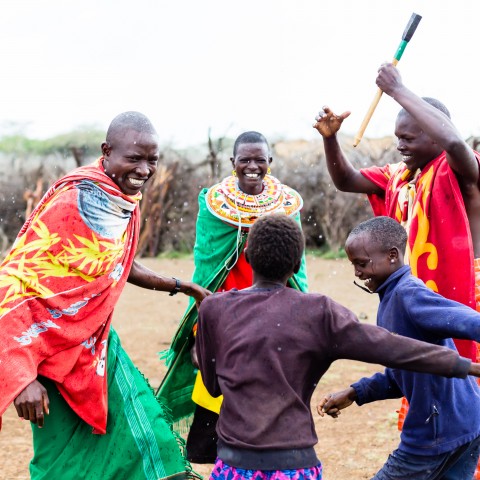
In alle kulture was spel was nog altyd een van die beste leerwyses. / “In all cultures, play has always been one of the best ways to learn.”
As much as I want this to be true, I cannot find any scientific substantiation for this claim. Apparently, Purvis did say this, but she took the source for the quote with her to the grave, according to her colleagues.
Yet, in many indigenous cultures, it’s implicitly understood that children learn best during play, which is why they are seldom barred from adult activities. This is the experience of any parent too, worldwide! It’s furthermore a quality we never lose, because adults tend to enjoy playful activities much more than classroom-style education or training. This enjoyment helps us to focus better and it amps up our motivation to study.
As said, online gaming is a great way to play and learn. Consider, for instance, this vocabulary builder with its simple audio and reading games, suitable for Beginner and Intermediate learners.
It would be even better to create your own fun, though!
Keep it Creative!
In order to play, you’ll need to flex your creativity muscles. This can be easily accomplished these days! For instance, record yourself reading, singing, or acting in Afrikaans and perhaps start your own YouTube channel—just for fun! This could also be an interesting way to record your progress.
Alternatively, create an Afrikaans card game with vocab flashcards or design a board game, for instance.
Creative writing in Afrikaans is another option. Keep it super simple at first by making drawings of Afrikaans vocabulary that makes up a story — think comic strip.
You could also paint, draw, or digitally decorate that Afrikaans poem or inspirational quote you want to memorize. Hang your artwork in a prominent location.
Or, go old school by creating simple Afrikaans greeting cards for friends or family. Think of cutting letters from magazines or newspapers to form the words, for instance. The possibilities are endless—the only secret is to keep it fun and engaging.
Study with a Buddy!
Shared experiences are always more enjoyable and motivating, so try to study with a friend. Or, search the Net for an online conversation buddy. Read Afrikaans to one another, create silly Afrikaans recordings together—have fun!

Studeer Afrikaans saam met vriende vir beter resultate! / “Study Afrikaans with a buddy for better results!”
Bravo to the Binge!
Binge-watching Afrikaans TV series, movies, and shows, and regularly listening to good-quality Afrikaans music are excellent ways to train your ear to the natural sound of the language. These activities will be especially good for Intermediate students who want to amp up their learning. It’s also fun! Create a playlist of your favorite Afrikaans music (there are loads of songs on YouTube, iTunes, and Spotify) and listen on repeat.
Refer to our article The Best Videos to Learn Afrikaans on YouTube for some viewing and listening ideas. Some movies and songs have English subscripts, so even Beginners can enjoy this activity. Great for a relaxing weekend with your study buddy.
Memorize, Moviestar!
I studied French at school and our clever teacher had us memorize the lyrics of Gilbert Becaud’s soulful Et Maintenant (“And now…”). I can still sing along lustily—en français! From a French Christian Bible, I memorized the beautiful Psalm 23, Le Seigneur est mon berger (“The Lord is my shepherd”), another favorite to recite. Even if you don’t completely understand the grammar yet, memorizing quality text will help you to internalize how the language is used.
Start by memorizing your favorite Afrikaans lyrics to belt out karaoke-style. Consider especially the work of artists Refentse, Tasché Burger, Chris Chameleon, and Coenie de Villiers—their Afrikaans pronunciation is impeccable and the music beautiful.
Or, memorize a poem you can recite with feeling, such as Louis Leopold’s Op my ou ramkietjie (“On my old ramkietjie“). This one would be easy for Intermediate learners to memorize, as it was turned into a song (which you can listen to here). Video record yourself and put your heart into it!

Memoriseer die lirieke en sing jou gunsteling Afrikaanse liedjie gereeld! / “Memorize the lyrics and often sing your favorite Afrikaans song!”
Think in Afrikaans!
Since we’re always chatting with an Invisible Other in our heads, the conversation can just as well be in Afrikaans. For a real vocabulary booster to expand your inner talk, look around you wherever you find yourself and name objects in your surroundings in Afrikaans. Repeat these words to yourself silently in your head till you can use them easily and naturally in sentences. (An online bilingual dictionary will come in handy here.)
Immersion is Ideal!
Of course, if you really want to speed up your Afrikaans proficiency, nothing beats full immersion. This means that you could, for instance, take a working or volunteer holiday to South Africa or Namibia, and insist that your hosts and/or employers address you only in Afrikaans. The cities are pretty Anglicized, so investigate opportunities in towns and rural areas.
Or, especially if you’re living in a large city in your own country, seek out an Afrikaans expat community and make new friends!
4. Conclusion
So? What do you think? How long will it take to learn Afrikaans, if you had to venture a guess? Let us know in the comments.
Afrikaans is a pleasant, easy language to learn and use, and is closely related to Dutch. Once you’ve mastered Afrikaans, you’ll find Dutch very easy to master too—two birds with one stone, almost! Don’t hesitate, and start learning Afrikaans online for free with AfrikaansPod101.com.

About the author: Christa Davel is an experienced bilingual (Afrikaans and English) freelance writer and editor, and is currently based in Cape Town, South Africa.
The 31 Best Afrikaans Proverbs and Their Meanings

The word “proverb” (spreekwoord in Afrikaans) is derived from the Latin proverbium. Collins Dictionary defines it as a short sentence that people often quote to give advice, or one that says something about life.
Proverbs also tend to employ the same vivid imagery and metaphoric language common in children’s stories. So, perhaps they’re an adult throwback to children’s fiction—who knows?
Proverbs touch us on a very deep level, as they go beyond nationality, gender, race, religion, and time. In this way, they connect us to one another with their universal truths and wisdom. The Afrikaans proverbs I’m going to cover in this article are sure to ignite your imagination and make you feel more connected to Afrikaner culture.

Ma en dogter lees ‘n boek saam (“Mother and daughter reading a book together”)
 Table of Contents
Table of Contents
- Why Use Proverbs in Afrikaans Conversations?
- The Difference Between Proverbs and Sayings/Idioms
- Afrikaans Proverbs and Meanings with English Equivalents
- Uniquely South African Proverbs
- Learn Afrikaans Proverbs Like a Pro at AfrikaansPod101.com!
1. Why Use Proverbs in Afrikaans Conversations?
Many proverbs are conversation tools that add character to a language, almost like adding spice to food. Throw a unique Afrikaans proverb into a conversation, and you could well pass for a native speaker!
Afrikaans proverbs can typically be used in both formal and informal settings, and parents often use them to explain ethics, morals, or other profound truths to their children.
Many similar proverbs appear in different languages. This is simply because cultures have cross-pollinated over the centuries with the gradual expansion of the world’s population.
First, we’ll take a look at those Afrikaans proverbs with English equivalents, of which there are plenty. Then, I will give a few examples of very unique Afrikaans proverbs with no English equivalents or approximations I can trace. (But if you know of an English approximate, or perhaps a similar proverb in your own language, please do share with us in the comments!)
Before we start, let’s quickly look at the difference between a proverb (spreekwoord) and an idiom or saying (idioom / sêding). These two are closely related, but are not the same in usage and meaning.

2. The Difference Between Proverbs and Sayings/Idioms
This is not complicated, but on many sites, one is often confused with the other. A trait they share is the use of metaphoric language (i.e. imagery). Also, both proverbs and idioms evolve as languages evolve, so there’s rarely a single, permanent version of any specific idiom or proverb.
They differ in the following ways:
A) Afrikaanse Sêdinge / Sêgoed / Idiome (“Afrikaans Sayings / Idioms”)
- A saying always forms part of a sentence with a noun, proper noun, or pronoun that refers to a specific person, entity, and/or situation. So, idioms are not universally applicable.
- Often, different regions in South Africa have different idioms for the same thing. For instance, we have many different sayings for referring to a drunk person.
In a rural town called Moorreesburg, Western Cape Province, the locals say: Hy/sy is ganspen. (Literally: “He/she is goose pen.”)
However, in Touwsrivier (also a small town in the Western Cape), we say: Hy/sy is kiepkop. In vernacular Afrikaans, a chicken is also sometimes referred to with an onomatopoeia: kiep or kiepie. This saying is closer to what we use in Gauteng Province: Hy/sy is hoenderkop. (Literally: “He/she is chicken head.”) It’s unclear where this idiom originated, but my guess is that it alludes to the movement of a chicken’s head when it walks—it doesn’t look very stable!
- Example: Ons moes van aalmoese lewe. (“We had to live off charity.”)
Van aalmoese lewe (“living off charitable offerings”) is a Dutch-based idiom meaning that someone is living in such extreme poverty that they have to depend on charity for survival. See below how this idiomatic expression differs from a certain proverb that also uses the word aalmoese.
B) Afrikaanse Spreekwoorde (“Afrikaans Proverbs”)
- Even if it forms part of a sentence, a proverb can always stand alone as a complete sentence or statement.
- It usually expresses a universally applicable piece of wisdom or sentiment.
- Pronouns in proverbs can be adjusted to be gender-correct, but vernacularly, they’re seldom modified this way.
- Proverbs in Afrikaans tend to show less regional diversity than idioms do. They’re understood almost everywhere in the country.
- Example: Aalmoese gee verarm nie. (“Giving charitably won’t make you poor.”) This proverb reminds us that giving freely to those in dire need will not cost us too much, nor will it harm us—a universal truth.
3. Afrikaans Proverbs and Meanings with English Equivalents
Now that you’re familiar with the differences between proverbs and idioms, let’s go over the most popular and widespread proverbs in Afrikaans!
1. Die appel val nie ver van die boom af nie. / “The apple doesn’t fall far from the tree.”
Meaning:
This is also a well-known proverb in English. It states that family members tend to share the same basic nature and/or traits.
Use:
In Afrikaans, one uses this phrase to comment on any situation where a child displays the same characteristics or skills as one or both of their parents. It’s most often said in a positive sense, and it can be used for either gender.
Example Sentence:
Sy is ‘n skrywer, net soos haar pa. Die appel val nie ver van die boom af nie.
“She is a writer, just like her dad. The apple doesn’t fall far from the tree.”
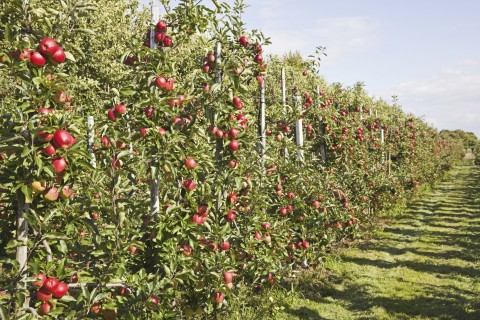
Die appel val nie vêr van die boom af nie. (“The apple doesn’t fall far from the tree.”)
2. ‘n Voël verander van kleur maar nie van veer. / “A leopard doesn’t change its spots.”
Lit. Translation:
“A bird changes its color but not its feathers.”
Alternative:
‘n Jakkals verander van haar maar nie van streke nie. / “A fox changes its fur but not its tricks.”
Meaning:
This expressive proverb means that even when people appear to have changed, their basic character is likely still intact. One’s true character will always show, no matter how hard one tries to hide it. The absolute truth of this proverb is debatable, because people can and do completely change, when they must. But this usually takes great effort and is not the norm.
Use:
This proverb is mostly used when a person displays tenacious moral flaws. Picture this scene: A girl broke up with her boyfriend because he repeatedly lied to or cheated on her. The boy begged her to take him back with earnest promises to change his ways. All went well for a while, but he was soon lying and cheating again. In this instance, the proverb could be used as a comment that says it all, or it could serve as cautionary advice from a concerned parent or friend.
Example Sentence:
Wees net versigtig om weer daardie man te vertrou. ‘n Voël verander van kleur maar nie van veer.
“Just be careful trusting that man again. A leopard doesn’t change its spots.”

‘n Voël verander van kleur maar nie van veer. (Literally: “A bird changes color but not feathers.”)
3. Die skoenmaker se kinders loop kaalvoet. / “The cobbler’s children are the worst shod.”
Lit. Translation:
“The shoemaker’s/cobbler’s children walk barefoot.”
Meaning:
Like its English counterpart, this proverb refers to the rather ironic phenomenon where people who excel in their profession are sometimes unable to (or simply won’t) extend their services to their children. Think of the shoemaker whose children don’t wear good shoes (or any shoes at all). Or the car mechanic whose daughter’s vehicle always needs repairs. In the movie business, this is sometimes called “vocational irony.”
Some interpreters feel that the proverb refers to bad parenting, but I don’t agree. Unless the children are clearly in a bad way (which should then be reported to the appropriate local authorities), who really knows what is going on in another’s household?
Use:
Imagine you’re a teacher who often organizes outings for your class. One of your pupils, the son of a dentist, is repeatedly unable to join, usually because of dental problems. You could then comment on the situation using this proverb.
Example Sentence:
Die tandaarts se seun kon weereens nie saamkom op die uitstappie nie as gevolg van tandpyn. Lyk my die skoenmaker se kinders loop kaalvoet.
“The dentist’s son could not join us on the excursion, again due to a toothache. It seems the cobbler’s children are the worst shod.”

Die skoenmaker se kinders loop kaalvoet. (Literally: “The shoemaker’s children walk barefoot.”)
4. Wie nie waag nie, wen nie. / “Nothing ventured, nothing gained.”
Lit. Translation:
“Those who don’t dare, don’t win.”
Meaning:
Just like the English version, this Afrikaans proverb reminds us that nobody can expect to win or succeed in life without sometimes pushing their own boundaries. It’s an encouragement to be bold and to act despite feeling afraid.
Use:
Imagine this scenario, for instance: Your Afrikaans friend is offered a well-paid job where they’ll be expected to do work that will challenge him to up his skills. Soon after accepting the offer, however, and even before starting, he confesses to you that he wants to quit because his courage is failing. You could then say this proverb to encourage him to be more daring.
Example Sentence:
Gaan vind eers uit wat die werk behels, dalk is dit nie so moeilik as wat jy dink nie. Onthou, wie nie waag nie, wen nie.
“First go find out what the work entails; perhaps it is not as difficult as you think. Remember, nothing ventured, nothing gained.”
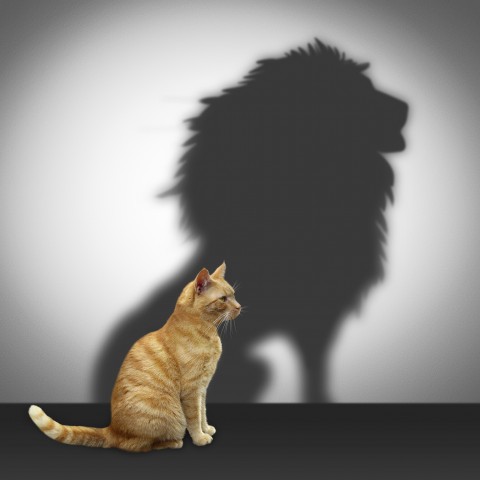
Wie nie waag nie, wen nie. (Literally: “Those who don’t dare, don’t win.”)
5. Een swaeltjie maak nie ‘n somer nie. / “One swallow does not make a summer.”
Meaning:
This proverb was appropriated from English and apparently first encountered in early glossaries, such as Richard Taverner’s transcription of the Latin proverbs of Erasmus (circa 1539). It alludes to the migratory return of swallows in early summer. In the olden days, when the swallows returned, people saw it as a sign that summer had started. However, sometimes there were “false alarms,” typically when only one swallow was spotted. The proverb came to mean that a single good sign doesn’t necessarily indicate a trend.
Use:
It’s used to caution against blind or excessive optimism after a windfall. Or, as Erasmus put it: “It is not one good qualitie that maketh a man good.”
Example Sentence:
Ons het goeie verkope gehad hierdie week, maar onthou—een swaeltjie maak nie ‘n somer nie. Dit gaan tyd neem vir die besigheid om regtig te floreer.
“We made good sales this week, but remember—one swallow doesn’t make a summer. It will take time for the business to really flourish.”
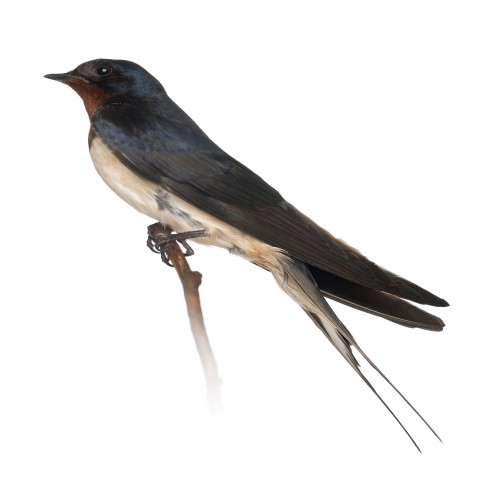
Een swaeltjie maak nie ‘n somer nie. (“One swallow does not make a summer.”)
6. Wat jy saai sal jy maai. / “As you sow, so you shall reap.”
Meaning:
This well-known proverb is based on the hermetic principle that what you think, say, or do always returns to you in some form or another. The principle is similar in all religious traditions, but the proverb itself is found in the Christian Bible.
Use:
Just as in English, this proverb is used to comment on or warn about one’s behavior. Picture, for instance, that you find out your teenage son is considering cheating on his girlfriend. You might have a talk with him about morals and ethics, gently reminding him that what he sows, he will eventually reap.
Example Sentence:
Moenie ‘n verneuker wees nie, my kind, dit maak mense seer. En onthou, wat jy saai sal jy maai. Dis hoe die lewe werk.
“Don’t be a cheat, my child, it hurts people. And remember, as you sow, so you shall reap. Life works that way.”
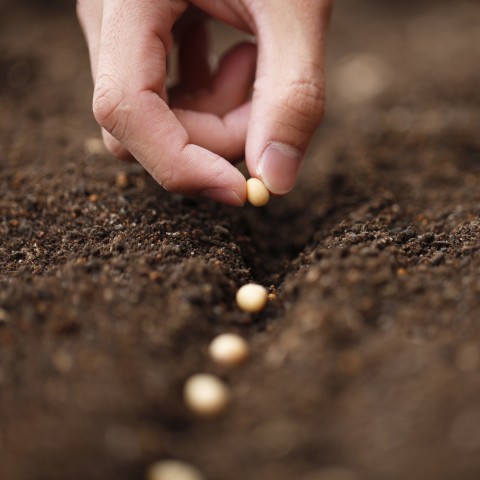
Wat jy saai sal jy maai. (“As you sow, so you shall reap.”)
7. Skoonheid vergaan maar deug bly staan. / Approximate: “Beauty is only skin-deep.”
Lit. Translation:
“Beauty fades but virtue endures.”
Meaning:
This proverb sings the praises of inner virtue over outer appearance, or the value of inner, more enduring character qualities over the visible, transient ones.
Use:
In practical terms, the proverb is used as a comment, warning, or advice when a person is blinded by the outer beauty of someone or something. This commonly happens when we become infatuated with a person or an object!
For instance, imagine you’re a car aficionado and a friend asks for your advice about buying a new car. He’s smitten by the latest body style of a certain sports car, and you realize that he wants to purchase it impulsively. However, as the expert, you know that it won’t be a good buy for him. That would be the perfect time to use this proverb.
In Afrikaans, deug (“virtue”) is sometimes replaced with liefde (“love”), in which case it extols the virtues of choosing a life partner mostly for their inner beauty.
Example Sentence:
Daardie is ‘n mooi motorkar, maar dis nie ‘n baie praktiese een nie. Onthou, skoonheid vergaan maar deug bly staan!
“That is a nice-looking motorcar, but it’s not a very practical one. Remember, beauty fades but virtue endures!”

Skoonheid vergaan maar deug bly staan. (“Beauty disappears but virtue remains.”)
8. Haastige hond verbrand sy mond. / Approximates: “Haste makes waste.” AND “More haste, less speed.”
Lit. Translation:
“The hasty dog burns its mouth.”
Meaning:
This is a reminder to not hurry things unnecessarily, as you can end up spoiling them for yourself. It’s similar to the English proverb that warns against doing jobs hastily, because this could cause mistakes and unnecessary loss.
Use:
This one is often used by parents during mealtime! In this case, it means exactly what it says: don’t eat too fast or the hot food will burn your mouth. It’s often used in other contexts too. For instance: your Afrikaans friend has booked a holiday weekend at a beautiful location and is tremendously eager to be off. She announces that she’s going to drive there at top speed, which you know will be unsafe. You might decide to use this proverb to remind her to drive at a sensible speed.
Example Sentence:
Daar is gewoonlik verkeerskameras op daardie pad. En dit reën, so oppas. Haastige hond verbrand sy mond.
“There are usually traffic cameras on that road. And it’s raining too, so be careful. The hasty dog burns its mouth.”

Haastige hond verbrand sy mond. (“The hasty dog burns its mouth.”)
9. Aanhouer wen. / Approximate: “Practice makes perfect.”
Lit. Translation:
“One who persists wins.”
Meaning:
This proverb encourages us not to give up on our goals or to quit working toward them when the going gets tough. It reminds us that it’s the tenacious person who will eventually get what they want.
Use:
This is one of the best Afrikaans proverbs to use when someone feels discouraged in their endeavors, or if they just don’t feel like continuing. It’s similar to the English approximate in that it encourages persistence, albeit with a different emphasis. Literally, Aanhouer wen encourages someone who feels discouraged and tired by their efforts to keep going, while the English proverb encourages persistence in order to reach a high standard.
Imagine your daughter wants to improve her performance in athletics, but feels discouraged by her slow progress and therefore wants to quit practicing. That’s when you would give her a hug and remind her (with this Afrikaans proverb) that persistence will bear fruit.
Example Sentence:
Ja, oefening is nie altyd lekker nie, my kind, maar onthou—aanhouer wen.
“Yes, practice is not always pleasant, my child, but remember—the one who persists wins.”

Aanhouer wen. (“One who persists, wins.)
10. Approximate: “Don’t put off until tomorrow what can be done today.”
Lit. Translation:
“From procrastination comes cancelation.”
Meaning:
This proverb is a warning against procrastination. We’re all familiar with the dynamic—the longer you put off doing something, the more likely you are not to do it at all!
Use:
The proverb is pretty straightforward and can be used in any situation where this reminder is appropriate. For instance—New Year’s resolutions! Who hasn’t promised themselves that they will lose weight, spruce up the garden, or write a book, only to reach the end of that year without having reached any goals due to procrastination? Use this proverb to remind yourself or someone else why it’s better to ditch this bad habit.
Example Sentence:
Laat ek tog gaan oefen. Want regtig, van uitstel kom afstel!
“Let me go and exercise. Because really, from procrastination comes cancelation.”

Van uitstel kom afstel. (Literally: “From procrastination comes cancelation.”
11. Elke hond kry sy dag. / “Every dog gets its day.”
Meaning:
According to the Collins Dictionary, this proverb means that everyone will be successful or lucky at some point in their life. It has interesting origins, not as benevolent as the dictionary definition suggests. The proverb alludes to a pack of dogs that was allegedly loosed upon Greek playwright Euripides by a vengeful enemy in 405 BCE. The dogs mauled and killed the writer. The proverb came to mean that even the lowliest person will eventually get their revenge over their most powerful enemy.
Use:
It’s often used when we want to comfort a friend who’s down on their luck, whether in serious or trivial matters. For instance, if someone has lost a competition or didn’t get a job they applied for, you could use this proverb to cheer them up. It’s also sometimes used to say that a person will be avenged if they suffer something they didn’t deserve, such as when they’re unfairly fired or implicated in a crime they didn’t commit.
Example Sentence:
Hy voel baie kwaad en verneder oor hy uit die span geskop is na vals beweringe van dwelmgebruik. Maar hy troos homself met hierdie wete—elke hond kry sy dag.
“He feels very angry and humiliated because he was kicked off the team due to false allegations of drug use. But he comforts himself with this thought—every dog gets its day.”

Elke hond kry sy dag. (“Every dog gets its day.”)
12. Elke boontjie kry sy loontjie. / “You get what you deserve.”
Lit. Translation:
“Every small bean gets his little due.”
Meaning:
If the literal translation doesn’t make much sense, that’s because this popular proverb is based on old Afrikaans folklore. The story is called Little Bean, Straw, and Ember and it tells us that one day, these three friends went for a walk in nature. They reached a stream to cross, and Straw generously offered to lie down and form a bridge that the other two could safely use. Little Bean went first and crossed the stream easily. Unfortunately, Ember burnt Straw, so both of them collapsed into the stream. Little Bean found this hilarious and laughed uncontrollably. In fact, he laughed so hard that he popped open! The moral of the story is that he got his due for mocking his friends in their misery.
Use:
This is mostly used as a comment when we notice that someone, according to our judgment, gets what they deserve. For instance, a large company is exposed for poor environmental health and safety practices. At first, it seems they’re getting away with it, but then you read in the newspaper that someone has sued them and won a large settlement. This is when you could mutter this proverb to yourself or air it in a conversation to express your opinion. You could also use it to comfort a friend who has fallen victim to unfair treatment.
Example Sentence:
Toemaar, ou pêl, moenie te sleg voel nie. Elke boontjie kry sy loontjie.
“Don’t worry, old pal, and don’t feel too bad. They will get what they deserve.”
Note:
In this case, the English version is closer to an idiom than a proverb because the pronoun “you” is often replaced with other pronouns or nouns.
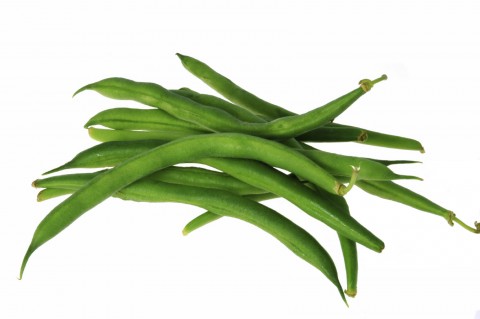
Elke boontjie kry sy loontjie. (Literally: “Every bean gets his dues.”)
13. Die gras lyk altyd groener aan die ander kant van die draad. / “The grass is always greener on the other side of the fence.”
Meaning:
This well-known proverb refers to our tendency to compare our situation with others’, and then conclude that they have it better than we do, even when they really don’t. It’s not so much envy as it is the assumption that we’re worse off than others, making us wish we were on their side of the proverbial fence.
Use:
Picture this scenario: Your Afrikaans colleague is not terribly unhappy at work, but she’s restless and bored in your department. She’s always looking longingly at colleagues in a different department who work outside of the office, thinking that they seem to have a better time. Therefore, she wants to ask for a transfer. However, you know that all is not as it seems in the other department, so you use this proverb to warn her against taking rash action.
Example Sentence:
Die gras lyk altyd groener aan die ander kant van die draad, Sandra. Jy moet mooi dink oor ‘n oorplasing.
“The grass is always greener on the other side of the fence, Sandra. You need to think very carefully about a transfer.”

Die gras lyk altyd groener aan die ander kant van die draad. (“The grass is always greener on the other side of the fence.”)
14. Oos, wes, tuis bes. / “There’s no place like home.”
Lit. Translation:
“East, west, home is best.”
Meaning:
This proverb reminds us of the joys of having a good home. It implies that, no matter how far and wide we travel, nothing compares to being home, a place we love returning to.
Use:
It’s used to describe a feeling of satisfaction upon arriving home after a long holiday or trip. It can also refer to the place where you were raised, or any place you fondly recall as “home.” You could use this proverb with good effect if, for instance, you were invited to a class reunion in your hometown and were asked to give a short speech. It would make a great opening line!
Example Sentence:
Goeienaand, Klasmaats van ’88. Wat kan ek sê—oos, wes, tuis bes.
“Good evening, Class of ’88. What can I say—east, west, home is best.”

Oos, wes, tuis bes. (Literally: “East, west, home best.”)
15. Waar daar ‘n rokie trek, is daar ‘n vuurtjie. / “Where there’s smoke, there’s fire.”
Meaning:
This is another well-known proverb, and it means that if rumors are circulating about someone or something, there’s always some truth to them.
Use:
The absolute truth of this proverb is debatable, because really—do we ever get the full picture via rumors? We love to gossip, unfortunately, which distorts or takes away from the truth. So, use this proverb sparingly if you’re dealing with negative stories.
The proverb can be used positively too, though. For instance, your Afrikaans friend whispers that she heard along the grapevine that a mutual friend has gotten engaged, but she’s not sure. If you don’t know either, this proverb could be a good reply, accompanied by a happy wink.
Example Sentence:
Ek weet nie, maar jy weet mos hoe die spreekwoord gaan—waar daar ‘n rokie trek, is daar ‘n vuurtjie.
“I don’t know either, but you know what the proverb says—where there’s smoke, there’s fire.”

Waar daar ‘n rokie trek, is daar ‘n vuurtjie. (“Where there’s smoke, there’s fire.”)
16. Jy kan ‘n perd na die water toe lei maar jy kan hom nie maak drink nie. / “You can lead a horse to the water, but you can’t make it drink.”
Meaning:
This one means that guidance has its limits, and that you cannot force anyone to take an opportunity or advice offered them.
Use:
It’s mostly used as a comment during conversation. For instance: Your friend was looking for a specific garden tool and you told him which shop stocks them. Later you hear that he has not found the tool, but he didn’t take your advice either. You could then use this proverb as a remark.
Example Sentence:
Ek het hom vertel waar daardie gereedskap te koop is. Ag wel, jy kan ‘n perd na die water toe lei maar jy kan hom nie maak drink nie.
“I told him where those tools are sold. Ah well, you can lead a horse to the water, but you can’t make it drink.”
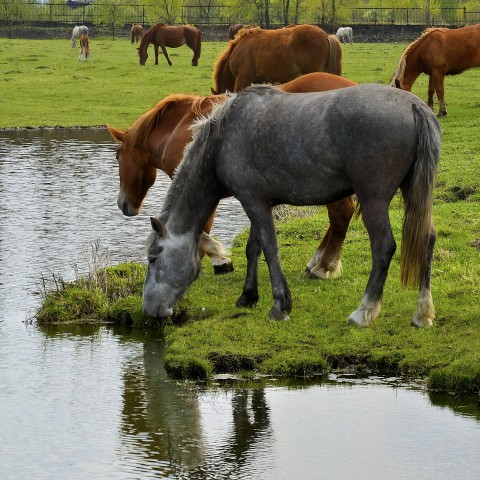
Jy kan ‘n perd na die water toe lei, maar jy kan dit nie maak drink nie. (“One can lead a horse to the water, but you can’t make it drink.”)
17. Wanneer die son sak in die weste is die luiaard op sy beste. / Approximates: “A young man idle, an old man needy.” OR “A lazy youth, a lousy old age.”
Lit. Translation:
“When the sun sets in the west, the lazy bum is at his best.”
Meaning:
This is a reference to dusk, which signals the end of the day—supposedly a lazy person’s favorite time of day, because now they can rest legitimately. Of course, it’s the end of work for many people.
Use:
Parents use this proverb to teach or warn their children not to be lazy. In conversation, it’s a reference to idleness or laziness—oftentimes our own, even if rest is well-deserved! For instance, if you feel exceptionally tired after hard work and just want to stretch out in front of the TV with a glass of wine, you could exclaim this proverb with a smile to mildly deprecate yourself.
Example Sentence:
Ek het nie lus om kos te maak vanaand nie; gee my net ‘n goeie fliek en wyn! As die son sak in die weste, is die luiaard op sy beste.
“I don’t feel like making supper tonight; just give me a good movie and wine! When the sun sets in the west, the lazy person is at his best!”

Wanneer die son sak in die weste is die luiaard op sy beste. (“When the sun sets in the west, the lazy bum is at his best.”)
18. Die oggendstond het goud in die mond. / Approximate: “The early bird catches the worm.”
Lit. Translation:
“The break of dawn has gold in its mouth.”
Meaning:
This personification of dawn is the antidote to the laziness referenced in the previous proverb, as it extolls the virtues of getting up early for work. The reasoning is that this will help you perform better, because most people tend to feel more energetic and motivated in the morning—gold. If you get up early, you’ll also have time to do more work—more gold!
Use:
It’s used as a comment to remind us of the above. If, for instance, a manager wants to motivate his staff to come in earlier for work on a specific day, he might use this proverb.
Example Sentence:
Waarom begin ons so vroeg Maandagoggend? Oggendstond het goud in die mond, Kollega.
“Why are we starting so early on Monday morning? Break of dawn has gold in its mouth, my colleague.”

Oggendstond het goud in die mond. (Literally: “Break of dawn has gold it its mouth.”)
19. Goedkoop koop is duurkoop. / “If you buy cheaply, you pay dearly.”
Meaning:
This proverb warns against the pitfalls of shopping like a miser, unless you’re very sure that you’re getting reasonable quality. We tend to get what we pay for! This is not always true, though; not all inexpensive products and services are of poor quality, nor does ‘expensive’ necessarily translate to ‘excellent quality.’ But, in general, a dodgy purchase could mean you’ll soon have to replace it with a better one, or pay for repairs! This would then cost you a lot more than if you’d been less stingy in the first place.
Use:
The proverb is often used as a warning when someone is about to make a bad purchase to save money. Imagine this scenario: Your friend needs a new cell phone, but she’s saving for a vacation and therefore doesn’t want to buy her preferred (but expensive) brand. Instead, she’s considering another, much cheaper but unknown and slightly suspect brand. In this case, you could use this line to caution her.
Example Sentence:
Daardie foon lyk aanloklik, maar oppas. Goedkoop koop is duurkoop.
“That phone looks appealing, but beware. If you buy cheaply, you pay dearly.”

Goedkoop koop is duur koop. (“If you buy cheaply, you pay dearly.”)
20. Honger is die beste kok. / “Hunger is the best sauce.”
Lit. Translation:
“Hunger is the best cook.”
Meaning:
This proverb means that if a person is hungry, they’re less likely to be finicky about the food they eat.
Use:
It’s often used as a playful comment when children with a difficult palate eat all their food because they’re hungry. Imagine being grateful that your offspring is so hungry after a day of energetic play that, for once, they don’t complain about what’s on their plates! That’s when you would use this proverb with a smile.
Example Sentence:
Wel, dit wys net—honger is die beste kok!
Literally: “Well, this just shows—hunger is the best cook!”

Honger is die beste kok. (“Hunger is the best chef.”)
21. ‘n Halwe eier is beter as ‘n leë dop. / Approximate: “Better an egg today than a hen tomorrow.”
Lit. Translation:
“Half an egg is better than an empty shell.”
Meaning:
This Dutch-derived proverb advises that sometimes, it’s better to cut your losses and take what you get rather than not getting anything. It doesn’t mean exactly the same thing as its English approximate, which advises that sometimes it’s wiser to take a sure thing today than to gamble on a better thing tomorrow. The Afrikaans proverb is more explicit about why—taking a gamble means you could end up with something worthless!
Use:
Imagine this scenario: Your friend has booked an exclusive sea holiday for three weeks, and he’s been looking forward to it very much. However, before he’s due to leave, the booking agent calls and admits to having made a big mistake that reduces your friend’s holiday period by half. He decides not to shop for other holiday packages at such short notice, though, because the amended booking is now offered to him at a greatly discounted price. In your conversation on the topic, he uses this proverb to explain his decision.
Example Sentence:
Dis nie ideaal nie maar dit is steeds ‘n wegkomkans en ek kry darem groot afslag. ‘n Halwe eier is beter as ‘n lëe dop.
“It’s not ideal, but it is still a getaway and I am getting a large discount. Half an egg is better than an empty shell.”
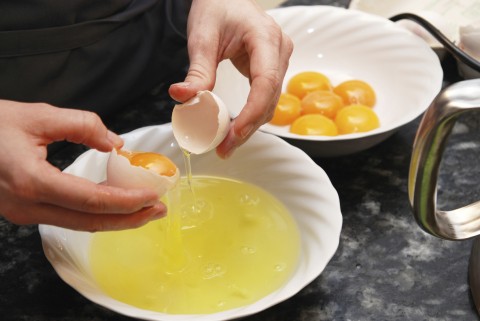
‘n Halwe eier is beter as a leë dop. (“Half an egg is better than an empty shell.”)
4. Uniquely South African Proverbs
Some proverbs are unique to a language, and Afrikaans has a few great, very expressive ones. Here are a few Afrikaans proverbs and sayings you won’t find in English!
22. Stille waters, diepe grond—onder draai die duiwel rond.
Lit. Translation:
“Still waters, deep ground—underneath (the water) the devil circles round.”
Meaning:
This means that a demure, coy demeanor, especially in a group, can be misleading and hide a naughty or suspect character. There’s no easily traceable approximate in English, and it’s noteworthy that the Afrikaans proverb doesn’t mean the same as “Still waters run deep.” The latter implies that a quiet manner sometimes hides a passionate or profound nature, whereas the Afrikaans version suggests that a very quiet, demure behavior is suspect!
Use:
This proverb is most often used in jest to tease shy people. For instance, your new secretary rarely speaks during meetings or work-related social events. This could be a good line to tease her with if you want to draw her out and help her relax.
It’s sometimes also used as a comment when someone, regularly considered shy and proper, suddenly acts wildly out of character, or is at the center of a controversy or scandal. Or, it can serve to caution a friend if you feel they are dealing with a seemingly decent but definitely suspect person.
Example Sentence:
Hoe praat jy dan so min, Rita? Jy weet wat die spreekwoord sê: Stille waters, diepe grond—onder draai die duiwel rond!
“Why don’t you talk more, Rita? You know what the proverb says: Still waters, deep ground—underneath (the water) the devil circles round!”
23. Agteros kom ook in die kraal.
Lit. Translation:
“The ox bringing up the rear also gets into the kraal.”
Meaning:
Even those lagging behind eventually reach their goal. The proverb is also sometimes a kind reminder that no one is a complete loser in every area of life.
Use:
This is used as an encouraging comment when, in any situation, you see someone struggling to keep up with the group, but you have confidence that they’ll eventually make it. Or, use it when they do catch up! For instance, your family goes hiking, but your overweight son is battling a bit on the trail, so he keeps lagging behind. Eventually, he catches up with everybody else. You can then use this proverb to congratulate him, together with a huge smile and a cool drink!
Example Sentence:
Aaah, kyk wie is hier! Agteros kom ook in die kraal—geluk, Boet!
“Aaah, look who’s here! The ox bringing up the rear also gets into the kraal—congratulations, Boet!”
Note:
Boet is a popular and casual nickname, close in meaning to the English slang term “Bro.” The female equivalent is Sus, used the same way as the English “Sis.” It’s not exclusively used among family, but Afrikaans parents like calling their offspring Boet or Sus.

Oulap se rooi maak mooi. (“A penny’s red makes pretty.”)
24. Oulap se rooi maak mooi.
Lit. Translation:
“A penny’s red makes pretty.”
Meaning:
Oulap is an old Afrikaans word for a penny, which is a unit of currency (low in value) used in some Western countries. In South Africa, the penny is no longer used as a monetary unit, but the proverb endures. It means that great improvement can be made with only a small adjustment, specifically regarding appearance.
Use:
Use this proverb as a compliment or comment in any appropriate situation. It’s very often used to compliment or refer to a woman who looks better with a little bit of makeup on. It’s also used when something, such as a room, looks prettier after colorful items (oftentimes red ones) have been added.
Example Sentence:
Sy lyk baie goed met daardie lipstiffie aan. Oulap se rooi maak mooi!
“She looks very good with that lipstick. A penny’s red makes pretty!”
25. Die deler is so goed soos die steler.
Lit. Translation:
“The one who shares in the loot is the same as the thief.”
Note:
In Afrikaans, the adjectival phrase, so goed soos, has two meanings: “as good as” and “the same as.”
Meaning:
This proverb reminds us that if we are aware of a criminal act but consciously choose to profit from it anyway, we are morally as guilty as the person who committed the crime.
Use:
It’s often used as a teaching tool by parents and teachers, or to comment on any situation where this truth is applicable. Suppose you find your five-year-old daughter enjoying mysteriously obtained candy with her friend. It turns out that the friend had nicked the candy from the local supermarket. Upon discovering this, you could use this proverb as a teaching tool during a very stern conversation with both about the criminality of thievery!
Example Sentence:
Die deler is so goed soos die steler, my kind. Jy kon vir Theo gesê het om die lekkergoed te gaan teruggee; jy moes nie saam geëet nie! Dis verkeerd, ons maak nie so nie.
“The one who shares in the loot is the same as the thief, my child. You could have told Theo to return the candy, and not have shared it with him! That’s wrong, we don’t do that.”

Jakkals trou met Wolf se vrou. (“Jackal marries Wolf’s wife.”)
26. Jakkals trou met Wolf se vrou. / Lit. “Jackal marries Wolf’s wife.”
Meaning:
In South Africa, we often comment with this proverb during a so-called sunshower. This occurs when it rains while the sun is not behind the clouds, and in South African English, we call this phenomenon a Monkey’s Wedding. However, few know what this proverb really means. For this, we again have to look at an Afrikaans fable, this one featuring Jakkals (“Jackal”) and Wolf (“Wolf”) as main characters.
In South African folklore, Wolf was Jackal’s uncle, and he and his pretty wife were also Jackal’s godparents. Then, Jackal fell in love with his godmother and proceeded to woo her, which was improper as it broke the unspoken societal laws of the bush. A nephew and a godmother were two things that just didn’t belong together—similar to the pairing of sunshine and rain, which almost appears unnatural. So, originally, this proverb referred to anything that went strongly against the societal norms of the time.
Use:
Its original use is completely outdated in modern, vernacular Afrikaans. In fact, I have never heard it being used this way. It’s still a popular comment when a sunshower takes place, though.
Example Sentence:
Kyk buitekant! Jakkals trou met Wolf se vrou.
“Look outside! It’s a Monkey’s Wedding.”
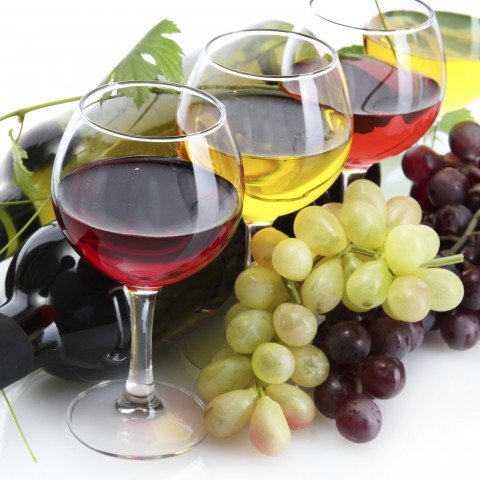
Goeie wyn het nie ‘n krans nodig nie. (“Good wine doesn’t require a wreath.”)
27. Goeie wyn het nie ‘n krans nodig nie.
Lit. Meaning:
“Good wine doesn’t require a wreath.”
Meaning:
This proverb means that quality is self-evident; it doesn’t need to be praised or advertised. It’s apparently derived from a time when it was customary for travelers’ lodges to hang a wreath outside their doors to indicate the availability of wine. Over time, the places with good wine became so well-known and popular that they didn’t need to hang out a wreath any longer.
Use:
This is a rarely used proverb, mostly used to comment on excellent food or drink presented in a simple style or in a laid-back, unassuming setting. Imagine, for instance, you’re with friends in a low-budget restaurant where you get served a particularly superb wine. If someone mentions their surprise over this, you could comment with this proverb.
Example Sentence:
Ja, hierdie is ‘n besondere wyn in ‘n onwaarskynlike plek. Maar dis soos hulle sê: goeie wyn het nie ‘n krans nodig nie.
“Yes, it’s an exceptional wine in an unlikely place. But, as they say: good wine doesn’t need a wreath.”
28. Die kok is verlief.
Lit. Meaning:
“The cook is in love.”
Meaning:
The proverb originated when people were served food that was too salty. In modern Afrikaans, however, it refers to any slightly botched dish. The inference is that the cook must have been distracted because they’re in love, which is why they made mistakes while cooking!
Use:
Use this as a lighthearted comment during a meal if there’s clearly something wrong with the food, but you don’t wish to make a big fuss of it.
Example Sentence:
Ja, die kok is verlief, dis duidelik. Maar dis nie ‘n probleem nie, die kos smaak nie te sleg nie!
“Yes, the cook is in love, that’s clear. But it’s not a problem, the food doesn’t taste too bad!”
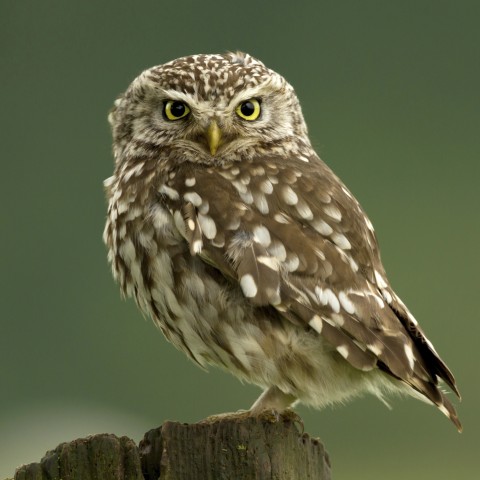
Elkeen dink sy uil is ‘n valk. (“Everyone sees his owl as a falcon.”)
29. Elkeen dink sy uil is ‘n valk.
Lit. Translation:
“Everyone sees his owl as a falcon.”
Meaning:
This proverb means that parents want to see their children only through rose-colored lenses, probably endowing them with characteristics they don’t really have. For instance, owls can fly, but not as high as falcons do. They’re also shy night-prowlers, whereas most falcons soar during the day.
Use:
This is often a self-deprecating comment parents make when they notice they’ve expected too much of their offspring. However, unless you’re very close to the parents, never use this proverb sarcastically or to describe children’s lesser accomplishments—the parents may never speak to you again!
Example Sentence:
Elkeen dink sy uil is ‘n valk, nè? Maar ek is steeds trots op my uiltjie, sy het tweede gekom in die kompetisie.
“Everyone sees their owl as a falcon, don’t they? But I am still proud of my owlet; she came second in the competition.”
30. Vat jou goed en trek, Ferreira.
Lit. Translation:
“Take your stuff and leave, Ferreira.”
Meaning:
This proverb commands that you “take your stuff and leave,” simple as that! It has an interesting, if rather cruel, backstory dating back to 1872 on a wealthy Western Cape Province farm close to Somerset West. The farm belonged to Willem Adriaan Van Aardt, who had a daughter called Ada. Ada, a music student, was a vivacious girl known for her fine sense of humor and excellent singing voice. Annie Malony was her piano teacher. The two were firm friends and were always called upon at social gatherings to provide musical entertainment.
By age 17, Ada was extremely popular with everyone in the area and obviously had many suitors. One of the most persistent was Jannie Ferreira, son of neighboring farmer Mr. Stephanus Ferreira. Jannie had a birth defect (an ungainly gait), but this didn’t stop him from pestering the girl. He clearly didn’t want to get the hint that she was not interested in a relationship with him.
Out of frustration with his obtuseness, Ada started penning down her feelings in verse, including the line: Vat jou goed en trek, Ferreira. (“Take your stuff and leave, Ferreira.”) She showed her writings to Annie, who immediately set it to a catchy polka tune.
At the next large social gathering, to which Jannie was also invited, the two performed the song together. After that evening, Jannie stopped visiting her—he’d finally gotten the message. However, the tune was so infectious that it quickly became popular in the region, and it later spread to all parts of the country. To this day, it’s a well-loved folk tune of the Afrikaans people; you can listen to it here.
Use:
This proverb is most often used as a comment, or to tell someone to leave in a jocular manner. Or you could say it to mean “Get lost!” For instance, you and your friends are discussing the COVID-19 virus. You could then use this proverb to indicate you wish the virus would leave.
Example Sentence:
Gelukkig het ons vinnig entstof ontwikkel en kon ons vir die virus sê, vat jou goed en trek, Ferreira!
“Fortunately, we quickly developed a vaccine and could say to the virus, take your stuff and leave, Ferreira!”
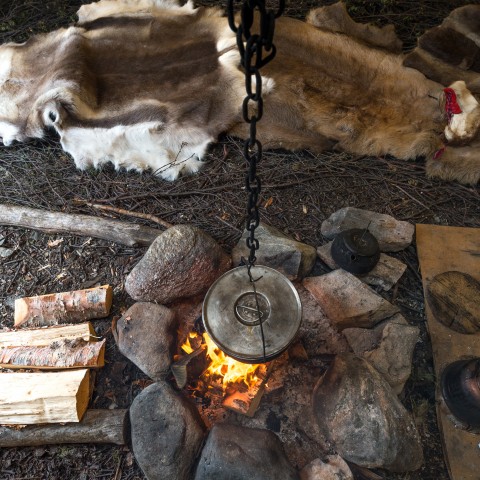
As is verbrande hout. (“Ash is burned wood.”)
31. As is verbrande hout.
Lit. Translation:
“Ash is burned wood.”
Meaning:
As has two meanings in Afrikaans: “burned wood” and the conjunction “if.” The proverb literally clarifies which as you’re talking about.
Use:
It’s most often used in reply to a worry pot who always makes suppositions or raises objections, usually starting their sentences with As … (“If …”) or Maar wat as … (“But what if …”). Using this proverb, you indicate to them that there’s no way of telling if their fears are going to materialize, but that it’s reasonable to expect the best outcome. Ergo, they can stop worrying! Use it with a friendly tone and a smile, not as a sharp retort.
Example Sentence:
Ja Marie, en as is verbrande hout. Ons het seker gemaak die erf is veilig vir kinders, Vriendin, so jy kan maar ophou bekommerd wees.
“Yes, Marie, and ‘as is verbrande hout.’ We made sure the yard is safe for children, my friend; you can stop worrying.”
5. Learn Afrikaans Proverbs Like a Pro at AfrikaansPod101.com!
Which of these Afrikaans proverbs resonate with you the most, and why? Let us know in the comments!
While learning these proverbs in Afrikaans will certainly impress the locals, there’s a lot more to discover about the language and culture of the Afrikaner people.
At AfrikaansPod101.com, we can help you understand Afrikaans easily with our hundreds of recorded videos, our podcast, these vocabulary lists, and more. With our help, you’ll be able to use the proverbs correctly and speak like a native in no time!
Also, gain the skills you need to decipher Afrikaans proverbs yourself with the multiple tools available to you upon subscription, such as the Afrikaans Key Phrase List and the Afrikaans Core 100 Word List. Also, keep your Afrikaans online dictionary close for easy translation!
If Afrikaans vernacular is important to you, then take a look at the following pages as well:
- The Best Afrikaans Internet Slang and How to Use it!
- How To Say “Hello” in Afrikaans Like a Native Speaker!
- How To Say “Thank You” in Afrikaans
Still hesitating? Don’t! Subscribe now, and you’ll be very happy you did!

The Top English Words Used in Afrikaans – and More!

Imagine getting this message from your South African friend:
“Hey! Come jol with us on Saturday afternoon; we are going to gooi something lekker on the braai. The party will be under the lapa.”
Do you have any idea what this message means? Let us know in the comments! At AfrikaansPod101.com, we love hearing your thoughts and opinions, so feel free to weigh in.
But if you’re not really sure what your friend just invited you to, no worries. That’s ‘Afrikaan-lish,’ or rather, a blend of Afrikaans, English, and even one word appropriated from one of South Africa’s other languages!

The example used above illustrates how languages cross-pollinate and influence one another. This is important, because nowhere in South Africa is Afrikaans spoken in complete isolation from English.
 Table of Contents
Table of Contents
- It’s Important to Learn English Words in Afrikaans
- Afrikaans Words Used in English
- Learn Much More Than English Words in Afrikaans with AfrikaansPod101!
It’s Important to Learn English Words in Afrikaans
If you’re serious about learning nuanced Afrikaans in order to sound like and understand native speakers, it’s necessary to also study the phrases and vocabulary taken from other languages. Because the Afrikaans meanings are sometimes different from those in the original language, you’ll miss important clues about a conversation’s context if you’re not familiar with them.
Afrikaans is influenced by many languages. However, for the purpose of this article, we’ll be focusing on English influences on Afrikaans (and vice-versa). Afrikaans can be a fun language to learn—it is very descriptive and has real heart!
So, let’s start with a list of English words used in Afrikaans. They are organized into different categories, but take note that it’s not a simple classification.

1 – Loanwords
Scholars and linguists often debate the acceptability of some loanwords. However, loanwords are an integral component of nearly every major, internationally spoken language. Over time, these words become more incorporated into the general vernacular of the host language and become standardized. A great example is the word charcuterie (French for “cold, cooked meats”), which is accepted and commonly used in both English and Afrikaans.
There are plenty of English loanwords in Afrikaans; the list we’re providing is not exhaustive.
Standardized Loanwords:
The following examples are English loanwords that appear in Afrikaans dictionaries. Their use is accepted in any context (i.e. formal and informal) and they generally retain their original English meaning.
- Chop-chop
- Denim
- In English, this word only refers to the material that garments (such as jeans) are made of. In Afrikaans, it refers to both the material and the garment “jeans.”
- Garage
- Refers to both fuel stations and the place we leave our cars for the night.
- Muffin

Die seun geniet die muffin. (“The boy enjoys the muffin.”)
- Robot
- This refers not only to a machine resembling a human being in appearance and/or function; in Afrikaans, it is also the word for “traffic light.”
- Speaker (in Parliament)
- Township
- In South African English, this refers to a city or suburb that was specifically designated for people of color under the country’s previous dispensation.
- Whiskey
Non-Standardized Loanwords:
You won’t get struck by lightning if you pepper your Afrikaans with these, but it would be better to limit their use to casual and informal conversations.
- Awesome
- Cool
- Funky
- Great
- Gross
- Panties
- Punk
- Savvy
- Scary
- Selfie
- Sexy
- Tissue
- Rocker

Die rockers geniet hulself vanaand. (“The rockers are enjoying themselves tonight.”)
2 – Anglicisms
An Anglicism is any word or language construction that another language borrows from English.
It’s easy to confuse them with loanwords, as there is only one important distinction: an Anglicism is a language construct that’s directly taken from English, which looks and sounds like Afrikaans but actually distorts the Afrikaans idiom. This means that Anglicisms unnecessarily replace perfectly good Afrikaans words or phrases, and their use is therefore not really acceptable in formal or academic conversations. (That said, they are so commonplace in colloquial Afrikaans that many native speakers don’t even know they’re using Anglicisms!)
| ANGLICISMS | CORRECT AFRIKAANS |
| DOEN – “DO” / “DOES” | |
| Sy doen haar ma ‘n guns. “She does her mom a favor.” | Sy bewys haar ma ‘n guns. |
| Ek wil niks met hom te doen hê nie. “I don’t want anything to do with him.” | Ek wil niks met hom te make hê nie. |
| Ons rugbyspan doen goed hierdie seisoen. “Our rugby team is doing well this season.” | Ons rugbyspan vaar goed hierdie seisoen. |
| A: Hou die kind van vrugte? B: Ja, hy doen! A: “Does the child like fruit?” B: “Yes, he does!” | Hou die kind van vrugte? Ja, hy hou daarvan! |
| Jou hare is mooi gedoen! “Your hair is done prettily!” | Jou hare is mooi opgeknap! |
| Sy kan doen met ‘n haarsny. “She can do with a haircut.” | Sy het ‘n haarsny nodig.“She needs a haircut.” |
| Dit sal doen, dankie. “That will do, thank you.” | Dit sal voldoende / genoeg wees, dankie. |
| Die katjie kan nie sonder sy kombers doen nie. “The kitten cannot do without its blanket.” | Die katjie kan nie sonder sy kombers klaarkom nie. |
| GAAN – “GO” / “GOES” | |
| Wat kan verkeerd gaan? “What can go wrong?” | Wat kan skeefloop / verkeerd loop? |
| Die kinders gaan vir die roomyskarretjie. “The children go for the ice cream car.” | Die kinders pyl / storm op die roomyskarretjie af. |
| Hulle gaan sonder koffie vir Lydenstyd. “They go without coffee for Lent.” | Hulle bly sonder koffie vir Lydenstyd. |
| Sy het vir my gegaan in die publiek! “She had a go at me in public!” Note: Do you spot the two Anglicisms here? | Sy het my ingevlieg / ingeklim in die openbaar! |
| HARDE – “HARD” | |
| Hierdie is die harde feite. “These are the hard facts.” | Hierdie is die moeilike / nugter feite. |
| Hulle het ‘n harde lewe. “They have a hard life.” | Hulle ly ‘n swaar lewe. |
| My sensei is ‘n harde leermeester. “My sensei is a hard master.” | My sensei is ‘n veeleisende leermeester. |
| Die afskeid is hard op almal. “The departure is hard for everyone.” | Die afskeid is moeilik vir almal. |
| Die dief is met harde arbeid gevonnis. “The thief was sentenced to hard labor.” | Die dief is met dwangarbeid gevonnis. |
| Die Covid19 pandemie is baie hard op almal. “The Covid-19 pandemic is very hard on everyone.” | Die Covid19 pandemie is baie swaar vir almal. |
| Hy het hard geval. “He fell hard.” | Hy het hom disnis geval. |

My sensei is ‘n veeleisende leermeester. (“My sensei is a hard taskmaster.”)
| HET – Approximate: “HAS” / “HAVE” | |
| Het jy dit in jou? “Do you have it in you?” | Sit dit in jou? |
| Hy het wat dit vat vir hierdie posisie. “He has what it takes for this position.” | Hy is geskik vir hierdie posisie. |
| IN – “IN” | |
| Een in ‘n miljoen “One in a million” | Een uit ‘n miljoen |
| Ons gaan trek in twee maande se tyd. “We’ll be moving in two months’ time.” | Ons gaan binne twee maande trek. |
| Die vliegtuig is in. “The plane is in.” | Die vliegtuig het aangekom. |
| Julle is in vir moeilikheid. / Julle soek vir moeilikheid. “You’re looking for trouble.” | Julle gaan aan die pen ry. / Julle gaan in die moeilikheid beland. |
| Maak jou versoek in skrif. “Make your request in writing.” | Stel jou versoek skriftelik. |
| Kom in! “Come in!” | Kom binne! |
| Hou my ingelig asseblief. “Keep me informed please.” | Hou my op hoogte, asseblief. |
| MERK – “MARK” | |
| Hy’t sy merk gemaak in die lewe. “He made his mark in life.” | Hy het homself onderskei in die lewe. |
| Zuma is ‘n gemerkte man. “Zuma is a marked man.” | Zuma is ‘n gebrandmerkte man. |
| Daardie is goeie merke vir die eksamen. “Those are good marks for the exam.” | Daardie is goeie punte vir die eksamen. |
| PART – “PART” | |
| Hy speel ‘n part in die onlangse politieke drama. “He plays a part in the current political drama.” | Hy speel ‘n rol in die onlangse politiek drama. |
| Dis goed in parte. “It’s good in parts.” | Dis gedeeltelik goed. |
| Die parte vir my motorfiets is skaars. “The parts for my motorbike are rare.” | Die onderdele vir my motorfiets is skaars. |
| Apart daarvan is sy ‘n oulike vrou. “Apart from that, she’s a nice woman.” | Afgesien daarvan is sy ‘n oulike vrou. |
| SIEN – “SEE” | |
| Hy sal nog die dag sien dat … “He will see the day that …” | Hy sal nog die dag belewe dat … |
| Laat ek sien. “Let me see (about that).” | Laat ek dink daaroor. Gee my tyd.Lit. “Let me think about that. Give me time.”” |
| Dis ‘n moeilike situasie. Kan sy dit sien? “It’s a difficult situation. Can she see that?” | Dis ‘n moeilike situasie. Kan sy dit verstaan / begryp? |
| Sy wou my nie sien nie. “She didn’t want to see me.” | Sy wou my nie ontvang nie. |
| Ek gaan die bestuurder sien. “I’m going to see the manager.” | Ek gaan die bestuurder spreek. |
| OPTEL – “PICK UP” | |
| Jy het Afrikaans vinnig opgetel. “You picked up Afrikaans quickly.” | Jy het Afrikaans vinnig aangeleer. |
| Die bul tel gewig op. “The bull is picking up weight.” | Die bul sit lyf aan.Literally: “The bull puts on some body.” |
| Sal jy die kinders optel by die skool? “Would you pick up the kids from school?” | Sal jy die kinders oplaai by die skool? |
| PUNT – “POINT” | |
| Dis waar tot op ‘n punt. “That’s true up to a point.” | Dis waar tot ‘n mate. |
| Maak ‘n punt daarvan …. “Make a point of it …” | Stel jou dit ten doel … |
| Sy sien my punt. “She sees my point.” | Sy sien my standpunt in. |
| Dialoogvoering is haar sterk punt. “Dialoguing is her strong point.” | Sy munt uit in dialoogvoering. / Dialoogvoering is haar talent. |
| Jy rammel, kom tot ‘n punt. “You’re rattling on, get to the point.” | Jy rammel, sê wat jy wil sê.Literally: “You’re rattling on, say what you want to say.” |
| STAAN – “STANDS” | |
| Hy staan uit in sy musiekklas. “He is standing out in his music class.” | Hy blink uit in sy musiekklas.Literally: “He is shining out in his music class.” |
| Sy kan die reuk nie staan nie. “She cannot stand the smell.” | Sy kan die reuk nie verdra / verduur nie. |
| Sal jy staan vir die Parlement? “Would you stand for Parliament?” | Sal jy jou verkiesbaar stel vir die Parlement? |
| Die opvoering was uitstaande. “The performance was outstanding.” | Die opvoering was uitstekend. |
| VAL – “FALLS” | |
| Ons planne het deurgeval. “Our plans fell through.” | Ons planne het in duie gestort. |
| Val vir versoeking “Falls for temptation” | Swig voor die versoeking. |

Sy wil swig voor die versoeking. (“She wants to fall for the temptation.”)
| ANGLICISMS – Other phrases | CORRECT AFRIKAANS |
| Die emmer skop “Kick the bucket” This saying means something or someone has died. | Lepel in die dak steek. Literally: “Stick the spoon in the roof.” |
| Ek verwag hulle nou enige minuut. “I am expecting them any minute now.” | Ek verwag hulle enige oomblik. |
| Hulle gaan ‘n dans hou. “They’re going to host a dance.” | Hulle gaan ‘n dansparty hou. |
| Hy studeer wet. “He’s studying law..” | Hy studeer regte. |
| Ek woon twee deure van hom af. “I live two doors from him.” | Ek woon twee huise van hom af. |
| Daar is ‘n sterk familie ooreenkoms. “There is a strong family resemblance.” | Daar is sterk familietrekke. |
| Ons finansiële posisie is goed. “Our financial position is good.” (Not to be confused with the accounting term “financial position.”) | Ons geldelike omstandighede is goed. |
| Die gemors is haar fout. “The mess is her fault.” | Die gemors is haar skuld. |
| Sy spel is uitstaande. “His playing is outstanding.” | Sy spel is uitstekend. |
| Sy is af siek. “She’s off sick.” | Sy is afwesig as gevolg van siekte. |
| Die tyd hardloop uit. “Time is running out.” | Die tyd word min. |
| Dit spreek nie rerig die probleem aan nie. “That doesn’t really address the problem.” | Dit hanteer nie werklik die probleem nie. |
| Ek skrik my byna dood. “I nearly died with fright.” | Ek skrik my boeglam. |
| Bloed is dikker as water. “Blood is thicker than water.” | Die hemp is nader as die rok. |

Hy speel uitstekend. (Literally: “He is playing outstandingly.”)
Afrikaans has a lot of Anglicisms! As said, they remain a point of contention among linguists. Now that we’ve covered just a few phrases, here are some individual Anglicized words you should know.
| ANGLICISMS – Other Vocabulary | CORRECT AFRIKAANS |
| addisioneel (“additional”) | bykomend |
| admireer (“admire”) | bewonder |
| akkommodasie (“accommodation”) | verblyf |
| akkommodeer (“accommodate”) | insluit; inneem; aanpas |
| aktiveer (“activate”) | ontketen; aan die gang sit; veroorsaak; aansit |
| analiseer / analise (“analyze” / “analysis”) | ontleed / ontleding |
| area (“area”) | gebied |
| arrestasie (“an arrest”) | inhegtenisname |
| detail (“detail”) | besonderhede |
| braaf (“brave”) | dapper |
| valstande (“false teeth”) | kunsgebit |
| opbottel (“to bottle up”) | opkrop |

Vakansie veblyf (“Holiday accommodation”)
3 – Loan Translations
A common mistake is to label any Afrikaans word that sounds English as an Anglicism. But it’s important to remember that Afrikaans and English share the same Indo-European or West-Germanic roots. Therefore, some words sound and look like Anglicisms but are actually legitimate, native Afrikaans vocabulary. We call these “loan translations,” and they are often derived from French or Dutch.
| AFRIKAANS LOAN TRANSLATION | SIMILAR IN ENGLISH |
| Evalueer | “Evaluate” |
| Assesseer | “Assess” |
| Filosofie | “Philosophy” |
| Intervensie | “Intervention” |
| Boekmerk | “Book mark” |
| Broodlyn | “Bread line” |
| Piesangrepubliek | “Banana republic” |
| Diefwering | “Burglar proofing” |
| Kougom | “Chewing gum” |
| Middeljarig | “Middle-aged” |
| Maalvleis | “Minced meat” |
| Rommelverkoping | “Jumble sale” |
| Woefkardoes | “Doggy bag” |
| Sleng | “Slang” |

Hierdie is lae-vet maalvleis. (“This is low-fat mince.”)
Afrikaans Words Used in English
This will be fun!
South African English expressions are as peppered with Afrikaans loanwords, loan translations, interjections, and slang as the other way around. Most Afrikaners are bilingual, especially city-dwellers.
The following list is not exhaustive, but we have included the most popular Afrikaans loanwords that South African English speakers use.
- → While you’re here, be sure to learn more about Afrikaans slang in our article on The Best Afrikaans Internet Slang and How to Use it!
| AFRIKAANS USED IN ENGLISH | MEANING |
| Afrikaans | This is the language of the Afrikaner people from South Africa. |
| Apartheid | Literally: “Apart-ness” This refers to the very strict racial segregation policies as enforced by the previous South African regime. |
| Ag man | Literally: “Aw man” This is a common interjection that can depict…almost any mood! |
| Biltong | Approximate: “Beef jerky” This is dried meat, usually beef though it can also be ostrich or game. It is a very popular snack among South Africans. |
| Boet | Literally: “Brother” This is often a casual term of endearment among close male friends. However, in certain situations, it can be seen as patronizing. Don’t ever address your boss as Boet, for instance! |
| Boer | Literally: “Farmer” This usually refers to an Afrikaans-speaking South African, usually Caucasian and sometimes politically conservative and racist. |
| Boerewors | Literally: “Farmer’s sausage” This is a unique South African sausage we love to cook over the coals. |
| Braai | “Barbeque” |
| Doos | Literally: “Box” If the speaker uses this word to refer to another person, it’s an Afrikaans expletive that means the same as “idiot,” “twat,” or “prat,” but more vulgar. It is added here for identification purposes only—it’s not to be used in polite, respectful, and civil conversation! |
| Dof | Literally: “Dim” This is a derogatory pronoun that describes a slow-witted person. |
| Dop / Doppie | Literally: “Screwtop” This is slang for an alcoholic drink. |
| Droëwors | Literally: “Dried sausage” This refers specifically to dried boerewors, a cousin of the Portuguese chourico or the Polish cabanossi. However, it’s only made with beef, ostrich, or game, not pork. |
| Fynbos | Literally: “Fine bush” This flowery plant family is found only in South Africa, mostly along the coast of the Eastern and Western Cape provinces. The “fine” refers to the shape of the leaves. |
| Ja | “Yes” |
| Jol | This means the same thing as “play,” but it usually refers to having fun. |
| Kraal | This refers to an African rural village or an enclosure for cattle. |
| Koeksisters | Literally: “Cake sisters” This is a traditional, very popular Afrikaans confectionary that comprises pieces of twisted, deep-fried dough that’s been dipped in syrup. |
| Koppie | Literally: “Cup” or “Small head” It means “cup” / “small head” only in Afrikaans. Yet, in both Afrikaans and English, it also refers to an African monadnock, or a low-ish hill. |
| Lekker | This is a slang interjection that means “tasty,” “good, and “nice.” |
| Mielies | This is corn on the cob or maize. It’s traditionally steamed or boiled as is, and enjoyed with salt and some butter. |
| Rooibos | Literally: “Red bush” This is an indigenous shrub from the fynbos family. Its leaves are used to brew a very popular tea with many health properties. |
| Rondavel | This is a round hut with a thatched roof. |
| Trek | “Haul” |
| Veld | It is very close in meaning to “field” but it also refers to African vegetation. |
| Voetstoots | Literally: “Push with foot” This is a term used in business that means “as is.” It usually implies that there’s no guarantee, and can sometimes also mean “no returns.” |
| Ystervarkies | Literally: “Iron piglets” These are very similar to lamingtons and are a huge favorite at the tea table. |
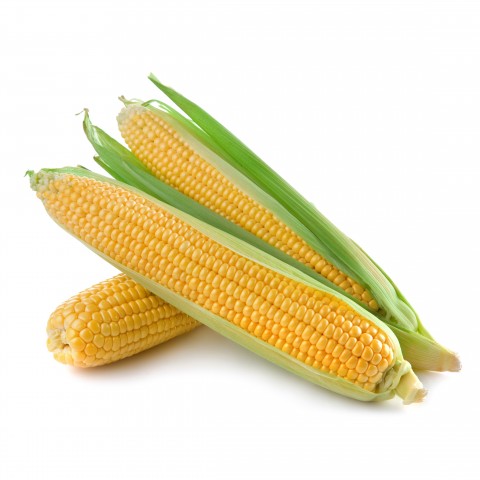
Ons eet mielies vir aandete vanaand. (“We’re having mielies for supper tonight.”)
Well, that’s about it! We hope you learned a lot and enjoyed this article. Can you now translate the text your imaginary South African friend sent you? Write your interpretation in the comments below!
When studying any language, it’s important to learn and recognize its most commonly used loanwords.
For instance, the word lapa in the message is a Sotho loanword commonly used in many of South Africa’s languages, including Afrikaans and South African English. It refers to a building construction described by one manufacturer as “a timber frame crafted from African hardwood poles supporting a genuine and fully thatched roof.” Lapas come in different shapes and sizes, and many Afrikaners’ homes have one close to the outside pool. It usually forms part of the entertainment area.
Because a lapa is mentioned, this indicates that the event will be held exclusively outside. This could be important info depending on the season, because it could hint that the weather will be cool and you should dress warmly.
Learn Much More Than English Words in Afrikaans with AfrikaansPod101!
When you sign up for a Lifetime Account, you get multiple benefits immediately at your fingertips! You’ll gain access to thousands of lessons and tools tailored to meet you at your level of Afrikaans proficiency so you can start right away.
We provide topic-related, culture-specific Afrikaans vocabulary lists (like this 100 Core Afrikaans Word List) as well as easily accessible lessons that introduce vocab in both writing and audio recordings. This ensures you learn the language as it’s pronounced by native Afrikaans speakers.
You’ll also gain access to the following, and so much more:
- A vibrant online community
- Free lessons on iTunes
- Free audio books
- Excellent free apps
- Free Word of the Day
- An Online Afrikaans Dictionary
The value is simply unbeatable!
If you’re serious about your learning, we have several learning options to suit your pocket and your language learning needs. Take a look at our three different learning plans, each one affordable while still providing great value for your money.
Happy Afrikaans learning!

A South African Culture Guide for Students of Afrikaans!

In dictionaries, “culture” is defined as the ideas, customs, and social behaviors of a particular society or group of people. These different cultures were all shaped, over many centuries, by people’s shared experiences as natives of a specific country.
What is South African culture like? This is not an easy question to answer! Not surprising, really—looking at our demographics, we see that the official South African population comprises approximately 60 million people with very diverse origins, languages, cultures, and religions. For instance, we have 11 official languages!
What is your country’s culture like? Share with us in the comments.
At AfrikaansPod101.com, we celebrate diversity because we understand that global citizenship is real! Developed countries, in particular, are melting pots of many nationalities and cultures. We tailor our lessons and our teaching approach accordingly.
With that in mind, let’s delve into the culture of South Africa together!
 Table of Contents
Table of Contents
- The Importance of Understanding Afrikaans Culture in South Africa
- Afrikaans Culture in South Africa – It’s Complicated
- South African Culture
- Traditional Holidays
- Immerse Yourself in South African Culture with AfrikaansPod101!
1. The Importance of Understanding Afrikaans Culture in South Africa
Having a grasp of the diversity of South African culture is key to having a good experience when you visit! An overview of the Afrikaans culture in South Africa will go a long way toward helping you understand our people as a whole. There are plenty of overlaps among our numerous cultures. It is the different South African cultures that make up our unique Rainbow Nation, a group identity that South Africans are still busy whittling into shape.
Knowing the quirks particular to a nation’s people is similar to getting to know another person well while building a relationship with them. Therefore, applying good relationship skills to this process will foster exactly that—good relationships. Here’s why this is important globally:
- As mentioned, we often find plenty of similarities among our cultures. These similarities emphasize the common bonds we all share. In turn, this makes for a sense of global community and is important for such things as trade, tourism, and survival (as the recent COVID-19 pandemic has demonstrated).
- Still, our cultures are also very different from one another. Differences keep us and the world interesting and unique. But even more importantly, learning how to deal with them in relationships builds character! For instance, when differences are very pronounced, do we exercise our “better angels” of patience, respect, acceptance, and tolerance, or do we lapse into an easier (but ultimately alienating) “us vs. them” narrative?
- Embracing your own culture gives you a sense of identity and a place in the world.
2. Afrikaans Culture in South Africa – It’s Complicated
What is Afrikaans culture? Well, the answer is not as simple as many sources (such as this Wikipedia page) would have us believe. Ask any Afrikaans-speaking South African how they would characterize an “Afrikaner,” and the replies will vary greatly depending on who you’re talking to.
The simple definition involves only one criterion. It posits the Afrikaans language as the touchstone of Afrikaner culture and nationality. By estimation, over five million people in the country speak the language as their mother tongue.

But not all South Africans agree with this simplistic view. Hundreds of thousands of South Africans who speak Afrikaans as a first language (especially from the Northern and Western Cape provinces) describe themselves only as “Coloreds,” or people of color. You will be hard-pressed to find any of them identifying as Afrikaners.
South Africa’s political history is the backdrop to this attitude. It is most often the politically conservative natives who prefer to define Afrikaners as a group of one ethnicity (Caucasian/White), and of Dutch origin. Many South Africans of all races and languages find this definition limiting and offensive.
This is because its criteria are antiquated. They date back to an era early in the twentieth century, when a group of Afrikaans-speaking, white settlers finally took rule of the country. This group referred to themselves as Boere (“Farmers”), collectively the proud Boerenasie (literally: “Farmer nation”), and they remained in rule for almost a century. Yet, those who now call themselves the Boerenasie comprise only a small group of conservative, openly racist, white, Afrikaans-speaking nationals.

Many disillusioned Afrikaners (mostly younger and white) vehemently oppose this myopic view of their nationality. The white Afrikaners’ political history is neither a pleasant nor a flattering one, and many white Afrikaans natives choose to distance themselves from it.
This drives to the heart of a complex, painful matter—national identity, with Afrikaans as its symbol. The topic is also one of great reach and depth, which is beyond the scope of this article.
So, for brevity’s sake, we’re going to focus on only one criterion for Afrikaans culture: the language!
3. South African Culture
Let’s start by qualifying that a large portion of South African society is Western-based and heavily influenced by European and American cultures, irrespective of our language or ethnicity. This means that most South Africans observe Western customs and habits, and our basic societal structures are similar to those of many Western countries.
The culture is also shaped by South Africa’s social structures and people’s living conditions—the largest part of which is unfortunately still abominable. But as humans do everywhere in the world, we strive to overcome our circumstances by finding beauty in the rubble and hope despite adversity.
3.1 Family

In South African culture, family life can vary from one household to another. But one thing is for sure: Afrikaners are big on family, no matter what size or shape it takes!
Hierarchy is important in the more conservative homes. The man is head of the house, even if he’s not the primary breadwinner. Also, children are expected to respect adults and their elders, an expectation that is often enforced with strict discipline. Corporal punishment is (fortunately) unlawful.
In the cities, this family model tends to be more fluid and the hierarchy more relaxed. Many women have also become breadwinners out of necessity, and women’s rights in the country are of the most progressive in the world.
- → Read our article Names and Terms for Families in Afrikaans to learn more about South African families and pick up some relevant vocabulary!
3.2 Religion

The South African Constitution, globally considered one of the most progressive and liberal constitutions, guarantees everyone the freedom to practice any religion.
Christianity is our country’s main religion, with the three top denominations being the Protestant Dutch Reformed Church, the Zion Christian Churches, and the Catholic Church.
Other religions include Islam, Hinduism, African Traditional Religion, and Judaism. In the last national census that included religion, approximately five million South Africans described themselves as “non-religious,” and over three million stated no religious affiliation.
Those Afrikaners who are religious tend to be Christian, and their faith often has great prominence in their lives.
3.3 Social & Work

Afrikaners have a distinct basic temperament that underpins all their behavior. Drawing on their inherited Dutch heritage, this collective character tends to be pragmatic with a down-to-earth, courageous approach to life. Sometimes this approach comes across as blunt, or even tactless—no pussyfooting for this lot!
Almost paradoxically, Afrikaners are also kindhearted, generous, accepting, and community-builders. Especially in rural areas, we take care of one another and often participate in charitable community work. The plight of children, in particular, gets a lot of attention in the non-profit sector.
Our British heritage ensures that, while socially polite and welcoming, we are private and take time to warm up to strangers. When you become part of our circle, however, you’ve made friends for life (and some very loyal ones, too!).
South African culture in the workplace is defined by Afrikaners’ willingness to pull their weight. That colleague always leaving the office last on a Friday afternoon? Probably an Afrikaner. Most are known to be reliable, loyal, and hard workers, and we value the same in employers and employees alike.
- → Like the British, we’re also big on polite social habits. On our blog, you can learn How to Say ‘Thank You’ in Afrikaans and How to Say ‘Hello’ in Afrikaans to sound more like a native in your interactions.
3.4 Art
Pablo Picasso famously said: “Art is the lie that enables us to realize the truth.”
Art is “untrue” in that it is simply an image of the world, and not the world itself. Yet, like a mirror, it does reflect our world accurately and truthfully back to us. Some South African artists give a voice to what urgently needs fixing in their communities or personal lives, while others showcase the ideal and our country’s beauty.
– Painters and Sculptors
One such artist is Afrikaans-speaking painter and sculptor Willie Bester from the Western Cape. He turns items sourced from rubbish dumps, which he sees as symbolic of his community, into messages of hope and love. Some of his pieces also take the form of bleakly beautiful reminders of the still-unredeemed.
From the previous century, Maria Magdalena (Maggie) Laubser was an Impressionist painter and printmaker, also hailing from the Western Cape province. Her artworks, initially criticized, eventually became widely accepted and internationally acknowledged for their often pastoral beauty.
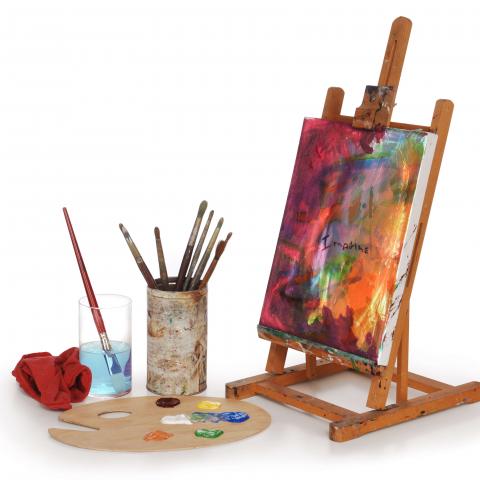
– Music
German philosopher Arthur Schopenhauer called music the “food of the soul.” He probably didn’t mean elevator music, but even this must touch the soul in an enigmatic way or it wouldn’t exist!
In Afrikaans culture, music is important. Over the decades, Afrikaans music has evolved to become a platform of political activism, but it tells so much more about us than our political battles.
Our collective musical oeuvre boasts multiple genres, some of which are rather innovative.
Some Afrikaans rappers are quite controversial. The most prominent is probably one of South Africa’s most famous exports: Die Antwoord. This male and female hip-hop duo were previously married and have a child together. Their musical style was described as revolutionary when they first broke into the hip-hop scene via YouTube in 2010. Their songs’ lyrics, often a mix of English and Afrikaans, are angry, explicit, and vulgar, and their videos are filled with disturbing and dystopian imagery. Reactionary art cannot get more in-your-face than this, so be warned—this is not for the faint-hearted!
Rapping is not renowned for its gentle tunes and lyrics, but that doesn’t mean the genre is always harsh. For instance, Die Happy Song (“The Happy Song”) from renowned Afrikaans Capetonian rapper, Hemelbesem (literally: “Heaven Broom”), really warms the heart. It addresses social issues of very poor communities, but with a hopeful angle.
Opposite on the shock-value spectrum is Spoegwolf (literally: “Spit Wolf”), an alternative rock band that made national music history in 2019 by becoming the first South African artists to reach #1 on the Apple Music Album charts. Don’t let the sometimes-rowdy tunes fool you—the lyrics, which are mostly pure Afrikaans, raise the spirit and nourish the heart while keeping it real.
- → Read more about South African performing artists in this blog post on Afrikaans YouTube Channels.
– Acting and Directing
South Africa has produced a good number of Hollywood screen-successes over the years. Some notable names include Charlize Theron, Trevor Noah, and Lesley-Ann Brandt, all of whom speak fluent Afrikaans!
Gorgeous ex-model Lesley-Ann Brandt boasts an impressive on-screen repertoire, including roles in big productions like the TV series Spartacus. This former Capetonian’s most famous performance so far was as Mazikeen, a feisty demon-with-a-heart in the hugely popular FOX TV series Lucifer.

An actress-producer who needs no introduction is Academy Award-winning Charlize Theron, originally hailing from Benoni, Gauteng province. This versatile artist is as comfortable in action-hero gear as she is in serious character roles. In 2003, she won the Best Actress Oscar for portraying the U.S. serial killer Eileen Wuornos in Monster, and she was nominated for another one for her role in North Country (2005). She also owns a production company and is currently one of Hollywood’s highest-paid actresses.
Primetime Emmy Award-winner Trevor Noah is another internationally renowned South African export. Originally from a very poor community near Johannesburg, Trevor beat the odds and rose to fame for his remarkable talents as a satirist and comedian. He was performing to full-house international audiences long before he took over as host on Comedy Central’s The Daily Show in 2015, a position he still held at the time of this writing.
Also worth mentioning are two former South African directors, Gavin Hood (Academy Award-winner) and Neill Blomkamp (Academy Award nominee). Gavin gained fame for directing the movie Tsotsi, based on the novel with the same title by S.A. playwright, Athol Fugard. In 2005, this film won an Oscar for Best Foreign Language Film and was nominated for a Golden Globe the following year.
In 2009, Neill directed the critically acclaimed sci-fi film District 9, an adaptation of his earlier short film Alive in Joburg. The film was nominated for the Academy Award Best Picture in 2010.
– Literature
Afrikaans is an expressive, deeply emotional language that can really stir the heart. If your aim is to learn a people’s true spirit, mastering their language and reading their literature is one of the best ways to do so.
South Africa boasts two Nobel Prize-winning English authors. But we also like to brag about our other internationally acclaimed authors who write (or wrote) mostly in Afrikaans.

Some notable wordsmiths include:
- Deon Meyer, an ex-journalist who is making it huge as a fiction writer with his politically based thrillers. His work has been translated into many other languages and provided the fodder for at least one movie and a TV series.
- Marita Van Der Vyver, also an ex-reporter, first wrote books for young adults before winning several awards for her first adult novel, Griet skryf ‘n sprokie (“Griet Writes a Fairy Tale”).
- Ronelda Kamfer is a young poet from Cape Town who has already won several prestigious national awards for her work.
- Adam Small was a 20th- and 21st-century political activist, writer, and poet whose work beautifully and poignantly captured the Colored people’s struggle for democracy. Also having won prestigious awards, Small’s work has been translated into 20 different languages, and even posthumously this writer has a cult following.
If you’re a serious student of Afrikaans, make reading Afrikaans literature your aim! And allow AfrikaansPod101 to help you get there, starting with the Afrikaans alphabet, of course.
3.5 Food

Eating is a universally wonderful activity that unites communities. South Africans love to gather outdoors (we have a fantastic climate for this) and around a fire. South African cuisine is exceptionally diverse—we’re not called the Rainbow Nation for nothing!
Of particular interest is the South African-made sweet liquor concoction called Amarula Don Pedro.
Don Pedro cocktails allegedly hail from Blouberg Strand (“Blue Mountain Beach”), Cape Town. They were first mixed in the 70s, by chef Danny Ferris of the Bellinzona restaurant. Legend has it that Danny was inspired by a Scottish whiskey maker during a trip to Scotland, who added a shot to ice cream as part of a whiskey-tasting demonstration. Most South Africans know and love Don Pedro cocktails, especially for dessert. The recipe involves a decadent mix of whiskey, double cream, and ice cream. In recent years, whiskey is sometimes replaced with locally brewed Amarula, a creamy dessert liquor.
South African culture and food go hand in hand, so let’s have a look at a few more signature dishes:
- Braais (“Barbeques” – Nope, it’s not quite the same!)
- Bobotie (A Malay-based curried mince dish.)
- Boerewors (Literally: “farmers sausage” – a traditional South African sausage we love to barbeque.)
- Biltong en droë wors (Droë wors = “dried sausage.” English approximate for biltong = “jerky beef.” However, we make biltong with beef, game, or ostrich meat. Fish biltong is called bokkoms.)
- Koeksisters or koesisters (Literally: “cake sisters” – a confectionary of deep-fried dough that’s sometimes braided, dipped in sweet syrup.)
- Malvapoeding (Literally: “marshmallow dessert” – somewhat similar to the beloved British sticky toffee pudding, but some say it’s better.)
- Melktert (Literally: “milk tart” – a creamy cinnamon pastry or confection, very similar to the British custard pie or the Portuguese pastéis de nata = “cream puffs”.)
- Pannekoek (Literally: “pancake” – similar to the French crêpe, but usually served with cinnamon-sugar and a dash of lemon juice.)
- Potjiekos (Literally: “little-pot food” – similar to stew, but different.)
- → You can learn so much more about South African foods on our page titled The Best South African Foods with Recipes to Try!
4. Traditional Holidays
What a country’s people commemorate says a lot about their culture. As is the case with most developing countries in the world, South African history and culture are darkly dappled, marked with both glorious victories and horrible battles lost. However, we still love to commemorate how strong we are and how far we’ve come.
- → Learn all about important days and South African cultural celebrations in this blog post titled Dates in Afrikaans: Afrikaans Months of the Year and More! You can also view our quick lesson on the Top 5 Important Dates During the South African Calendar Year.
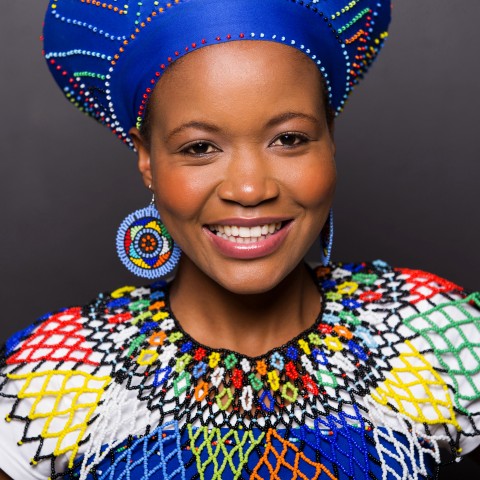
5. Immerse Yourself in South African Culture with AfrikaansPod101!
We take pride in presenting you with culturally relevant, up-to-date Afrikaans lessons with many free resources.
These include:
Choose the enrollment option that best suits your needs and join us immediately for a language learning experience like no other!
About the author: Christa Davel is an experienced bilingual (Afrikaans and English) freelance writer and editor, and is currently based in Cape Town, South Africa.

The Best South African Foods (With Recipes To Try!)

Food, food, food—who doesn’t love it?
Eating not only sustains us, but it’s also one of the most pleasant and gratifying sensory experiences we can engage in. No wonder enjoying meals together is a favorite occasion around the world.
South Africans are no different, of course. Our cuisine is diverse and we love getting together to eat, drink, and enjoy each other’s company. So, join us now for a wonderfully tasty investigation into South African foods!
 Table of Contents
Table of Contents
- Why Should You Know About South African Foods?
- South African Foods
- Typical But Lesser-Known Afrikaans Foods
- Afrikaans Food Vocabulary & Phrases
- Get Cooking in Afrikaans with AfrikaansPod101!
1. Why Should You Know About South African Foods?
Traveling, working, or planning to stay? After learning our language, few things would prepare you better for this adventure than getting to know our country’s people! This needn’t be a difficult task—studying our cuisine, for instance, can be helpful. It certainly depicts something about our collective identity and temperament.
- A. South African food is just as diverse as the country’s people. We house more than eleven nationalities in our Rainbow Country, which makes for a smorgasbord of variety. Never a dull moment!
- B. Our food also tends to be exceptionally rich in flavor, and sometimes very spicy. Some of the Malay- and Indian-influenced dishes, in particular, are not afraid to burn! Are we a “spicy” lot as a people? Well, looking at our history, we probably are. However, it’s also noticeable that, in our relatively short history, South Africans have never had it easy. At any given time, a part of the population was suffering some gruelling hardship or another, and today the country is still in the process of fixing that. Our history caused us to be tenacious, strong-willed, and highly opinionated. This means that we sometimes polarize. Our cuisine reflects this!
- C. That said, we’re not a bunch of fire-eaters at heart. Despite our occasional wildness, we ultimately prefer temperate to terrible. Looking at South Africa’s political history, for instance, it’s clear that we tend to avoid cataclysmic, all-destructive revolutions (sometimes just barely, but still!). Perhaps, due to the inhumane Boer wars with their concentration camps as well as British Field Marshal Kitchener’s ‘scorched-earth policy,’ we collectively abhor utter destruction. Our democracy and rectification of social injustices are still works in progress, but we’ve always been able to avoid becoming a truly demolished nation. So, while often strong and adventurous, our cuisine is not a difficult taste to acquire. You’re guaranteed to be won over by most of the flavors and textures—just as you will be by the country’s people!
- D. Need an easy conversation-starter with your Afrikaans friends? Well, South African food is it. Especially if you’ve tried some of our dishes and can praise their excellence, you will win over many a host’s heart with sincere compliments. Read on til the end for vocab and phrases that will impress your Afrikaans friends (or your AfrikaansPod101 tutor!).
As mentioned, South African cuisine is marked by its vast variety of influences. This is due to the many nationalities that have found their home in our country over the centuries. However, we won’t try to cover every culinary influence in this article; rather, we’ll focus on the main staples and a few lesser-known Afrikaans dishes.
2. South African Foods
Each population group’s cuisine has its distinct flavors and delicacies. Over time, many of these have cross-pollinated to become collective property.
The pre-colonial South African diet was mainly characterized by cooked grains, fermented milk, and stewed meat, supplemented by vegetables and fruit. These dietary trends have not disappeared and still form the base of countless South African recipes. Yet, one thing is sure: any South African foods list would be remiss if it omitted braaivleis (“barbeque meat”) and grain-based pap (“porridge”)!
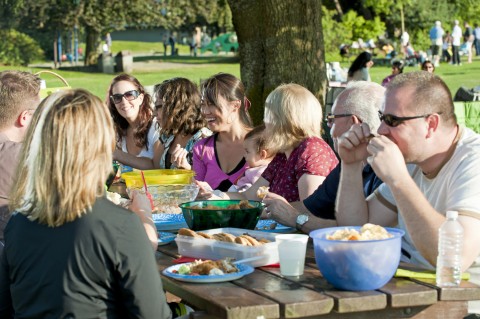
Suid Afrikaners is lief vir braai! (“South Africans love barbequing!”)
Braai-ing (“barbequing”) doesn’t need any introduction, as it’s a common cooking method worldwide and is discussed on nearly every website dealing with South African foods. Not to downplay its significance, though! For us, to braai together is as much a social custom as it is a way to prepare food. Read about the history, rituals, and paraphernalia of the Afrikaner barbeque on Wikipedia’s informative page.
Our braaivleis (“barbeque meat”) is almost always accompanied by pap and gravy or tomato relish, but that’s not the only way we enjoy it.
2.1 Pap (“Porridge” / “Grits”)
Very similar to American grits, the well-loved South African food pap still graces many tables in a great variety of dishes. Made of maize meal (or cornmeal), it’s usually white in color with a stiff and fluffy (or runny and soft) texture, and it’s a satisfying accompaniment to…well, almost any food.
South Africans love pap. We have it…
- …with sugar, milk, and a small lump of butter for breakfast.
- …as a fermented drink popularly called mageu.
- …in a delectable, enigmatic paptert (“porridge pie”), another braai side dish.
- …as an accompaniment to kaiings (leftover pork-meat or sheep’s tail fried until crispy—to die for!).
Yes, pap is quite versatile in its utility. And these are only a few of the recipes we’ve created over the centuries!

Thick, fermented drink being poured in a glass
Pap Recipes
Want to make this simple South African dish at home?
Watch slick food vlogger Funi teach the ins and outs of cooking this traditional, authentically South African food.
Also consider this easy recipe for a deliciously cheesy paptert, which is often a serious rival for the meat at braais! It’s not only moreish, but also very filling—so try to keep those portions small.
Or try out this recipe for an uncommon but tasty and attractive treat: the spicy pap bake. Replace the tinned chakalaka relish (another traditional South African food) by making your own. Siba Mtongana is the queen of chakalaka with this recipe, but it’s best to omit the tinned baked beans for the pap bake recipe. Warning: This is a pretty spicy dish! Obviously, you can adapt the spices to taste.
But hey, we’re not done with maize yet! Read on for another creative use of this vegetable under the Typical Afrikaans Dishes heading below. Next, though, is another traditional, wildly popular South African food that nearly every culture in the country has adopted and adapted: potjiekos (literally, “small-pot food”).
2.2 Potjiekos (“Small-Pot Food”)
South Africans love to gather around a fire for social meetings. And when we’re not braai-ing (“barbequing”), we make a potjie. To qualify as authentic potjiekos, this dish must comply with four rules:
- it must be prepared in a cast iron pot;
- it must be cooked on the glowing embers of an outside fire;
- it only gets stirred right before serving; and
- it usually takes a loooong time to cook (we’re talking hours here!).

‘n Potjie op die kole (“a little pot on the embers”)
As to what you want to cook in that pot—it’s entirely up to you! As said, different cultures have appropriated this cooking method; in some rural communities, this is how meals are prepared every day.
Over the years, some very outlandish potjies have seen the light of day, but the traditional ones are meat-and-veg dishes. And none can beat them!
Potjie Recipes
Potjiekos is a versatile dish, but it’s especially superb for cooking traditionally tough meats. The meat in these recipes will not only melt in your mouth, but also be juicier than you’ve ever enjoyed it.
For the basics on how to properly cook potjiekos, visit the informative Taste of Africa site. Don’t be fooled by the simplicity of the method—preparing food like this is an art! Still, we recommend you give it a try as this dish will likely steal your heart.
Wow your large family with this traditional lamb potjie in a tomato base. Slowly cooking the meat brings out its natural flavor and sweetness, which is deliciously conferred to the rest of the ingredients. Even the most stubborn, anti-vegetable carnivores are guaranteed to gobble up the veggies! The lamb can be replaced with mutton, but the meat’s cooking time will likely be longer.
Indian cuisine exerts a large influence on South African foods, as over a million Indians have made South Africa their home. That’s why we think you should consider this Indian-style recipe for a chicken curry potjie. Cooking this way allows for optimal development of all the flavors from the fragrant Indian spices. But this isn’t the only thing behind this dish’s seductive powers. Cooking in cast iron pots lends the ingredients a unique and recognizable flavor—you may never want to eat chicken any other way again!
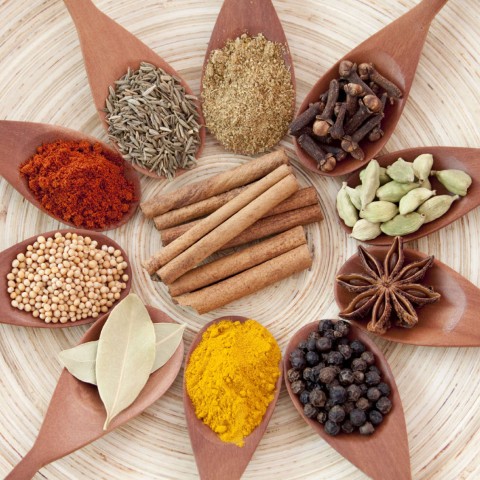
speserye om by ‘n potjie te voeg (“spices that can be added to a potjie“)
For an unusual pairing of seafood and chicken, consider this Surf and Turf potjie. The dish is prepared with rice already added and makes for a complete and devastatingly flavorsome meal.
Remember the outlandish versions we mentioned? Well, the following recipe is definitely so for traditional potjie-lovers, who are all carnivorous. Yet we added it to this recipe list because it’s guaranteed that vegetables have never tasted this good. Try local braai-master Jan Scannel’s vegetarian curry potjie to enchant your taste buds.

tradisionele potjiekos (“traditional potjiekos“)
Since this site is about Afrikaans, let’s now look at a few dishes the Afrikaners love in particular. We’re big on pap and potjiekos, of course, but the following dishes are unique to Afrikaner tables.
3. Typical But Lesser-Known Afrikaans Foods
Searching the Internet for Afrikaans foods draws up many lists that tend to comprise the same fare. Glance here, for instance, to get a pretty comprehensive list of South African foods. But there are plenty of traditional South African dishes that are rarely heard of outside the country. For example, a dish that’s not often mentioned but still commonly loved is melkkos (“milk food”).
3.1 Melkkos (“Milk Food”)
Melkkos is said to have developed from a thick Malaysian drink called bubur lambuk (“special porridge”), which is traditionally enjoyed to break the Islam fasting month of Ramadan. The Cape-Malays call the drink “boeber.” Traditionally made with sago, vermicelli, and sugar, it’s flavored with cardamom, cinnamon, and rose water. Similar drinks and puddings are popular around Asian and African countries, India, and other regions.
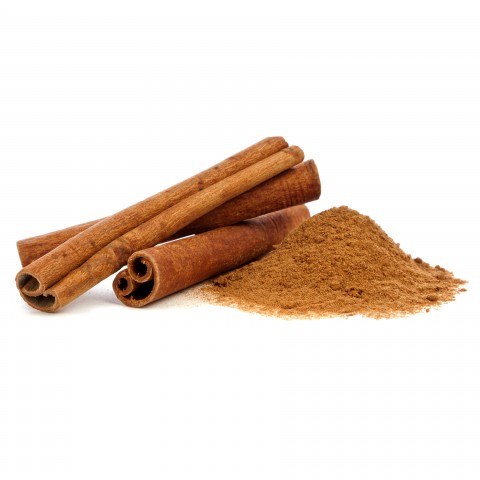
Geur melkkos met kaneelsuiker. (“Flavor melkkos with cinnamon sugar.”)
In Afrikaner homes, though, this dish is prepared a lot more simply. Melkkos is a hugely comforting and satisfyingly sweet, creamy porridge without any religious significance. Originally served as a dessert or pudding by the Afrikaner Boere (“Farmers”), it later became a meal in its own right. Kids adore it, and it’s relatively quick and easy to make.
Melkkos’ taste and creamy texture is very similar to the well-known (and beloved!) melktert (“milk tart”). Melktert, however, is not runny, is usually served cold, and tends to be much sweeter than melkkos. It’s also served as a dessert or tea-accompaniment rather than a meal.
This is an easy melkkos recipe you can make at home, just as it’s made and served in most Afrikaans homes. Adjust the amount of sugar and cinnamon to taste.
The next item on our South African food list is a very popular and commonly enjoyed Afrikaans tea with some superhero health properties.
3.2 Rooibostee (“Red Bush Tea”)
Fynbos or “fine bush” is a vegetation unique to South Africa, found mostly in the Western and Eastern Cape regions. Fynbos has a large degree of biodiversity, with rooibos (“red bush”) being a member of one of its plant families.
Rooibos leaves are used to make an herbal tea characterized by a beautiful red color (hence the name), and a distinct, sweet flavor.
We love this beverage not only for its tastiness, but also because it’s very healthy. In fact, few things soothe colic-y and allergic babies as well as black rooibostee (“red bush tea”)! It’s high in antioxidants and there’s even evidence that it’s good for heart health (though more clinical study is needed).
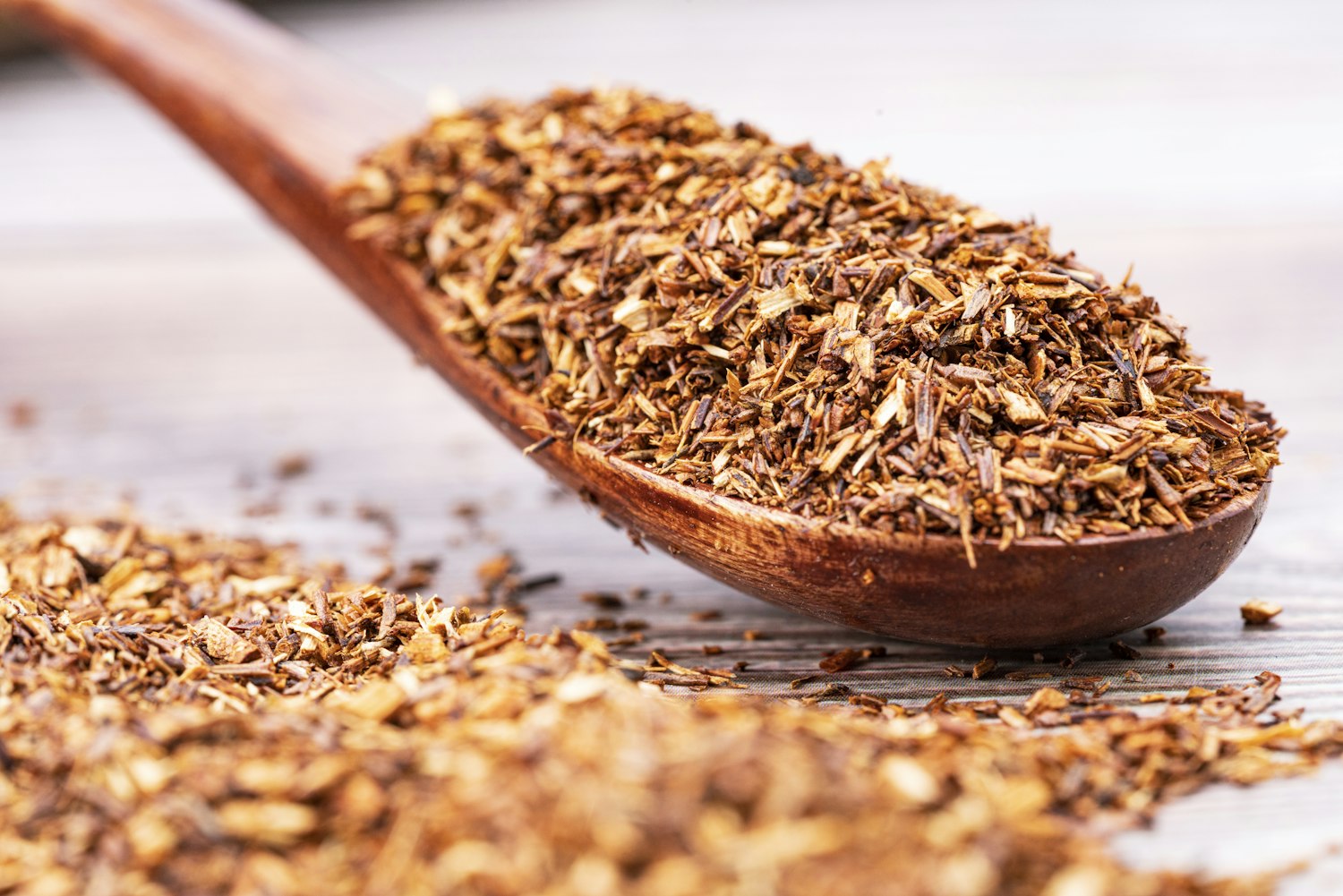
Rooibos tea leaves
Rooibostee is prepared like any other tea, by steeping it in just-boiled water for a few minutes. It’s taken with or without milk and sugar or honey and lemon.
However, it’s also a firm winner as an iced tea! Look, for instance, at this recipe with spices and fruit juice, ingredients which add to the tea’s health properties. Kids love its smooth, sweet taste and it’s certainly a perfect replacement for sugar-loaded fizzy drinks. Experiment by adding fresh herbs (mint is a favorite) or fruit (such as apples) to a pot of hot rooibostee. Let it cool down, refrigerate, and enjoy!
Rooibostee is also used to flavor food and it’s become a gourmet favorite of late. For very healthy snacks, for instance, try this delicious rooibos gummy recipe. Or change breakfast forever with this rich but super-healthy overnight rooibos and yoghurt chia porridge.
But that’s not all, folks! Your skin loves this tea, too. Rooibos extract forms the basis of a popular local skincare product that caters especially for sensitive skin. However, you can make your own rooibos toner in a jiffy! Brew some as usual and allow it to cool down, decant it into a clean container, and there you have it: soothing, brightening skin toner for daily use. Keep it in the fridge and prepare a fresh batch every week.

Hou jou vel gesond met rooibostee. (“Keep your skin healthy with rooibostee.”)
Rooibostee is particularly excellent for soothing acne and brightening a dull complexion. If the toner forms a reddish film when dry, just rinse your face with water before moisturizing.
Do you have raccoon-eyes due to stress or after a too-long night? No problem! Soak two cotton pads with the refrigerated tea, squeeze out any excess, and place them on your closed eyelids for a few minutes. You won’t believe the difference!
Another of the tea’s uncommon uses is making rooibos wine. Here, its wood replaces oakwood during the maturation process of the wine. It gives red wines a very unique, but distinctly rooibos, flavor.
3.3 Soet Mieliebrood / “Sweet Cornbread”
Nope, we haven’t forgotten the promised maize/corn recipe!
Us Afrikaners love our regular family dinners as well as watching major sports events together, and this almost always calls for a braai (“barbeque”). Rugby or football matches mysteriously seem much enhanced by braaivleis (“barbeque meat”) and this bread! A staple of authentic South African cuisine, it’s definitely for the sweet-toothed and makes an extremely popular pre-meal snack to soak up the (inevitable) alcohol in the stomach.
Soet mieliebrood (“sweet cornbread”) is close, but not 100% similar, to its American cousin with the same name.
Many other South African cultures have appropriated this easy bread recipe. This particular one is for baking in the oven, but seasoned braai-chefs love to bake it directly on the coals.
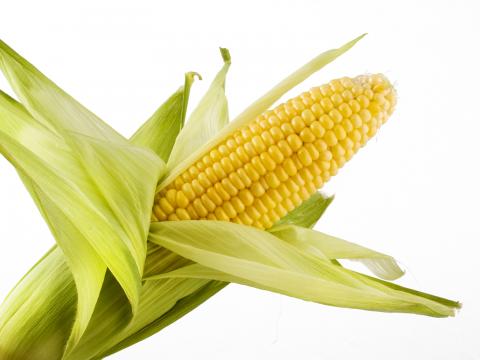
Corn on the cob
4. Afrikaans Food Vocabulary & Phrases
Now that you’re good and hungry for the must-try South African foods we covered, it’s time to take the next step. The following vocab and phrases will enhance your Afrikaans delivery in restaurants and at parties.
4.1 South African Food Vocabulary
- bobotie
- biltong (approximate: “beef jerky” – dried beef)
- beskuit (“rusks”)
- boerewors (literally: “Boere sausage”)
- frikkadelle (“meat balls”)
- hoenderpastei (“chicken pie”)
- koeksisters (literally: “cake sisters” – sweet, syrupy pastries)
- malvapoeding (literally: “marshmallow pudding” – cake-like dessert with sweet sauce)
- pampoenkoekies (“pumpkin fritters”)
- skilpadjies (literally: “small tortoises” – minced lamb’s liver wrapped in caul fat, barbequed)
4.2 South African Food Phrases

in die restaurant (“in the restaurant”)
4.2.1 In the restaurant
- Mag ek die spyskaart sien, asseblief? (“May I see the menu, please?”)
- Het julle ‘n wynlys? (“Do you have a wine list?”)
- Wat kan jy aanbeveel? / Wat stel jy voor? (“What do you recommend?”)
- Ek verkies vegetariese kos. (“I prefer vegetarian food.”)
- Brand hierdie baie erg? (“Does this burn a lot?” / “Is this very spicy?”)
- Watter dis is julle spesialiteit? (“Which dish is your specialty?”)
- Wat is julle spesiale dis vir vandag? (“What is your special dish of the day?”)
- Ek sal die wildsvleis probeer. (“I will try the game meat.”)
- Ek wil hierdie een hê, asseblief. (“I want this one, please.”)
- Kan ons apart betaal, asseblief? (“Could we pay separately, please?”)
4.2.2 At a party or private dinner
- Hierdie dis is fantasties! (“This dish is fantastic!”)
- Die slaaisous is heerlik. (“The salad dressing is delicious.”)
- Het jy koljander hier bygevoeg? (“Did you add coriander to this?”)
- Mag ek die sout kry, asseblief? (“May I have the salt, please?”)
- Ek sal die Merlot neem, dankie. (“I will have the Merlot, thank you.”)
- Nie vir my nie, dankie; ek bestuur. (“Not for me, thank you; I’m driving.”)
- Mag ek nog kry, asseblief? (“May I have more, please?”)
- Jy kan maar skep, ek is mal hieroor! (“You can dish up [a lot], I am crazy about this!”)
- Komplimente aan die kok! (“Compliments to the chef!”)
- Die maaltyd was werklik besonders, baie dankie. (“The meal was truly remarkable, thank you very much.”)
Supplement these with this list of Afrikaans compliments!
5. Get Cooking in Afrikaans with AfrikaansPod101!
We hope you’re salivating after reading this blog post. What do you think would be your favorite South African food? Or have you had the pleasure of tasting some traditional dishes already? Let us know in the comments below!
If you enjoyed this article, consider signing up immediately to learn about much more than just South African cuisine.
With over a decade of experience, we draw on our expert knowledge of online language learning techniques to offer you a unique learning space. Thousands of Afrikaans lessons are available at your fingertips, with free resources such as apps for Android, iPhone, iPad, and Kindle Fire.
With AfrikaansPod101, you can also create your own collection of vocab lists, learn the Afrikaans alphabet, and so much more!
We offer many enrollment options to suit your personal needs. Members can also enjoy features such as:
- Culturally relevant lessons
- A free online Afrikaans dictionary
- Access to Afrikaans Key Phrases
- Hundreds of lessons in different formats
Don’t hesitate—enroll now!
About the author: Christa Davel is a bilingual (Afrikaans and English) freelance writer and journalist, and is currently based in Cape Town, South Africa.

The Best Afrikaans Quotes About Life, Love, and More!

Do you know what one of the best things about the Afrikaans language is? Its array of colorful sayings and quotes!
In this article, we’ll introduce you to the best Afrikaans quotes on every aspect of life. You’ll recognize some of these Afrikaans quotes, as they have equivalents in English; others will be unfamiliar to you because they’re unique to Afrikaans. Let us know in the comments which of them have equivalents in your language!
At AfrikaansPod101, we aim to enhance your language learning experience at all times. Sayings and quotes are so particular to a language—knowing and using them will introduce you to Afrikaans and the Afrikaner culture in a unique, almost intimate way!
Are you ready to up your Afrikaans game? Let’s get started.
 Table of Contents
Table of Contents
- A) Top 10 Afrikaans Quotes for Inspiration and Life
- B) Top Afrikaans Wedding and Love Quotes
- C) Top Birthday Quotes in Afrikaans
- D) Top Afrikaans Friendship Quotes
- E) Top Funny Afrikaans Quotes
- Good Ways To Use Afrikaans Quotes
- Make Use of AfrikaansPod101’s Lessons and Tools to Learn Afrikaans!
1. Top 10 Afrikaans Quotes for Inspiration and Life
You can derive a lot from learning the typical quotes and sayings that are native to your target language. The following Afrikaans quotes about life include admonitions, words of wisdom, and inspiration in equal measure.
1. Dit is die klein jakkalsies wat die wingerde verniel.
Translation: “It is the small jackals that harm the vineyard.”
Meaning:
Literally, the quote refers to small jackals stealing grapes from vineyards (which they love to do). The little scoundrels’ diet is omnivorous, meaning that they eat small animals as well as berries and other fruits. Obviously, their scavenging can do a lot of harm to a farmer’s vineyard.
Underneath the literal meaning, this saying refers to the hidden harm caused by small irritations or problems in life if they’re left unattended. It infers that one should pay attention to those little niggles as they arise, instead of only focusing on the bigger problems.
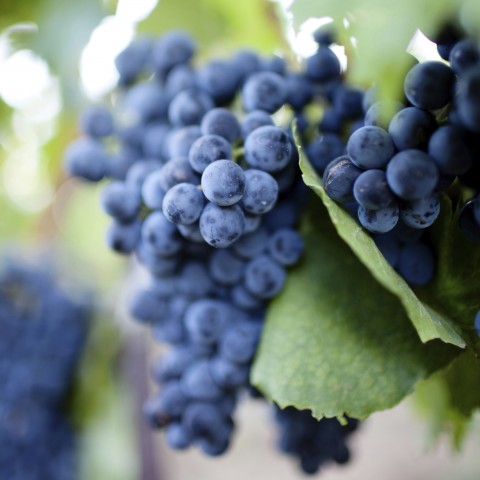
2. Wie heuning wil eet, moet steke verdra.
Translation: “Those who want to eat honey must endure the stings.”
Meaning:
Literally, this quote refers to someone taking honey from a beehive and getting stung. That much is obvious. But the saying also states a universal truth: If you want to attain something good or sweet in life, you’ll need to tolerate some painful things in the process. This saying can be used to reframe a setback or an unpleasant experience at work, in relationships, or concerning important projects.
3. As die hemel val, is ons almal dood.
Translation: “If the sky falls, we’re all dead.”
Meaning:
This quote uses a bit of humor to state the obvious about terrible calamity. It’s used as a slightly sarcastic retort in response to someone who’s always pointing out the negative in any situation.
4. Sukses is nie finaal nie, mislukking is nie fataal nie; dit is die moed om voort te gaan wat tel.
Translation: “Success isn’t final, failure isn’t fatal; it’s the courage to continue that counts.”
Meaning:
The meaning of this inspirational quote is obvious: Don’t give up! Continue with what you started (including your Afrikaans language lessons!), because your persistence will pay off. Just imagine! With a good knowledge of Afrikaans, you can travel to the country and have a much richer experience.
- → If you are interested in traveling soon, we recommend reading our blog post on the Most Common Travel Phrases in Afrikaans.

5. Om bymekaar te kom is ‘n begin; om saam te bly is vordering; om saam te werk is sukses.
Translation: “Coming together is a beginning; staying together is progress; working together is success.”
Meaning:
The meaning of this Afrikaans quote is pretty clear, as it describes the different stages and inherent value of teamwork.
6. Soos ’n handvol vlieë.
Translation: “Like a handful of flies.”
Meaning:
How useful is a handful of flies? Yes, precisely—unless you’re an entomologist, my guess is that a handful of these insects is pretty useless. You can use this saying to comment on something that’s useless to you, like this:
Hierdie mes is omtrent so bruikbaar soos ‘n handvol vlieë om sop mee te eet.
“This knife is about as useful as a handful of flies to eat soup with.”
7. ‘n Goeie gewete is ‘n sagte kussing.
Translation: “A good conscience is a soft pillow.”
Meaning:
This quote refers to the easy sleep of someone with a good conscience. It praises the value of not suppressing your conscience (which would probably keep you awake all night if you tried ignoring it)!

8. Wees die verandering wat jy wil sien in die wêreld.
Translation: “Be the change you want to see in the world.”
Meaning:
This quote is often erroneously attributed to Gandhi, the great world leader from India, but there’s no evidence that he actually said this. Rather, it appears to have come from a book written by a teacher named Arleen Lorrance, called The Love Project. The quote refers to people’s tendency to emulate others’ behavior. So, if you feel that the world needs more love and kindness, then be loving and kind! The world will soon follow.
9. Nou gaan die poppe dans.
Translation: Literally, “Now the dolls are going to dance.” / Equivalent, “Now the fat is in the fire.”
Meaning:
When someone says this, it means that trouble is on the way! This trouble can be as innocuous as the disciplinary action mischievous school pupils can expect from their headmaster, or as serious as the fallout of one country declaring war on another.
10. Kyk maar die kat eers goed uit die boom uit.
Translation: Literally, “First check out the cat from the tree.”
Meaning:
This saying has nothing to do with felines, but pertains to decision-making. It’s a cautionary idiom, and is used to warn someone that they would be better off not acting impulsively. For instance, if your friend enthuses about a business opportunity that sounds too good to be true, this is what you would tell them!

2. Top Afrikaans Wedding and Love Quotes
Our list could never be complete without mentioning quotes in Afrikaans about love, relationships, and weddings.
Tip: Afrikaners tend to have romantic souls! So showing what’s going on in your heart will usually be appreciated and reciprocated.
11. Jy is my oogappel. / Jy is die appel van my oog.
Translation: “You are my eye-apple.” / “You are the apple of my eye.”
Meaning:
This one is also well-known in English, and it means that you’re someone’s favorite person. One can use this saying at any stage of the relationship—read on for tips on how to use all of these phrases!

12. My hart pomp tjoklits vir jou.
Translation: “My heart is pumping chocolate for you.”
Meaning:
This is a humorous, casual way of indicating that you’re in love with someone. Instead of blood, your heart is pumping the candy of love: sweet chocolate. What a vivid image! This somewhat non-committal, but still loving, statement is suitable for use anywhere along the timeline of your relationship.
Tip: If you’ve been with the person for a while, then adding the adverbial time word steeds (“still”) after the verb pomp (“pump”) will be suitable. Like: My hart pomp steeds tjoklits vir jou. (“My heart still pumps chocolate for you.”)
13. Ek smaak jou stukkend.
Translation: Literally, “I taste you till you break.”
Meaning:
This rather odd-sounding saying is another way of letting someone know you like them excessively, almost to the point of breaking! Think of a child who is so overwhelmed by their adoration of a toy that they hug it so tightly it gets crushed.
No, we don’t literally break our loved ones in South Africa! This phrase simply expresses almost overwhelming feelings of adoration and admiration. Some say it means the same thing as “I love you,” but that is open to interpretation.

14. Ou liefde roes nie.
Translation: “Old love doesn’t rust.”
Meaning:
This quote means that if love is true, it endures eternally. Unlike most metals (a.k.a. superficial relationships), true love is long-lasting because it doesn’t degrade (i.e. rust) with age.
This is what you can say of that couple who met and fell in love when they were young, but who were kept apart by circumstances. Then, they meet again when they’re older and find that their special connection is intact. In such a case, you would say that Ou liefde roes nie (“Old love doesn’t rust”).
It’s also a nice anniversary affirmation for a couple that’s been together for years and years. Especially, or maybe only, if it’s clear that they still love one another!
15. Ek was nie jou eerste liefde nie, maar ek wil beslis jou laaste wees.
Translation: “I wasn’t your first love, but I definitely want to be your last.”
Meaning:
This quote is pretty straightforward, and it’s especially good for use among couples who are a bit older. But even if you and your partner are younger, you can use this phrase if you know they’ve been in love before. It’s a nice proposal quote, too.

16. Vriendskap in ‘n huwelik is die vonk wat ‘n ewige vlam aansteek.
Translation: “Friendship in marriage is the spark that lights an everlasting flame.”
Meaning:
This quote is attributed to the writer and creator of The Happy Wives Club, Fawn Weaver. It’s self-explanatory and underscores the importance of marrying someone you can be friends with, too.
17. Hou jou hart vol liefde. ‘n Lewe daarsonder is soos ‘n sonlose tuin wanneer die blomme dood is. Die bewussyn van liefde en om liefgehê te word bring warmte en rykdom aan die lewe wat niks anders kan bring nie.
Translation: “Keep love in your heart. A life without it is like a sunless garden when the flowers are dead. The consciousness of loving and being loved brings warmth and richness to life that nothing else can bring.”
Meaning:
This quote is attributed to author and playwright Oscar Wilde. He died lonely, so it’s poignant that he knew how important love was, but never got to fully experience it himself. This quote is great for wedding or engagement speeches, as well as a meaningful anniversary affirmation.

18. As ek my lewe kon oorhê, sou ek jou vroeër wou vind.
Translation: “If I could repeat my life, I would want to find you sooner.”
Meaning:
This is a bittersweet sentiment from someone who is regretful that they haven’t spent their whole life with the person they love. It implies that with their beloved, life is sweeter and better than ever before. It’s suitable as an intimate love message to the one you’re going to spend the rest of your life with, or even someone you’ve already been with for a long time.
19. Sonder jou liefde is die graaf te swaar vir my en val die geil reëns van die berge sonder doel.
Translation: Literally, “Without your love, the shovel is too heavy for me and the wanton rain in the mountains falls without purpose.”
Meaning:
This beautiful line is from a poem called Dank (“Thank”), written by one of South Africa’s finest poets from a different era, D.J. Opperman. It expresses how the poet valued his wife’s love—his life would have been meaningless without it. How quietly passionate and intimate!

20. Liefde is ‘n beter onderwyser as ‘n sin vir verantwoordelikheid.
Translation: “Love is a better teacher than a sense of duty.”
Meaning:
This is a quote from Einstein, taken from a letter he wrote. Biography writer Walter Isaacson used these letters to tell the story of the genius’ life in a book called Einstein: His Life and Universe.
With this quote, Einstein was probably referring to something other than romantic love, but the principle still applies. Love will always be the most inspiring quality of any relationship, and it ensures we don’t miss the lessons we need to learn in life. And remaining in a relationship only because of a sense of duty will surely teach you how barren a loveless existence is.
Sometimes love comes to an end and you need to break up with someone. Here are some Breakup Quotes to consider—but we hope you won’t need to use or receive them often!
3. Top Birthday Quotes in Afrikaans
Birthdays are special. Make sure to enchant your Afrikaans friends with one of the best Afrikaans quotes for the occasion on their special day.
21. Mag jou lewe elke jaar beter wees.
Translation: “May your life get better every year.”
Meaning:
This is a simple birthday wish that is universally useful. It expresses a positive and benevolent wish for someone to enjoy an exceedingly good life.

22. Ek hoop hierdie verjaarsdag is net so wonderlik soos jy!
Translation: “I hope this birthday is just as wonderful as you are!”
Meaning:
The meaning is pretty straightforward. This is a positive and uplifting birthday message for a friend, a family member, or any special person!
23. Navorsing wys dat mense met die meeste verjaarsdae leef die langste.
Translation: “Research shows that people with the most birthdays live the longest.”
Meaning:
Yeah well, duh…! This is a funny birthday quote in Afrikaans that could, for instance, be used in a speech before a birthday party.
24. Tel jou seëninge en nie jou plooie nie!
Translation: “Count your blessings and not your wrinkles!”
Meaning:
Another fun birthday quote you can use to tease the birthday person! However, it’s best not to use this with a woman if you don’t know her well yet.

25. Oudword is onvermydelik; grootword is nie!
Translation: “Growing old is inevitable; growing up is not!”
Meaning:
Another lighthearted quote that invites you to enjoy life with the innocence of a child, no matter what age you are.
26. ’n Warm hart steek ander aan die brand. Dankie vir jou wonderlike hart!
Translation: “A warm heart ignites others. Thank you for your wonderful heart!”
Meaning:
This is a flattering character testimonial that’s well-suited for a speech at a birthday party or as a message in a card. Use this only if the person is indeed inspiring and warm-hearted, of course.
4. Top Afrikaans Friendship Quotes
What would our world be without friends and friendship? Celebrate your Afrikaner friends with these Afrikaans quotes on friendship, or simply marvel in their wisdom.

27. Allemansvriend is niemandsvriend.
Translation: “Everyman’s friend is no man’s friend.”
Meaning:
This is an admonition to strive for more than likeability in your relationships. Not every person will like you or want to be your friend—that’s just life! Authenticity and being who you really are, no matter who you deal with, is of the greatest importance if you want good outcomes in life.
28. As die berg nie na Mohammed wil kom nie, moet Mohammed na die berg toe gaan.
Translation: “If the mountain doesn’t want to come to Mohammed, Mohammed should go to the mountain.”
Meaning:
This quote, which is also well-known in English, refers to humility and the necessity of sometimes giving in in relationships. Every friendship involves both giving and taking. In essence, this saying reminds us to not always take or be stubborn.

29. Hulle breek nie brandhout van dieselfde tak nie.
Translation: “They don’t make firewood of the same branch.”
Meaning:
This Afrikaans quote refers to people who cannot stand each other, so it could be used to describe a friendship or relationship gone wrong.
30. Boontjie kry sy loontjie.
Translation: Literally, “Every bean gets his rightful dues.”
Meaning:
This somewhat gleeful quote simply means that what comes to you is probably what you deserve. It’s not always used in a positive sense, though, especially not in friendships. If someone has done you harm, for instance, and then harm comes to them in some way or another, you might use this saying to comment on the situation.
31. ‘n Ware vriend stap in wanneer ander uitstap.
Translation: “A true friend walks in when others walk out.”
Meaning:
Another well-known saying in English. Sometimes, friends walk away from you when things get hard. But the true friends remain by your side, which is what the quote refers to. The saying is popularly attributed to columnist Walter Winchell, yet a version of it was recorded as early as 1916 in an Atlanta magazine called The Presbyterian of the South.

32. ‘n Enkele roos kan my tuin wees; ‘n enkele vriend, my wêreld.
Translation: “A single rose can be my garden; a single friend my world.”
Meaning:
This quote expresses the value of true friendship. It’s accredited to American author and motivational speaker Felice Leonardo “Leo” Buscaglia, also known as “Dr. Love.” It means that one doesn’t need a lot of friends to be happy in life. A single good friend can mean the world and make all the difference.
33. Vriendskap is die enigste sement wat die wêreld by mekaar sal hou.
Translation: “Friendship is the only cement that will ever hold the world together.”
Meaning:
Attributed to U.S. President Woodrow Wilson, this quote expresses the superior value of true friendship. It suggests that the world would fall apart if it weren’t for friendships.

34. Vriende is daardie rare mense wat vra hoe dit met jou gaan en dan wag om jou antwoord te hoor.
Translation: “Friends are those rare people who ask how (we) are and then wait to hear the answer.”
Meaning:
This slightly adapted quote was said to be first uttered by Ed Cunningham, U.S. TV sports announcer and personality. It suggests that people who care really listen to one another.
- → Also check out our list of the Top 10 Afrikaans Quotes About Friendship for more inspiration.
5. Top Funny Afrikaans Quotes
Sometimes you need a funny one-liner to open a meeting or lighten the mood in a conversation! We’ve translated a few great quotes in the Afrikaans language that you can use to this effect.
35. Dis beter om stil te bly en dwaas voor te kom as om te praat en so alle twyfel te verwyder.
Translation: “It’s better to remain silent and be thought a fool than to speak out and remove all doubt.”
Meaning:
This quote means that it’s better to keep quiet and only appear stupid than to say something that is actually stupid! It’s popularly attributed to U.S. President Abraham Lincoln, but it more likely belongs to Maurice Switzer, who mentioned it in his book Mrs. Goose, Her Book (1906). Yet, a similar bit of wisdom was expressed much earlier in the Christian Bible, in Proverbs 17:28: “Even a fool, when he holdeth his peace, is counted wise: and he that shutteth his lips is esteemed a man of understanding.”

36. As ek ‘n tweegesig was, sou ek hierdie een gedra het?
Translation: “If I were two-faced, would I be wearing this one?”
Meaning:
A variation of this funny quote was apparently uttered by President Abraham Lincoln in a debate with Stephen Douglas, who accused him of being two-faced. Lincoln’s original retort was: “If I had two faces, would I be wearing this one?”
To be “two-faced” means that you’re being inconsistent in what you say and how you deal with people. This quote often refers to someone who adapts the truth to suit the company they’re in, a trait which makes you unreliable, or even dishonest.
The particular saying is self-deprecating (joking about your own looks!) and a marvelous retort to an unfair accusation of duplicity.
37. Wat het oor jou lewer geloop?
Translation: “What walked over your liver?”
Meaning:
This is an original Afrikaans saying and a funny way of asking someone why they’re angry. Just as the heart is traditionally considered the “seat” of love, the liver is the “seat” of anger. If asked in a non-confrontational manner, it could ease the atmosphere and allow the angry person to blow off steam.
38. As een deur toegaan en ‘n ander maak oop spook dit waarskynlik in jou huis.
Translation: “If one door closes and another opens, your house is probably haunted.”
Meaning:
This line makes fun of the cliché that when one opportunity is lost, another one appears. While true, clichés can sound insincere when you’re placating or consoling someone.
If a friend feels really stuck, trying to soothe them with words that don’t correspond to their current life experiences could alienate them, even if you mean well! Rather, spoil them with something you know they like (such as chocolate or a glass of wine), and just hang around as a friend. Using this funny saying could also help lighten the mood!

39. Wees lief vir jou vyande. Dit maak hulle so kwaad.
Translation: “Love your enemies. It makes them so (damned) mad.”
Meaning:
This quote is attributed to a P.D. East from the book Of Wit N Humor by Vincent Thnay.
It’s a reference to the verses in all holy scriptures that teach us to forgive and love our enemies, so as to relieve ourselves of the burden of pain and/or guilt. The quote is obviously a humorous take on this truth!
40. Natuurlik praat ek met myself. Soms het ek kundige advies nodig.
Translation: “Of course I talk to myself. Sometimes I need expert advice.”
Meaning:
This is a well-known quip that’s been doing the rounds. It’s unclear where the saying originated from, but it’s a good retort if someone complains about you mumbling to yourself.
41. Die pen is magtiger as die swaard en heelwat makliker om mee te skryf.
Translation: “The pen is mightier than the sword and considerably easier to write with.”
Meaning:
Comedian Marty Feldman was the first to utter this silliness, which could underscore the need to negotiate first and fight later! However, the saying originally referred to the immense power of the word, which should not be underestimated.

42. Te veel van ‘n goeie ding is fantasties!
Translation: “Too much of a good thing is fantastic!”
Meaning:
The literal wisdom of this quote is debatable, but that probably depends on the context! It’s a celebratory remark that could be a reminder to enjoy life.
43. Hy is so skelm, hy bid onder ‘ n skuilnaam.
Translation: “He’s such a crook, he prays under a pseudonym.”
Meaning:
This funny quote is pretty self-explanatory! However, don’t use it to describe someone whose favor you want to win or keep, unless they know you’re joking.
44. Ondervinding is iets wat jy eers kry nadat jy dit nodig het.
Translation: “Experience is something you only get after you need it.”
Meaning:
A truthful observation about life and how experience is gained!
6. Good Ways To Use Afrikaans Quotes
This is not difficult to do! Show off your newly learned Afrikaans in the following ways:
1. Puzzle and/or impress your friends with these quotes on Facebook or Twitter.
2. Create a graphic with a stunning photo and an inspirational quote for your desktop background. But post it on Insta first!
3. Use a suitable quote in a birthday or wedding card for your Afrikaans friend and make their day! Your gesture will show that you care enough to wish them well in their own language, which will be appreciated.
4. Combine creativity and Afrikaans—paint or draw a poster for your room or classroom with a suitable quote in Afrikaans.
5. Make your own learning tool! Create a video or other visual media (with one of the many apps available online), using all of these quotes plus your favorite images or footage! Playing this over and over again will help you learn and remember full Afrikaans sentences. There are countless possibilities.
6. Memorize the quotes and their meanings, and pepper your Afrikaans conversations with them! Using idioms will make you sound more like a native Afrikaans speaker.
7. Make Use of AfrikaansPod101‘s Lessons and Tools to Learn Afrikaans!
With more than a decade of experience behind us, we’ve taught thousands of satisfied users to speak foreign languages. How do we do this? First, we inject fun and ease into learning!
With us, students are assisted as they master vocabulary, pronunciation, and conversation through state-of-the-art and fun online learning methods.
A library replete with learning resources allows self-paced learning, in your own space at home! Our resources include thousands of video and audio recordings, culturally relevant lessons, and learning apps for your mobile devices. Each month, we add benefits with FREE bonuses and gifts to improve your experience. Our online Afrikaans Dictionary is indispensable and free!
Speed up your learning by enrolling in Premium PLUS, which will give you your own teacher! Our lively, friendly native-Afrikaans hosts will do an assessment test to determine your level, and then tailor lessons to suit your needs.
Happy learning!













